
Women in Purdue's History
Do you know a woman who belongs on this page or want to suggest a correction? Contact us.
Biographies
Kassandra Delaine Agee
1959 -
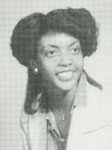

Kassandra Agee Chandler was born in Gary, Indiana and graduated from Purdue in 1981 with a Bachelor of Science in Accounting. As a sophomore in 1978, Agee was named Purdue's Homecoming Queen out of an initial group of twenty-four competitors. She was the first African American to hold the position. Agee was also an active student, as she was a member of Alpha Lambda Delta freshman honor society, Purdue Pals, and the Black Voices of Inspiration Choir. Agee Chandler was also a former president and founding member of Purdue's Society of Minority Managers.In addition, Agee also served as a social counselor for the Business Opportunity Program in the School of Management and was a member of the Mortar Board senior honor society. After graduating from the Krannert School of Management, she held positions at the Texas A&M Transportation Institute, Exxon, Dow Chemical and Procter & Gamble. Agee Chandler is founder and principal consultant of Systematic Design Consultants, an information technology consulting firm, in College Station, Texas.
Anna Akeley
May 4, 1904 - June 26, 2004
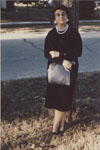

Anna Akeley was born in Vienna, Austria in 1904. Akeley chose to focus on comparative religion at college, but also studied physics (specifically x-rays) at the request of her parents. Forced to leave college early due to personal reasons, Akeley began working as an editor for a Viennese printing firm. As the Nazis gained increasingly more political power, Akeley’s Jewish employer was forced to flee Austria. In his absence, she was in charge of liquidating the company’s assets. During this time, Edward Akeley, a Purdue physics graduate student, came to Austria and met Anna. Upon his second visit to Austria, they decided to get married and she came back to the United States with him, arriving in Lafayette in 1942. Shortly after coming to Purdue, Anna learned that she would be teaching physics due to the wartime personnel shortage. Although she was very excited, Anna had been away from the formal study of physics for nearly twenty years and had never been taught physics in English. Despite these initial setbacks, Anna went on to teach numerous courses throughout her 29 years in the Purdue Physics Department. She was elected by her students to receive a Best Instructor Award in 1966, “In Recognition of Outstanding Works Being Done in the Classroom.” Always referring to herself as a “simple physics teacher,” Anna retired with tenure in 1971. She was the only member of the Physics Department without a physics degree ever to do so. Akeley died in 2004.
Marguerite Hall Albjerg
September 9, 1895 - November 17, 1971
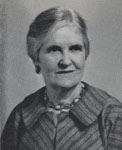

(Esther) Marguerite Hall Albjerg was born to Coumbus H and Theodora Parks Hall in 1895 in Franklin, Indiana. She received a Bachelor of Arts from Franklin College (1917), and a Master of Arts (1922) and PhD (1925) from the University of Wisconsin. She was the first woman to hold the University of Wisconsin's prestigious President Adams Fellowship.
After receiving her PhD, she served as the head of History at the Alabama State College for Women until 1927 when she married Victor Lincoln Albjerg. She taught at Purdue University from 1927-1951 in the History Department, where her husband was a member of the faculty. Although she was unable to serve as a faculty member in the History Department because of her husband's position, she was later offered a counselor position by the Dean of Women. She authored four books and nearly 30 articles.
Dr. Albjerg's daughter Patricia (Albjerg) Graham (1935) later became a professor as well. Albjerg passed away in Lafayette, Indiana in 1971.
After receiving her PhD, she served as the head of History at the Alabama State College for Women until 1927 when she married Victor Lincoln Albjerg. She taught at Purdue University from 1927-1951 in the History Department, where her husband was a member of the faculty. Although she was unable to serve as a faculty member in the History Department because of her husband's position, she was later offered a counselor position by the Dean of Women. She authored four books and nearly 30 articles.
Dr. Albjerg's daughter Patricia (Albjerg) Graham (1935) later became a professor as well. Albjerg passed away in Lafayette, Indiana in 1971.
Ruth Erma Austin
June 22, 1903 - February 20, 1965


Ruth Erma Austin was born in 1903 in Wilton Junction, Iowa to Harry and Nettie Austin. She received degrees from both Iowa State College and the University of Iowa. She taught in numerous Iowan public schools from 1925 to 1932. In addition, she served on the faculty of the Nebraska State Normal College from 1933 to 1935, before coming to Purdue in 1936. Austin joined the home economics faculty at Purdue as an instructor in 1938. She was later named an assistant professor of applied design in 1948. She retired from her position as an associate professor of applied design in 1962 due to illness. She passed away in Davenport, Iowa on February 20, 1965.
Rebecca Katharine Beeson
1867 - ?


Katharine Beeson was born in 1867 and became a prominent Hoosier educator and author. Beeson taught in Indiana schools in Indianapolis and Lafayette. In 1904, she was a teacher in Indianapolis city schools. Eventually, Beeson came to live in Lafayette, where she taught at Centennial School. She also became the Supervising Principal of Lafayette Public Schools. In 1916, Beeson earned a Bachelor of Science from Purdue University. Beeson was a member of the National Education Association, the Indiana State Teachers' Association, and served as the secretary for the Lafayette Art Association. She wrote three books, titled Child's Calendar Beautiful (1905), Literary Indiana (1925), and The Health Game (1925), which was a guide for children and parents who promoted cleanliness and personal hygiene.
Clara E. Bell
February 9, 1934 - March 3, 1996


Clara Bell Sessions was a nursing professor and director of continuing education in nursing at Purdue University. While at Purdue, she helped establish the Minority Student Nurses' Association (MSNA) and Minority Faculty Fellows program.
Sessions was born Clara E. Stewart on Februay 9, 1934 in Terre Haute, Indiana to James Ruffin Stewart and Mattie Ewing Edwards. She married twice, first to Gregory Bell (1953) and later to Charles Sessions (1990). She attended St. Anthony Hospital School of Nursing in Terre Haute and was their first African American student. Bell attended Indiana State University where she earned her bachelor of science in nursing, followed by Indiana University where she earned her master's and doctoral degrees in their School of Education.
In 1981, Purdue University hired Bell as a professor of nursing and she later became the director of continuing education in nursing. Bell was dedicated to improving the experience for minority students and faculty at Purdue. She was integral in the creation of the Minority Student Nurses' Association (MSNA), now Diversity in Nursing Association, and the Minority Faculty Fellows program,the precursor of the Office of Diversity and Multicultural Affairs.
Bell Sessions was also active in national organizations. In 1992 and 1993, she co-chaired the National Congress of Black Faculty Council on Research and Education, served as a cabinet member on the Human Rights Committtee of the American Nurses Association, and was a charter member of the Association of Black Nursing Faculty in Higher Education. She earned numerous service awards for her work, including service awards from the Indiana Diabetes Association, Indiana State Nurses Association's board of directors, Delta Omicron Chapter of the Nursing Honor Society of Sigma Theta Tau, and Indiana Department of Aging and Community Services.
Clara Bell Sessions died on March 3, 1996 in Terre Haute, Indiana. After her death, the Black Caucus of Faculty and Staff created the annual Clara E. Bell Academic Achievement Award for the senior in nursing or health sciences with the highest grade point average. In 2013, she was posthumously awarded the Title IX Distinguished Service Award for her contributions to gender equity in education.
Sessions was born Clara E. Stewart on Februay 9, 1934 in Terre Haute, Indiana to James Ruffin Stewart and Mattie Ewing Edwards. She married twice, first to Gregory Bell (1953) and later to Charles Sessions (1990). She attended St. Anthony Hospital School of Nursing in Terre Haute and was their first African American student. Bell attended Indiana State University where she earned her bachelor of science in nursing, followed by Indiana University where she earned her master's and doctoral degrees in their School of Education.
In 1981, Purdue University hired Bell as a professor of nursing and she later became the director of continuing education in nursing. Bell was dedicated to improving the experience for minority students and faculty at Purdue. She was integral in the creation of the Minority Student Nurses' Association (MSNA), now Diversity in Nursing Association, and the Minority Faculty Fellows program,the precursor of the Office of Diversity and Multicultural Affairs.
Bell Sessions was also active in national organizations. In 1992 and 1993, she co-chaired the National Congress of Black Faculty Council on Research and Education, served as a cabinet member on the Human Rights Committtee of the American Nurses Association, and was a charter member of the Association of Black Nursing Faculty in Higher Education. She earned numerous service awards for her work, including service awards from the Indiana Diabetes Association, Indiana State Nurses Association's board of directors, Delta Omicron Chapter of the Nursing Honor Society of Sigma Theta Tau, and Indiana Department of Aging and Community Services.
Clara Bell Sessions died on March 3, 1996 in Terre Haute, Indiana. After her death, the Black Caucus of Faculty and Staff created the annual Clara E. Bell Academic Achievement Award for the senior in nursing or health sciences with the highest grade point average. In 2013, she was posthumously awarded the Title IX Distinguished Service Award for her contributions to gender equity in education.
Alice Biester
January 10, 1890 - April 15, 1969
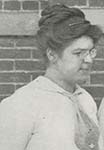

Alice Biester received her education in nutrition at the University of Illinois, earning an BA (1912) and an AM (1913). Her research interests focused on the impact of proper nutrition on children, and the ways in which nutrients react to cooking a/or processing of foods. She joined the Home Economics faculty at Purdue in 1913 and served briefly as the acting head of the department before her resignation in 1915. From there, she joined the faculty at the University of Minnesota as a Professor in Nutrition. Census records indicate that while in Minnesota, Biester lived with Ethel Phillips for many years. Phillips was listed as a partner, spouse, a/or boarder depending on the census year. Biester retired from Minnesota in 1955. Biester also served as a guest lecturer at the University of California and a dietician for the Cook County Hospital in Illinois. She was a member of the American Home Economics Association.
Gertrude Bilhuber
June 5, 1895 - November 1975
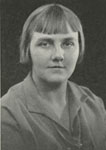

Gertrude Bilhuber was born June 5, 1895 in Maywood, New Jersey. She began her education at Columbia University, ultimately receiving both a B.S. and an M.A. there. While completing her education, Bilhuber was admitted to the Association of American Physical Education. She continued her education in Public Health at the University of Michigan, and earned an M.S. (1925) and a PhD (1926). After completing her degrees, she joined the Physical Education faculty at Purdue as an Associate Professor. She was promoted quickly to Head of the Department of Physical Education for Women, but resigned in 1929. During her tenure at Purdue, Bilhuber was also active on the Women's Residence Halls Committee which worked to secure housing for women students. After leaving Purdue, Bilhuber remained devoted to health education and continued her career doing research and health education work for the American Society for the Control of Cancer in New York. She passed away in November 1975.
Katherine E. Golden Bitting
April 29, 1869 - October 15, 1937
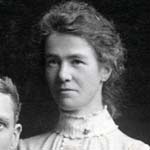

Katherine Golden was born in 1869 in Ontario, Canada, but spent much of her formative years in Massachusetts. In Masachusetts, she graduated from the Salem Normal School (now Salem State University) in 1886.
Bitting enrolled at Purdue University shortly after, and earned a Bachelor of Science in biology (1890), a Master's (1892), and a PhD (1895). While finishing her master's, she worked as an assistant botanist with Purdue's Agricultural Experiment Station, and was hired as an instructor in 1893. Bitting was eventually promoted to Assistant Professor of Biology in 1901, a position she kept until 1904.
Katherine married Arvill Wayne Bitting, a professor of veterinary science with an interest in cookery and foods, and they went on to take jobs at the U.S. Department of Agriculture. Bitting remained with the USDA from 1907-1913. Katherine, a microanalyst in the chemistry division, gained expertise on food preservation and related topics, authoring nearly fifty pamphlets in that subject area. Bitting also worked for the National Canners Association (1913-1918), and as a bacterioligist for the Glass Container Association (1919-1923). Her 4,346 volume collection of gastronomic literature from the fifteenth through twentieth centuries now resides at the Library of Congress' Rare Books and Special Collections Division.
The Bittings frequently worked collaboratively and were well known for their experiments with ketchup. Their experiments sought to create a recipe for tomato ketchup that was preservative free and yet resistant to spoilage. Through many trials they discovered that the addition of sugar and vinegar would make the product more resistant to spoilage; this discovery would later permeate to other food preservation recipes and recommendations. Bitting's research contributed greatly to the knowledge and practice of safe food preservation. Katherine Golden Bitting died in 1937.
Bitting enrolled at Purdue University shortly after, and earned a Bachelor of Science in biology (1890), a Master's (1892), and a PhD (1895). While finishing her master's, she worked as an assistant botanist with Purdue's Agricultural Experiment Station, and was hired as an instructor in 1893. Bitting was eventually promoted to Assistant Professor of Biology in 1901, a position she kept until 1904.
Katherine married Arvill Wayne Bitting, a professor of veterinary science with an interest in cookery and foods, and they went on to take jobs at the U.S. Department of Agriculture. Bitting remained with the USDA from 1907-1913. Katherine, a microanalyst in the chemistry division, gained expertise on food preservation and related topics, authoring nearly fifty pamphlets in that subject area. Bitting also worked for the National Canners Association (1913-1918), and as a bacterioligist for the Glass Container Association (1919-1923). Her 4,346 volume collection of gastronomic literature from the fifteenth through twentieth centuries now resides at the Library of Congress' Rare Books and Special Collections Division.
The Bittings frequently worked collaboratively and were well known for their experiments with ketchup. Their experiments sought to create a recipe for tomato ketchup that was preservative free and yet resistant to spoilage. Through many trials they discovered that the addition of sugar and vinegar would make the product more resistant to spoilage; this discovery would later permeate to other food preservation recipes and recommendations. Bitting's research contributed greatly to the knowledge and practice of safe food preservation. Katherine Golden Bitting died in 1937.
Evelyn Blackwood


Evelyn Blackwood is a professor emerita in the Anthropology Department at Purdue University. Blackwood earned a Bachelors in Psychology from King's College in New York before shifting her academic focus to Anthropology. She earned an MA and PhD in Anthropology from Stanford University.
Blackwood joined the faculty of the Anthropology Department at Purdue University in 1994 as an Assistant Professor. She was promoted to Associate Professor in 2000, Professor in 2010, and Professor Emerita in 2017. Blackwood's research focuses on gender and sexuality as a lens for examining kinship, identity, globalization, transnationalism, and social movements. Much of her research has focused on a matrilineal society in West Sumatra, Indonesia, as well as the complexities of social construction of gender in Southeast Asia and the United States.
Over the course of her career, Dr. Blackwood has been committed to the advancement of gender and queer studies in Anthropology. She served on the Board of Directors of the Association for Feminist Anthropology, and in various leadership capacities for the Society of Lesbian and Gay Anthropologists (now the Associationo of Queer Anthropologists). Additionally, Blackwood is a founding board member of the International Association for the Study of Sexuality, Culture and Society. At Purdue, Blackwood has served on the University Senate and the Senate's Faculty Affairs Committee. She also served as a Diversity Catalyst in support of the ADVANCE Project and on the CLA Sexual Harassment Advisors Network.
Within the field of Anthropology, Blackwood's scholarship is well recognized for its seminal contributions to anthropological studies of gender and sexuality. Three of her books have been awarded the Ruth Benedict Prize (in 2000, 2007, and 2011). She was also awarded Purdue's Title IX Distinguished Service Award in 2012 for the 40th anniversary of the award. Blackwood has published 5 books on gender and sexuality, a cultural anthropology textbook, and dozens of journal articles and book chapters.
Blackwood joined the faculty of the Anthropology Department at Purdue University in 1994 as an Assistant Professor. She was promoted to Associate Professor in 2000, Professor in 2010, and Professor Emerita in 2017. Blackwood's research focuses on gender and sexuality as a lens for examining kinship, identity, globalization, transnationalism, and social movements. Much of her research has focused on a matrilineal society in West Sumatra, Indonesia, as well as the complexities of social construction of gender in Southeast Asia and the United States.
Over the course of her career, Dr. Blackwood has been committed to the advancement of gender and queer studies in Anthropology. She served on the Board of Directors of the Association for Feminist Anthropology, and in various leadership capacities for the Society of Lesbian and Gay Anthropologists (now the Associationo of Queer Anthropologists). Additionally, Blackwood is a founding board member of the International Association for the Study of Sexuality, Culture and Society. At Purdue, Blackwood has served on the University Senate and the Senate's Faculty Affairs Committee. She also served as a Diversity Catalyst in support of the ADVANCE Project and on the CLA Sexual Harassment Advisors Network.
Within the field of Anthropology, Blackwood's scholarship is well recognized for its seminal contributions to anthropological studies of gender and sexuality. Three of her books have been awarded the Ruth Benedict Prize (in 2000, 2007, and 2011). She was also awarded Purdue's Title IX Distinguished Service Award in 2012 for the 40th anniversary of the award. Blackwood has published 5 books on gender and sexuality, a cultural anthropology textbook, and dozens of journal articles and book chapters.
Marion Williamson Blalock
December 18, 1947 -
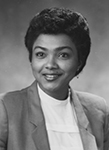

Marion Blalock, born in East Chicago, Illinois (1947), graduated from Washington High School. She earned a BS in Sociology and Psychology and later an MS in Counseling and Personnel Services from Purdue. She worked in Purdue’s Dean of Men’s Office and later was the Assistant Dean of Students (1974). She went on to be an advisor in Engineering where she helped start the National Society of Black Engineers at Purdue, and programs dedicated to the advancement of minority students in Engineering. She received multiple outstanding service awards from Purdue and national organizations.
Marion Blalock was a student on the Purdue campus in the early 1960’s and later participated in the establishment of Purdue’s Black Cultural Center. As an advisor for Purdue’s Engineering students, Marion worked on the inception, implementation, fundraising, and on-going management of the Minority Introduction to Engineering (MITE) program at Purdue.
Marion Blalock was a student on the Purdue campus in the early 1960’s and later participated in the establishment of Purdue’s Black Cultural Center. As an advisor for Purdue’s Engineering students, Marion worked on the inception, implementation, fundraising, and on-going management of the Minority Introduction to Engineering (MITE) program at Purdue.
Helen June Bosard
June 20, 1895 - August 19, 1987
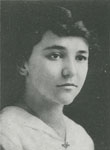

Helen Bosard was born in 1895 to Edgar and Nellie Bosard. After growing up in the Lafayette area, she attended college at Purdue University. Bosard earned her B.S. in home economics in 1918, and earned an MA at the University of Chicago in 1919. While at Purdue, Bosard was very active in extracurricular activities, including Omicron Nu, Purdue Girls' Club, YWCA, Student Council, and the Philalethean Society. Bosard went on to head the department of home economics education at the University of Alabama where she achieved the rank of Associate professor and retired after 27 years in 1965. Bosard moved back to Indiana after retiring, where she died in 1987.
Susan Bulkeley Butler
circa 1943 -


Susan Bulkeley Butler graduated from Purdue in 1965 with a Bachelor of Science degree in Industrial Management from the Krannert School of Management. The following year, she joined Arthur Andersen & Co., one of the then Big 8 Accounting firms, as the first professional female employee. Butler went on to become the Managing Partner of the Office of the CEO for Andersen Consulting/Accenture, until her retirement from Accenture in 2002. Butler, who has established a reputation as a "benefactor extraordinaire" for Purdue, holds an honorary doctorate from the Krannert School of Management, where she has an endowed chair and a scholarship for women student leaders. A leading member of the Women for Purdue, a group that is dedicated to women's leadership giving, she donated $3.65 million in order to establish the Institute of Leadership Excellence in Discovery Park, as well as an endowed chair. Butler has served on the Purdue Research Foundation Board, the Dean's Advisory Council at Krannert, and is past president of the university's President's Council. She was presented with the Business Leadership Award from the Krannert School in 2004. In 2006, Butler was appointed by Governor Mitch Daniels to Purdue's Board of Trustees, and participated in selecting a successor to President Martin Jischke, Dr. France Cordova. Butler's generous gift of $1 million to the Purdue University Libraries recently established the Susan Bulkeley Butler Women's Archives, which will document the lives and accomplishments of women affiliated with Purdue University and the state of Indiana.
Sharon Arvin Byrkett
May 11, 1946 - October 26, 2009


Byrkett was born in Lafayette, Indiana to Clarence and Mary Arvin on May 11, 1946. She was an advocate for disability accessibility who led a crusade at Purdue to improve mobility conditions for the physically handicapped, as she was born with muscular dystrophy. Although she was accepted to attend classes at Purdue, the West Lafayette campus was largely inaccessible to individuals with physical disabilities. Byrkett along with support of others was instrumental in bringing about the building modifications that are now a part of Purdue's campus. She eventually transferred to IUPUI where she graduated with a degree in Social Work in 1984. After graduation, she began advocacy work through her employment at the Resource Center for Independent Living and Goodwill Industries of Central Indiana. She also served on the Governor's Council for People with Disabilities and was a delegate to the National Council for People with Disabilities. Byrkett served on the board for the Indiana Association for People in Supported Employment and served as the chair and vice chair for IndyGo's Mobility Advisory Committee. She passed away in Indianapolis in 2009 at age 63. She was posthumously awarded the 2010 student Focus Award from Purdue University in recognition of her outstanding contributions in the area of disability access and diversity.
France Córdova
August 5, 1947 -
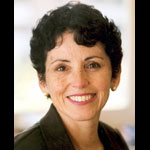

France A. Córdova, the eleventh president of Purdue University, was born in 1947 in Paris, France. Córdova is the oldest of twelve siblings born to her parents, who returned to the United States after her father’s service to the United States’ State Department was complete. Córdova attended Bishop Amat High School in West Covina, California and was active in her community and school activities. In spite of her later interest in astrophysics, she was initially drawn to the liberal arts, graduating cum laude from Stanford University with a bachelor’s degree in English. During her tenure at Stanford, Córdova also explored her heritage while doing fieldwork with the Zapotec Indians in Oaxaca, Mexico. The trip resulted in the publication of a short novel and recipe book which ultimately led to an internship with Mademoiselle that allowed her to travel further after graduation. These early experiences affected Córdova greatly, and had an impact on her approach as an educator- namely her support of international study, broad-based liberal arts education, and interdisciplinary research.
After the Apollo 11 moon landing, Córdova renewed her early interest in science and became fascinated by space. Her initial exploration of astrophysics began with her appointment as a lab assistant. While working, she also took classes to gain foundational knowledge in astrophysics before ultimately earning her PhD in Physics from the California Institute of Technology in 1979. Her PhD thesis was titled X-Ray Observations of Dwarf Novae, and led to several publications and conference presentations. This research continued during Córdova’s ten year appointment at the Los Alamos National Laboratory. Córdova first tried her hand at higher education during her four year stint at Pennsylvania State University, where she began as a professor and was promoted to the head of the newly developed Department of Astronomy and Astrophysics. Subsequently, she was selected as the Chief Scientist of the National Aeronautics and Space Administration where she worked on the Hubble Space Telescope and with several other committees.
In 1996, she returned to higher education when she was appointed as the vice chancellor for research and professor of physics at University of California, Santa Barbara. In 2002, she remained in the University of California system but transferred to the Riverside campus as the newly appointed chancellor, where she helped to establish a School of Medicine. She remained there until her 2007 appointment as Purdue’s eleventh president. This appointment brought much attention, as Córdova was recognized for being the first female as well as the first Hispanic president of Purdue. Córdova’s time at Purdue was noted for the establishment of the College of Health and Human Sciences, the Global Policy Research Institute, and for improving upon various rankings of the university. At the conclusion of her five year term in 2012, Córdova served as the chair of the Board of Regents for the Smithsonian Institution, before being appointed in 2014 as the new head of the National Science Foundation. In addition to her impressive resume and career thus far, Córdova has been the recipient of numerous awards and honors, some of which are highlighted throughout the collection.
After the Apollo 11 moon landing, Córdova renewed her early interest in science and became fascinated by space. Her initial exploration of astrophysics began with her appointment as a lab assistant. While working, she also took classes to gain foundational knowledge in astrophysics before ultimately earning her PhD in Physics from the California Institute of Technology in 1979. Her PhD thesis was titled X-Ray Observations of Dwarf Novae, and led to several publications and conference presentations. This research continued during Córdova’s ten year appointment at the Los Alamos National Laboratory. Córdova first tried her hand at higher education during her four year stint at Pennsylvania State University, where she began as a professor and was promoted to the head of the newly developed Department of Astronomy and Astrophysics. Subsequently, she was selected as the Chief Scientist of the National Aeronautics and Space Administration where she worked on the Hubble Space Telescope and with several other committees.
In 1996, she returned to higher education when she was appointed as the vice chancellor for research and professor of physics at University of California, Santa Barbara. In 2002, she remained in the University of California system but transferred to the Riverside campus as the newly appointed chancellor, where she helped to establish a School of Medicine. She remained there until her 2007 appointment as Purdue’s eleventh president. This appointment brought much attention, as Córdova was recognized for being the first female as well as the first Hispanic president of Purdue. Córdova’s time at Purdue was noted for the establishment of the College of Health and Human Sciences, the Global Policy Research Institute, and for improving upon various rankings of the university. At the conclusion of her five year term in 2012, Córdova served as the chair of the Board of Regents for the Smithsonian Institution, before being appointed in 2014 as the new head of the National Science Foundation. In addition to her impressive resume and career thus far, Córdova has been the recipient of numerous awards and honors, some of which are highlighted throughout the collection.
Eleanore Adelene Cammack
April 18, 1906 - December 10, 1995


Eleanor Adelene Cammack was born April 18, 1906. Cammack earned her BA from DePauw University in 1928. She then traveled to the University of Illinois to pursue a BS in Library Science, which she received in 1929. After finishing school, Cammack was hired by Purdue Libraries as an order assistant in 1929 before serving as a librarian. By 1955, she had become the head of the library's Order Department, with the rank of assistant professor. She also worked as an archivist outside of Purdue, helping to compile and process collections for the DePauw University and Indiana Methodism archive. Cammack passed away December 10, 1995.
Elizabeth Deutsch Capaldi
May 13, 1945 - September 23, 2017
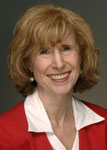

Elizabeth Deutsch Capaldi was born in 1945 in New York City. She graduated from Flushing High School. Capaldi earned her BA from Rochester University in 1965. She attended graduate school at the University of Texas, and earned her PhD in Experimental Psychology there in 1969.
After graduating, Capaldi joined the faculty in the Department of Psychological Sciences as an assistant professor. She was promoted through the ranks during her tenure at Purdue, and eventually served as the Head of the Department of Psychological Sciences (1983-1988) and the the Assistant Dean of the Graduate School (1982-1986).
After leaving Purdue, Capaldi moved to the University of Florida as a Professor, and was appointed Provost in 1996. From Florida, Capaldi was hired as the Provost at the University of Buffalo (2000-2003). She was also appointed the Vice Chancellor and Chief of Staff at the State University of New York (2003-2006). Finally, Capaldi moved to Arizona State University as the Executive Vice President and Provost (2006-2013). She became Provost Emerita in 2013 continued to serve in the Psychology Department.
Capaldi's research focused on the psychology of eating, and over the course of her career she published over 80 articles and chapters. She also edited and published two books. After her long career in academia, Capaldi merged her passion for research and cooking into the development of a television show: Eating Psychology with Betty.
Betty was a fellow of the American Association for the Advancement of Science, the American Psychological Association, the Association for Psychological Science (APS), the Psychonomic Society, and the Midwestern Psychological Association (MPA). She was served as president of both APS (1999–2000) and MPA (1991–1992). While in New York, Capaldi was on the Board of the Buffalo Museum of Science. Betty Capaldi died in 2017 after a short battle with brain cancer.
After graduating, Capaldi joined the faculty in the Department of Psychological Sciences as an assistant professor. She was promoted through the ranks during her tenure at Purdue, and eventually served as the Head of the Department of Psychological Sciences (1983-1988) and the the Assistant Dean of the Graduate School (1982-1986).
After leaving Purdue, Capaldi moved to the University of Florida as a Professor, and was appointed Provost in 1996. From Florida, Capaldi was hired as the Provost at the University of Buffalo (2000-2003). She was also appointed the Vice Chancellor and Chief of Staff at the State University of New York (2003-2006). Finally, Capaldi moved to Arizona State University as the Executive Vice President and Provost (2006-2013). She became Provost Emerita in 2013 continued to serve in the Psychology Department.
Capaldi's research focused on the psychology of eating, and over the course of her career she published over 80 articles and chapters. She also edited and published two books. After her long career in academia, Capaldi merged her passion for research and cooking into the development of a television show: Eating Psychology with Betty.
Betty was a fellow of the American Association for the Advancement of Science, the American Psychological Association, the Association for Psychological Science (APS), the Psychonomic Society, and the Midwestern Psychological Association (MPA). She was served as president of both APS (1999–2000) and MPA (1991–1992). While in New York, Capaldi was on the Board of the Buffalo Museum of Science. Betty Capaldi died in 2017 after a short battle with brain cancer.
Berenice Carroll
March 14,1932 - May 10, 2018
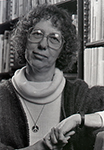

Berenice Carroll was born December 14, 1932 to Margaret and Morris Jacobs. She earned her undergraduate degree from Queens College in New York (1953), and her PhD from Brown University (1960). Carroll's upbringing during WWII and her experiences of the Cold War during her college years and early career significantly impacted her research and activism over the course of her career.
Carroll's first book, Design for Total War: Arms and Economics in the Third Reich, was written as a result of research she performed in Germany during her tenure as a Fulbright Scholar. This early text provided a foundation for her later peace research, which blended theory and activism and focused on the impacts of war, the power of peace and justice movements, and the intersection of feminist theory and peace.
As Carroll realized the centrality of women in peace work, she published a number of studies about women who were engaged as political theorists and activists: Christine de Pizan, Mary Beard, Virginia Woolf, and, later, Jane Addams. She also published a book, Liberating Women's History: Theoretical and Critical Essays; Women's Political and Social Thought: An Anthology; and a special issue of the Women's Studies International Forum titled ""In a Great Company of Women."" In service to the developing fields of women's studies and political studies, Carroll played an active role in several professional organizations. She developed a women's caucus in both the American Political Science Association and the American Historical Association, and served as president of the National Women's Studies Association. She built the International Peace Research Association and the Consortium on Peace Research, Education, and Development (COPRED), now the Peace and Justice Studies Association, and served as it's chair in the 1980s. She also served as editor of Peace and CHange: A Journal for Peace Research.
Over the course of her career, Carroll served as the Director of Women's Studies at University of Champaign-Urbana (1983-1987), University of Maryland- College Park (1975-1976), and Purdue University (1990-2000). She also taught political science at a number of universities: University of Illinois at Champaign-Urbana (1966-1969, 1969-1990), University of Maryland at College Park (1975-76), and University of Texas at Austin (1975). Prior to her first tenure track position at University of Illinois, Carroll worked as a researcher and lecturer. During her tenure at University of Illinois, Carroll was active in the formation of the Grass Roots Group of Second Class Citizens, which advocated for the passage of the ERA. She also co-founded the first women's shelter in Illinois. At Purdue, Carroll was a part of the Council on the Status of Women, and numerous other social justice efforts, including some led by students.
The WGSS program at Purdue annually awards the Berenice Carroll Feminism, Peace, and Social Justice Award in honor of her contributions at Purdue and to the fields of women's studies and peace studies. Berenice Carroll died in 2018.
Carroll's first book, Design for Total War: Arms and Economics in the Third Reich, was written as a result of research she performed in Germany during her tenure as a Fulbright Scholar. This early text provided a foundation for her later peace research, which blended theory and activism and focused on the impacts of war, the power of peace and justice movements, and the intersection of feminist theory and peace.
As Carroll realized the centrality of women in peace work, she published a number of studies about women who were engaged as political theorists and activists: Christine de Pizan, Mary Beard, Virginia Woolf, and, later, Jane Addams. She also published a book, Liberating Women's History: Theoretical and Critical Essays; Women's Political and Social Thought: An Anthology; and a special issue of the Women's Studies International Forum titled ""In a Great Company of Women."" In service to the developing fields of women's studies and political studies, Carroll played an active role in several professional organizations. She developed a women's caucus in both the American Political Science Association and the American Historical Association, and served as president of the National Women's Studies Association. She built the International Peace Research Association and the Consortium on Peace Research, Education, and Development (COPRED), now the Peace and Justice Studies Association, and served as it's chair in the 1980s. She also served as editor of Peace and CHange: A Journal for Peace Research.
Over the course of her career, Carroll served as the Director of Women's Studies at University of Champaign-Urbana (1983-1987), University of Maryland- College Park (1975-1976), and Purdue University (1990-2000). She also taught political science at a number of universities: University of Illinois at Champaign-Urbana (1966-1969, 1969-1990), University of Maryland at College Park (1975-76), and University of Texas at Austin (1975). Prior to her first tenure track position at University of Illinois, Carroll worked as a researcher and lecturer. During her tenure at University of Illinois, Carroll was active in the formation of the Grass Roots Group of Second Class Citizens, which advocated for the passage of the ERA. She also co-founded the first women's shelter in Illinois. At Purdue, Carroll was a part of the Council on the Status of Women, and numerous other social justice efforts, including some led by students.
The WGSS program at Purdue annually awards the Berenice Carroll Feminism, Peace, and Social Justice Award in honor of her contributions at Purdue and to the fields of women's studies and peace studies. Berenice Carroll died in 2018.
Martha Oakley Chiscon
August 27, 1935 -
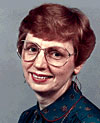

Martha Oakley Chiscon was born August 27, 1935. After earning her BS in Science Education from Western Illinois University, Chiscon taught as a high school science teacher before returning to school and receiving her doctorate in Immunobiology from Purdue. Upon graduation, Chiscon joined Purdue's Department of Biological Sciences as an instructor in 1964. She continued to teach and worked as both a professor and the Associate Dean of the College of Science. Throughout her time at Purdue, Chiscon worked to encourage her students, especially her female students. As she stated, "Very few women were in science when I started teaching. I let them know that a woman could be educated, married, and have children and still be normal." She was instrumental in organizing the Women in Science program, and designed and taught Women and the Science Disciplines, the first course of its kind in the nation to be taught at a college of science. She also served as the Chairman of the Athletic Affairs Committee, a position she used to help bring women's collegiate sports under the same national organizations as the men's. Chiscon worked at Purdue for 35 years before retiring as a Professor Emerita. Martha Chiscon has received numerous awards in recognition of her outstanding work as an educator, including the National Ohaus Innovation in Teaching Award, the Indiana Professor of the Year Award, and the Helen B. Schleman Gold Medallion Award.
Dorothy Jean Christoff
1943 - February 5, 1998
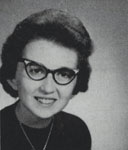

Dorothy Christoff was born to Boris and Luba Christoff in Northwest Indiana. An active member of the Purdue Society of Women Engineers, Christoff earned her BS in civil engineering in 1965. Two years later, Christoff also completed a MS degree in education at Purdue.
While a student, Christoff was very involved in extracurricular activities. Organizations with which she was affiliated include: Grand Prix, intramural sports, John Purdue Club, YWCA, Sycamore Girlscout Council, the Boilermaker Network, and the Lafayette Country Club.
After graduating, Christoff remained in the Greater Lafayette area and served as the Assistant Director of the Educational Placement Service. Subsequently, she held a position as the Assistant to the Head of the Department of Agriculture Economics. She was a lifetime member of the Purdue Alumni Association. She also served on the boards of Sycamore Girl Scout Council and the Lafayette Country Club, was a president of the YWCA of greater Lafayette, and was an advisor to the Pan Orthodox Student Fellowship at Purdue. Christoff passed away February 5, 1998.
While a student, Christoff was very involved in extracurricular activities. Organizations with which she was affiliated include: Grand Prix, intramural sports, John Purdue Club, YWCA, Sycamore Girlscout Council, the Boilermaker Network, and the Lafayette Country Club.
After graduating, Christoff remained in the Greater Lafayette area and served as the Assistant Director of the Educational Placement Service. Subsequently, she held a position as the Assistant to the Head of the Department of Agriculture Economics. She was a lifetime member of the Purdue Alumni Association. She also served on the boards of Sycamore Girl Scout Council and the Lafayette Country Club, was a president of the YWCA of greater Lafayette, and was an advisor to the Pan Orthodox Student Fellowship at Purdue. Christoff passed away February 5, 1998.
Margaret Church
April 8, 1920 -


Margaret Church was born in Boston, Massachusetts, on April 8, 1920. She received her A.B. from Radcliffe (1941), her Master’s degree from Columbia University (1942), and then returned to Radcliffe for her PhD (1944). Church taught at Temple University and at Duke University before coming to Purdue in 1953, where she joined the English Department.
When Church became a full professor in 1965, she was the first woman in the School of Liberal Arts to do so. In 1955, Church helped to found a journal that would become internationally known, Modern Fiction Studies. She remained instrumental with the publication and served as its co-editor from 1971 until her death. Church also founded Purdue’s doctoral program in Comparative Literature and served as its first director.
Outside of Purdue, Church was widely known for her work with the James Joyce Foundation and for her many published writings. Her first book was entitled Time and Reality: Studies in Contemporary Fiction (1963). Her second book was Don Quixote: The Knight of La Mancha (1971). Before her death in 1982, Church was also in the midst of finishing a third book, Structure and Theme: Don Quixote to James Joyce. The work was later finished by a friend and colleague of Church.
Throughout nearly thirty years at Purdue, Church acted as a mentor to numerous women. The Margaret Church MFS Memorial Prize was established in 1984 in memory of Dr. Church. In addition, the Purdue Board of Trustees named a distinguished professorship in honor of Church in 1998.
When Church became a full professor in 1965, she was the first woman in the School of Liberal Arts to do so. In 1955, Church helped to found a journal that would become internationally known, Modern Fiction Studies. She remained instrumental with the publication and served as its co-editor from 1971 until her death. Church also founded Purdue’s doctoral program in Comparative Literature and served as its first director.
Outside of Purdue, Church was widely known for her work with the James Joyce Foundation and for her many published writings. Her first book was entitled Time and Reality: Studies in Contemporary Fiction (1963). Her second book was Don Quixote: The Knight of La Mancha (1971). Before her death in 1982, Church was also in the midst of finishing a third book, Structure and Theme: Don Quixote to James Joyce. The work was later finished by a friend and colleague of Church.
Throughout nearly thirty years at Purdue, Church acted as a mentor to numerous women. The Margaret Church MFS Memorial Prize was established in 1984 in memory of Dr. Church. In addition, the Purdue Board of Trustees named a distinguished professorship in honor of Church in 1998.
May Jewel Gong Ciemins
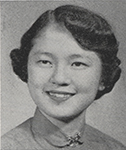

Dr. May Jewel Gong Ciemins was born and raised in Miami, Florida, where her family settled after emigrating from China in 1916. Gong attended Purdue University in 1951 to pursue a Bachelor of Science in Microbiology.
Gong, a skilled clarinet player, tried to join the Military Band while at Purdue but was initially denied by then conductor Spotts Emrick, as the band was just for men. Gong insisted that Emrick hear her play and afterwards, Emrick admitted her as the first woman and first Asian American woman on the Purdue Military Band. After Emrick's retirement, Gong was involved in Al Wright's appointment as the new conductor, who she had played under while in Miami.
In her freshman year, Gong participated in RUSH but later found out the campus sororities were only for white women. For the next two years, Gong stayed in Wood Hall and by her junior year, the Delta Gamma sorority had changed their bylaws, permitting her to join the sorority.
After graduating from Purdue in 1955, Gong earned a Fulbright Fellowship and went to Germany. This fellowship inspired Gong to pursue a career in medicine and upon returning, Gong applied to medical school. Gong completed her medical degree at the University of Miami in 1962 and went into pediatrics. She later specialized in radiology at the University of Pensylvannia and practiced in Ohio, where she later pursued a fellowship in neuroradiology.
Gong married twice, her second marriage occuring in 1996. Gong Ciemins retired at age 70 but continued to play clarinet, receiving instruction from players on the Cleveland Symphony Orchestra and playing on the Rocky River Chamber Music Society for 10 years. She continues to play clarinet.
Gong, a skilled clarinet player, tried to join the Military Band while at Purdue but was initially denied by then conductor Spotts Emrick, as the band was just for men. Gong insisted that Emrick hear her play and afterwards, Emrick admitted her as the first woman and first Asian American woman on the Purdue Military Band. After Emrick's retirement, Gong was involved in Al Wright's appointment as the new conductor, who she had played under while in Miami.
In her freshman year, Gong participated in RUSH but later found out the campus sororities were only for white women. For the next two years, Gong stayed in Wood Hall and by her junior year, the Delta Gamma sorority had changed their bylaws, permitting her to join the sorority.
After graduating from Purdue in 1955, Gong earned a Fulbright Fellowship and went to Germany. This fellowship inspired Gong to pursue a career in medicine and upon returning, Gong applied to medical school. Gong completed her medical degree at the University of Miami in 1962 and went into pediatrics. She later specialized in radiology at the University of Pensylvannia and practiced in Ohio, where she later pursued a fellowship in neuroradiology.
Gong married twice, her second marriage occuring in 1996. Gong Ciemins retired at age 70 but continued to play clarinet, receiving instruction from players on the Cleveland Symphony Orchestra and playing on the Rocky River Chamber Music Society for 10 years. She continues to play clarinet.
Marguerite Ann Clifton
July 17, 1925 - September 9, 2009
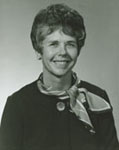

Marguerite Ann Clifton was born in Long Beach, California (1925) to Bertha and James Clifton. After leaving Long Beach, Clifton earned her B.A. from University of Redlands, an M.A. from USC, and an EdD from Stanford University. Her career in Physical Education with a focus on childhood motor skill development spanned positions at UCLA, Purdue University, and CSU Long Beach.
Clifton was hired to the faculty of the Department of Physical Education at Purdue in 1964 as the the Head of the Department of Physical Education for Women. Before coming to Purdue, Clifton had worked as the Chairman of the Undergraduate Men's and Women's Physical Education Major Unit at the University of California at Los Angeles. After leaving Purdue, she joined the faculty at CSU Long Beach as the Physical Education Department Chair, and received Professor Emeritus status in 1987.
During her time as department head at Purdue, Clifton worked to improve and promote the field of women's physical education. She and co-author Hope Smith agreed to donate one-third of the royalties from their book, ""Introduction to Human Movement,"" to expand the Department of Physical Education for Women. In addition, Clifton served as the president of the American Association of Health, Physical Education, and Recreation. In addition to her service to the AAHPE, Clifton served as president of numerous physical education related organizations, including AAPAR, AAHPER, AAKPE, and NAPEHE.
Clifton was hired to the faculty of the Department of Physical Education at Purdue in 1964 as the the Head of the Department of Physical Education for Women. Before coming to Purdue, Clifton had worked as the Chairman of the Undergraduate Men's and Women's Physical Education Major Unit at the University of California at Los Angeles. After leaving Purdue, she joined the faculty at CSU Long Beach as the Physical Education Department Chair, and received Professor Emeritus status in 1987.
During her time as department head at Purdue, Clifton worked to improve and promote the field of women's physical education. She and co-author Hope Smith agreed to donate one-third of the royalties from their book, ""Introduction to Human Movement,"" to expand the Department of Physical Education for Women. In addition, Clifton served as the president of the American Association of Health, Physical Education, and Recreation. In addition to her service to the AAHPE, Clifton served as president of numerous physical education related organizations, including AAPAR, AAHPER, AAKPE, and NAPEHE.
Rita Colwell
November 23, 1934-
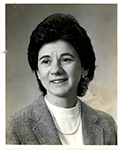

Dr. Rita Rossi Colwell is a microbiologist, founder of CosmosID, and a distinguished professor at both the University of Maryland at College Park and Johns Hopkins Bloomberg School of Public Health.
She was born in Beverly, Massachusetts to Louis and Louise Rossi and was the seventh of eight children. Colwell earned her Bachelor of Science (B.S.) in Bacteriology in 1956 and Master of Science (M.S) in Genetics from Purdue University. Colwell moved on to the University of Washington as a research assistant in 1957 where in 1961 she earned her doctorate (Ph.D.) in Oceanography.
Colwell stayed at the University of Washington as an assistant professor, followed by some brief work with the Canadian National Research Council (CNRC). In 1964, she became an associate professor at Georgetown University and in 1966 she secured tenure. Colwell accepted a tenured professorship at the University of Maryland in 1972 where she later served as the president of the University of Maryland's Biotechnology Institute. From 1998-2004, Colwell was the director for the National Science Foundation, becoming the first woman and first biological scientist to head the federal agency. In 2008, she founded the company CosmosID. She has also served on numerous science-related boards and associations and belongs to many national and international science academies.
Colwell is well known for her work in microbiology, ecology, infectious disease, public health, and computer and satellite technology and she is one of the world's leading experts on cholera. In the 1960's, she became the first researcher in the United States to develop a computer program to analyze bacteriological data and, during her tenure at Georgetown, was the first to discover that the bacterium that causes cholera naturally occurred in the areas around Chesapeake Bay.
Dr. Rita Rossi Colwell has received 55 honorary degrees from institutions of higher education, including an Alma Mater from Purdue University, Order of the Rising Sun, Gold and Silver Star bestowed by the Emperor of Japan, 2006 National Medal of Science of the United States, 2010 Stockholm Water Prize, and 2017 Vannevar Bush Award. There is also a geological site in Antarctica, ""Colwell Massif"", that has been named in recognition of her work in polar regions.
She was born in Beverly, Massachusetts to Louis and Louise Rossi and was the seventh of eight children. Colwell earned her Bachelor of Science (B.S.) in Bacteriology in 1956 and Master of Science (M.S) in Genetics from Purdue University. Colwell moved on to the University of Washington as a research assistant in 1957 where in 1961 she earned her doctorate (Ph.D.) in Oceanography.
Colwell stayed at the University of Washington as an assistant professor, followed by some brief work with the Canadian National Research Council (CNRC). In 1964, she became an associate professor at Georgetown University and in 1966 she secured tenure. Colwell accepted a tenured professorship at the University of Maryland in 1972 where she later served as the president of the University of Maryland's Biotechnology Institute. From 1998-2004, Colwell was the director for the National Science Foundation, becoming the first woman and first biological scientist to head the federal agency. In 2008, she founded the company CosmosID. She has also served on numerous science-related boards and associations and belongs to many national and international science academies.
Colwell is well known for her work in microbiology, ecology, infectious disease, public health, and computer and satellite technology and she is one of the world's leading experts on cholera. In the 1960's, she became the first researcher in the United States to develop a computer program to analyze bacteriological data and, during her tenure at Georgetown, was the first to discover that the bacterium that causes cholera naturally occurred in the areas around Chesapeake Bay.
Dr. Rita Rossi Colwell has received 55 honorary degrees from institutions of higher education, including an Alma Mater from Purdue University, Order of the Rising Sun, Gold and Silver Star bestowed by the Emperor of Japan, 2006 National Medal of Science of the United States, 2010 Stockholm Water Prize, and 2017 Vannevar Bush Award. There is also a geological site in Antarctica, ""Colwell Massif"", that has been named in recognition of her work in polar regions.
Barbara Cook
December 8, 1929 - April 10, 2013


Born in 1929, Barbara Cook came to Purdue in 1956 as a counselor in the Office of the Dean of Women. She received her BA in Sociology from the University of Arkansas in 1951, a M.A. in Student Personnel Administration from Syracuse University in 1954, a Ph.D. in Counseling and Personnel Services from Purdue University in 1967 as well as an honorary doctorate from Purdue University in 1996.
One of her early responsibilities as councilor in the Dean’s office involved serving as an advisor to Mortar Board, a senior-student honor society over which she presided for nearly thirty years. Cook also served as director of the Placement Service for Women, assistant and associate Dean of Women, associate Dean of Students, and, from 1980 to 1987, Dean of Students. She was a lecturer in the School of Education starting in 1970, and a professor of education from 1987 to 1989.
Nationally recognized for her efforts in promoting career opportunities for women, Cook served in several positions within the National Association of Women Deans, Administrators, and Councilors (NAWDAC) including serving as President from 1975–1976. She is also the recipient of numerous awards for her work, including the Helen B. Schleman Gold Medallion for Distinguished Contributions to Purdue University, the Dean Beverley Stone Award for Personal Counseling Contributions, and the Distinguished Lifetime Mortar Board Member Award.
Following her retirement in 1989, Barbara Cook was an active member of the Lafayette community and involved with many organizations, including the Salvation Army, Greater Lafayette YWCA, West Lafayette Redevelopment Commission, and the Indiana Governor's Commission for Women. In 2004, a sculpture entitled ""When Dreams Dance"" was dedicated to Cook and her late colleague and friend, Beverley Stone. It is located in between Schleman and Hovde Halls. Today, the current chapter of the Purdue Mortar Board is named in Cook's honor, who advised the group from 1956 to 1986.
One of her early responsibilities as councilor in the Dean’s office involved serving as an advisor to Mortar Board, a senior-student honor society over which she presided for nearly thirty years. Cook also served as director of the Placement Service for Women, assistant and associate Dean of Women, associate Dean of Students, and, from 1980 to 1987, Dean of Students. She was a lecturer in the School of Education starting in 1970, and a professor of education from 1987 to 1989.
Nationally recognized for her efforts in promoting career opportunities for women, Cook served in several positions within the National Association of Women Deans, Administrators, and Councilors (NAWDAC) including serving as President from 1975–1976. She is also the recipient of numerous awards for her work, including the Helen B. Schleman Gold Medallion for Distinguished Contributions to Purdue University, the Dean Beverley Stone Award for Personal Counseling Contributions, and the Distinguished Lifetime Mortar Board Member Award.
Following her retirement in 1989, Barbara Cook was an active member of the Lafayette community and involved with many organizations, including the Salvation Army, Greater Lafayette YWCA, West Lafayette Redevelopment Commission, and the Indiana Governor's Commission for Women. In 2004, a sculpture entitled ""When Dreams Dance"" was dedicated to Cook and her late colleague and friend, Beverley Stone. It is located in between Schleman and Hovde Halls. Today, the current chapter of the Purdue Mortar Board is named in Cook's honor, who advised the group from 1956 to 1986.
Mabel Post Coulter
October 21, 1880 - April 19, 1977


Mabel Post (Coulter) Smith was born October 21, 1880, to Stanley Coulter, Purdue’s first Dean of Science, and grew up near Purdue University. She left Indiana to study and earned her Bachelor of Arts degree in 1902 from Smith College. By 1907, Mabel had returned to Lafayette, Indiana, and married Albert Smith, a Purdue Civil Engineering graduate. They had two children, Catherine and Frederick. She died April 19, 1977, and is buried in Lafayette, Indiana.
Alida Mabel Cunningham
September 26, 1868 - April 29, 1942


Born in Kirkpatrick, Indiana, Alida Cunningham graduated from Purdue University in 1894 with a Bachelor of Science. Her senior science project was titled, ""Value of Seed Characteristics in Determining Specific Rank.""
After graduation, she joined the Indiana Academy of Science and participated in the State Biological Survey. She also worked for Purdue Dean of Science, Stanley Coulter to map the plants of Tippecanoe County as part of a larger project, the Catalogue of Plants of Indiana. In addition, her article ""Distribution of the Orchidacee in Indiana"" was published in the Proceedings of the Indiana Academy of Science in 1895.
After graduation, she joined the Indiana Academy of Science and participated in the State Biological Survey. She also worked for Purdue Dean of Science, Stanley Coulter to map the plants of Tippecanoe County as part of a larger project, the Catalogue of Plants of Indiana. In addition, her article ""Distribution of the Orchidacee in Indiana"" was published in the Proceedings of the Indiana Academy of Science in 1895.
Clara Avesta Cunningham
1876 - 1965
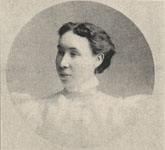

Clara Avesta Cunningham was from West Lafayette, Indiana. She attended Purdue and graduated in 1896 with a BS,and an MS in 1897. While a Purdue undergraduate, Clara was very active in clubs and served as the President of the Young Women's Christian Association, President of the Philalethean Society, and was the class secretary for 1896. Her senior thesis was titled, "Effects of Drought on Certain Native Plants." Her graduate research focused on diseases of sugar beet and the effects of droughts on plants. After graduation, she eventually moved to South Bend, Indiana and became involved with the Indiana Academy of Science, which published some of her work. She was also a high school teacher in South Bend and Indianapolis. She married Frank Elbel of South Bend in 1915.
Carolyn Curiel


Curiel graduated from Purdue in 1976 with a Bachelor of Arts degree in Radio, TV and Film. She went on to become a writer-producer for ABC news, then a journalist for the New York Times. From 1993-1997, Curiel worked as a presidential speechwriter at the White House during the Clinton Administration. She then served as the United States Ambassador to Belize from 1997-2001. Currently, she is one of sixteen members on the editorial board for The New York Times, writing primarily on New York politics and policies.
Florence Davidson
December 12, 1866 - January 4, 1947
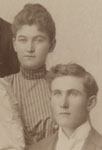

Davidson was born in 1866 in Hazleton, Indiana. Her parents were Phavilla Cunningham and Jasper Davidson. She attended classes at the Purdue Preparatory school in the early 1880s. Later, during the 1886-1887 academic year, she was listed as an irregular student, or a student who came to campus to take select classes. She was enrolled to study history, arithmetic, and wood-carving. Davidson was counted as part of the Purdue class of 1888, though she dropped out before graduation. She eventually married Frank Lockwood and passed away in 1947.
Julia Amy Davidson
April 2, 1863 - December 12, 1933


Davidson was born to Jasper Newton Davidson and Levanda J. Huff of Whitesville, Indiana on April 2, 1863. Davidson's father, Jasper Newton Davidson, was a member of the Purdue Board of Trustees from 1889 until 1895. She attended the Central Normal School in Lagoda, Indiana for three years and married James M. Waugh on December 11, 1889. Davidson's husband, James, was a civil engineer who graduated from Purdue in 1883. After their marriage, the couple settled in Crawfordsville, Indiana. Davidson wrote a book, Early Trail and Centennial History of Methodist Episcopal Church: The Path of a Century, in 1925. In 1927, she compiled a book that traced the history and genealogy of the Davidson family. Davidson was also involved with the Daughters of the American Revolution.
Martha Doan
June 6, 1872 - April 18, 1960


Martha Doan was born in Westfield, Indiana to Abel and Phoebe Doan. Her education began at Union High School, a Quaker School in Westfield known for producing leaders in many fields. Upon graduation, Doan left for Purdue University, where she earned her B.S. in 1891. She went on to earn a B.L. at Earlham College (1892), before returning to Purdue to complete a Masters degree in 1893. She received a ScD in Chemistry from Cornell in 1896, with research that focused on thalium.
After completing her education, Doan had a long career as an educator, beginning at Indianpolis Manual Training School (1896-1900). Doan's growing reputation as a researcher and educator resulted in an offer from Vassar, where she taught for 14 years (1900-1914). Doan also served as the Dean of Women and Professor of Chemistry at Earlham College (1914-1926), and at Iowa Wesleyan College (1929-1937).
Over the course of her career, Doan was very active in several organizations dedicated to science education and higher education for women: the American Association of University Women, the National Association of the Deans of Women, the American Association for the Advancement of Science, the American Chemical Society, the Indiana Academy of Science, and the Sigma Zi National Scientific Honorary Society. Doan was awarded an honorary Doctor of Science from Purdue (1950), and an Alumni Citation from Earlham College(1952).
She also became a member of the Advisory Committee for the Indiana Historical Commission. In 1963, the Martha Doan Memorial Garden in Westfield, Indiana was dedicated in her honor by the local Women's Club.
After completing her education, Doan had a long career as an educator, beginning at Indianpolis Manual Training School (1896-1900). Doan's growing reputation as a researcher and educator resulted in an offer from Vassar, where she taught for 14 years (1900-1914). Doan also served as the Dean of Women and Professor of Chemistry at Earlham College (1914-1926), and at Iowa Wesleyan College (1929-1937).
Over the course of her career, Doan was very active in several organizations dedicated to science education and higher education for women: the American Association of University Women, the National Association of the Deans of Women, the American Association for the Advancement of Science, the American Chemical Society, the Indiana Academy of Science, and the Sigma Zi National Scientific Honorary Society. Doan was awarded an honorary Doctor of Science from Purdue (1950), and an Alumni Citation from Earlham College(1952).
She also became a member of the Advisory Committee for the Indiana Historical Commission. In 1963, the Martha Doan Memorial Garden in Westfield, Indiana was dedicated in her honor by the local Women's Club.
Miriam A. Drake
1936 - December 24, 2014


Drake earned her BS in Economic Analysis, an MLS from Simmons College, and a BI from Harvard University. Upon completing her education, Drake worked in the private sector as a management consultant and research analyst for fourteen years. She joined the library faculty at Purdue in the research unit. In 1976, she became assistant director as well as professor of library science at Purdue. After leaving Purdue, Drake went to work for Georgia Tech in 1984. She retired in 2001 from her position as the Dean and Director of the Library and Information Center at the Georgia Institute of Technology. She also served as President of the Special Libraries Association. A prolific writer and researcher, Drake has several publications and received numerous awards, including the American Library Association Hugh Atkinson Award for innovation and risk taking in 1992. She has also been awarded honorary doctorates from Indiana University and Simmons College.
Amelia Earhart
July 24, 1897 - 1937
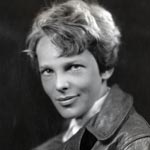

Amelia Mary Earhart was born on July 24, 1897, in Atchison, Kansas, to parents Amy Otis Earhart and Edwin Stanton Earhart. Her sister, Muriel, was born two and a half years later. Due to Edwin's occupation as a legal representative for various railroads, the family moved frequently during Amelia's childhood, living at times in Kansas City, Des Moines, St. Paul, and Chicago. After attending six high schools in four years, Earhart graduated from Chicago's Hyde Park High School in June 1915.
Earhart entered Ogontz School near Philadelphia in 1916. The following year, after visiting her sister Muriel in Toronto over Christmas, she decided not to return to Ogontz School and graduate, but instead to remain and join the war effort in Toronto. In February 1918, Earhart left Ogontz School and moved to Toronto to become a Voluntary Aid Detachment nurse at the Spadina Military Convalescent Hospital. While in Toronto, she began frequenting a local airfield, and soon became fascinated with flying. Following the Armistice in November 1918, she returned to the United States and entered Columbia University as a pre-medical student in the fall of 1919. Earhart soon realized that the practical aspects of medicine did not appeal to her, and left Columbia in 1920 to join her parents in Los Angeles, in an effort to help keep their marriage intact. In December 1920, she took her first ride in an airplane with pilot Frank Hawks. In January 1921, she began taking flying lessons from Anita (""Neta"") Snook. With help from her family, she took a job in a telephone company and bought her first airplane. In 1922, she set her first aviation record with an unofficial women's altitude record of 14,000 feet under the auspices of the Aero Club of Southern California. The following March, Earhart appeared as one of the attractions at a local air rodeo and in May 1923 she acquired her airline pilot's license. She was the first woman, and seventeenth pilot, to receive a National Aeronautic Association pilot's license. She became engaged to Sam Chapman and worked in a photography studio. Despite Earhart's efforts, her father's alcoholism, combined with her parents' inability to manage money, eventually led to the divorce of Edwin and Amy Earhart in 1924.
Following her parents' divorce, Earhart sold her airplane and bought a Kissel roadster car she called the ""Yellow Peril."" In June 1924, she drove cross-country with her mother from Los Angeles to Medford, Massachusetts, stopping along the way to visit several national parks (1924). She and her mother then moved in with Earhart's sister Muriel, in Medford, Massachusetts. After undergoing a sinus operation to relieve her chronic sinus headaches, she returned to Columbia University for the winter of 1924 - 1925. In May 1925, Earhart returned to the Boston area and upon her sister's urging, took classes at Harvard during the summer and received a teaching license. Earhart then spent several months teaching foreign students at the University of Massachusetts (Haugen, 2009). From June to October, she worked as a companion in a hospital for mental diseases, but found the work too confining and the pay insufficient. In 1926, Amelia joined the staff of Denison House, Boston's oldest settlement house, as a social worker. At Denison House, Earhart worked with immigrants and their children, teaching them English and educating them on local customs. Earhart joined the Boston chapter of the National Aeronautic Association (NAA) and in 1928 was elected vice president of the chapter. While working one day at Denison House, in April 1928, Earhart received a call from Hilton H. Railey asking if she would like to be the first woman to cross the Atlantic by air. Earhart accepted the proposal and accompanied pilot Wilmer Stultz and mechanic Louis ""Slim"" Gordon on their 1928 transatlantic flight on the Friendship plane. She soon gained international acclaim for being the first woman to make the transatlantic crossing by air, although she did not fly the plane herself. Following the Friendship flight, Amelia wrote her first book, 20 Hrs. 40 Mins. She broke her engagement with Sam Chapman, and took a job as Aviation Editor for Cosmopolitan magazine.
In 1929, Earhart competed in the Powder Puff Derby, the first national Women's Air Derby race, finishing in third place. She was appointed Assistant to the General Traffic Manager at Transcontinental Air Transport with special responsibility for promoting aviation to women travelers. Amelia, along with Ruth Nichols and several other women pilots, founded the Ninety-Nines, the first women pilots' organization. In 1930, Earhart set the women's flying speed record of 181.18 mph and acquired her transport pilot's license. She became the first woman to fly an autogiro in the United States and became vice president of Ludington Lines, a commercial airline. Her father, Edwin Earhart, died of cancer that same year. In February 1931, Amelia married publisher George Palmer Putnam in Noank, Connecticut. Earhart acquired an autogiro and set an altitude record for the autogiro in April. She completed a solo transcontinental flight across the United States in an autogiro in the summer of 1931 and that same year was elected the national vice president of the NAA (and the first woman officer of the NAA). Earhart was also elected the first president of the Ninety-Nines in 1931, and served in this position until 1933.
In May 1932, Amelia became the first woman (and second person) to fly solo across the Atlantic. With this flight, Amelia became the first person to cross the Atlantic twice by air nonstop, setting a record for the fastest Atlantic crossing and the longest distance flown by a woman. Amelia was awarded the Army Air Corps Distinguished Flying Cross by U.S. Congress, Honorary Membership in the British Guild of Airpilots and Navigators, and the Gold Medal of the National Geographic Society, which was presented to her by President Herbert Hoover. In July, she set the women's record for the fastest non-stop transcontinental flight, flying from Los Angeles to Newark, New Jersey. She wrote her second book, The Fun of It, and began lecturing all over the country, often speaking in two different cities on the same day. She was awarded the Harmon Trophy as America's Outstanding Airwoman, the Cross of Knight of the Legion of Honor by the French government, and received honorary membership in the National Aeronautic Association.
In 1933 Earhart participated in the National Air Races. The following year, in 1934, Amelia launched a fashion house to manufacture and market clothing designed by her. Her first shop opened in Macy’s in New York. It was initially a success, but by the end of the year the venture was shut down. In November 1934, the Earhart/Putnam home in Rye, New York, caught fire and many of Earhart's earliest papers burned, including poems written during childhood, letters, and stories she had been working on (Lovell, 1989). In 1935, Earhart became the first person to fly solo from Hawaii to the American mainland, landing in Oakland, California. With this flight, Amelia became the first person to fly solo across the Pacific Ocean and the first person who had flown solo across both the Atlantic and Pacific Oceans. That same year, she became the first person to fly solo from Los Angeles to Mexico City, by official invitation of the Mexican government.
On September 26 - 27, 1934, Purdue President Edward C. Elliott heard Amelia Earhart speak at a luncheon in New York on women's careers and he was so impressed with her talk that he asked if she would visit Purdue and give a lecture for the women students. Earhart spoke at a banquet at Purdue on October 17, 1934, and discussed ""Activities for Women After College."" After several talks with President Elliott, a contract was negotiated in 1935, stating that Amelia Earhart would be employed by Purdue as a visiting faculty member.
In the fall of 1935, Earhart joined the faculty of Purdue University, serving as a from the autumn of 1935 until her disappearance in July 1937 as Consultant in the Department for the Study of Careers for Women and Technical Advisor in the Department of Aeronautics for Purdue. Earhart was attracted to Purdue because at the time it was the only university in the United States with its own fully equipped airport. She was also impressed that practical mechanical and engineering training was available without discouragement to the women students on campus. At Purdue, Amelia lectured, conducted conferences with Purdue faculty and students, and initiated studies on new career opportunities for women. Perhaps most importantly, she served as an example of a successful modern woman for the female students. While working at Purdue, Amelia stayed in South Hall (later known as Duhme Hall) on campus. South Hall students vied with each other to sit at Amelia's table during meals. Buttermilk became an overnight favorite beverage on campus because it was Amelia’s choice.
Amelia's husband, George Palmer Putnam, first planted the idea of a ""flying laboratory"" airplane for research into President Elliott's mind. In the autumn of 1935, at a dinner party at Elliott's home, Amelia outlined her dreams for women and aviation and spoke of her desire to conduct studies on how long-distance flying affected pilots. Before the evening was over, guest David Ross offered to donate $50,000 as a gift toward the cost of providing a machine suitable for the flying laboratory. Further donations totaling $30,000 in cash and equipment were received from J. K. Lilly, Vincent Bendix, and manufacturers Western Electric, Goodrich, and Goodyear. The $80,000 formed the basis of ""The Amelia Earhart Fund for Aeronautical Research."" The fund's primary objective was to enable the development of scientific and engineering data of vital importance to the aviation industry. The Earhart Fund with the Purdue Research Foundation financed Amelia's ""flying laboratory,"" providing funds for a new Lockheed Electra airplane specially outfitted for long-distance flights. With her new airplane Earhart began seriously planning a world flight at the equator. It was in this plane that Amelia disappeared during her world flight attempt in 1937.
In March 1937, Amelia made her first attempt to circumnavigate the globe at the equator, flying westward from Oakland to Hawaii. Unfortunately, her plans were later thwarted when she attempted a takeoff from Luke Field and ground looped her plane. The plane was badly damaged and had to be sent to California for repairs. On June 1, Earhart began her second world flight attempt, this time taking off from Miami with navigator Fred Noonan, and reversing her course from west to east. After completing 22,000 miles of the flight, Amelia and Fred Noonan departed from Lae, New Guinea en route to tiny Howland Island. They experienced radio and weather difficulties and eventually lost radio contact with the U.S. Coast Guard cutter Itasca on July 2, 1937. Despite a massive search authorized by the U.S. government, no trace of Earhart, Noonan, or their plane was ever found. On July 18, the government abandoned its search, although George Putnam continued to finance his own search until October 1937. In 1939, Amelia Earhart was declared legally dead in Superior Court in Los Angeles. The whereabouts of Earhart and Noonan remains a mystery, and is the subject of much speculation to this day.
Earhart entered Ogontz School near Philadelphia in 1916. The following year, after visiting her sister Muriel in Toronto over Christmas, she decided not to return to Ogontz School and graduate, but instead to remain and join the war effort in Toronto. In February 1918, Earhart left Ogontz School and moved to Toronto to become a Voluntary Aid Detachment nurse at the Spadina Military Convalescent Hospital. While in Toronto, she began frequenting a local airfield, and soon became fascinated with flying. Following the Armistice in November 1918, she returned to the United States and entered Columbia University as a pre-medical student in the fall of 1919. Earhart soon realized that the practical aspects of medicine did not appeal to her, and left Columbia in 1920 to join her parents in Los Angeles, in an effort to help keep their marriage intact. In December 1920, she took her first ride in an airplane with pilot Frank Hawks. In January 1921, she began taking flying lessons from Anita (""Neta"") Snook. With help from her family, she took a job in a telephone company and bought her first airplane. In 1922, she set her first aviation record with an unofficial women's altitude record of 14,000 feet under the auspices of the Aero Club of Southern California. The following March, Earhart appeared as one of the attractions at a local air rodeo and in May 1923 she acquired her airline pilot's license. She was the first woman, and seventeenth pilot, to receive a National Aeronautic Association pilot's license. She became engaged to Sam Chapman and worked in a photography studio. Despite Earhart's efforts, her father's alcoholism, combined with her parents' inability to manage money, eventually led to the divorce of Edwin and Amy Earhart in 1924.
Following her parents' divorce, Earhart sold her airplane and bought a Kissel roadster car she called the ""Yellow Peril."" In June 1924, she drove cross-country with her mother from Los Angeles to Medford, Massachusetts, stopping along the way to visit several national parks (1924). She and her mother then moved in with Earhart's sister Muriel, in Medford, Massachusetts. After undergoing a sinus operation to relieve her chronic sinus headaches, she returned to Columbia University for the winter of 1924 - 1925. In May 1925, Earhart returned to the Boston area and upon her sister's urging, took classes at Harvard during the summer and received a teaching license. Earhart then spent several months teaching foreign students at the University of Massachusetts (Haugen, 2009). From June to October, she worked as a companion in a hospital for mental diseases, but found the work too confining and the pay insufficient. In 1926, Amelia joined the staff of Denison House, Boston's oldest settlement house, as a social worker. At Denison House, Earhart worked with immigrants and their children, teaching them English and educating them on local customs. Earhart joined the Boston chapter of the National Aeronautic Association (NAA) and in 1928 was elected vice president of the chapter. While working one day at Denison House, in April 1928, Earhart received a call from Hilton H. Railey asking if she would like to be the first woman to cross the Atlantic by air. Earhart accepted the proposal and accompanied pilot Wilmer Stultz and mechanic Louis ""Slim"" Gordon on their 1928 transatlantic flight on the Friendship plane. She soon gained international acclaim for being the first woman to make the transatlantic crossing by air, although she did not fly the plane herself. Following the Friendship flight, Amelia wrote her first book, 20 Hrs. 40 Mins. She broke her engagement with Sam Chapman, and took a job as Aviation Editor for Cosmopolitan magazine.
In 1929, Earhart competed in the Powder Puff Derby, the first national Women's Air Derby race, finishing in third place. She was appointed Assistant to the General Traffic Manager at Transcontinental Air Transport with special responsibility for promoting aviation to women travelers. Amelia, along with Ruth Nichols and several other women pilots, founded the Ninety-Nines, the first women pilots' organization. In 1930, Earhart set the women's flying speed record of 181.18 mph and acquired her transport pilot's license. She became the first woman to fly an autogiro in the United States and became vice president of Ludington Lines, a commercial airline. Her father, Edwin Earhart, died of cancer that same year. In February 1931, Amelia married publisher George Palmer Putnam in Noank, Connecticut. Earhart acquired an autogiro and set an altitude record for the autogiro in April. She completed a solo transcontinental flight across the United States in an autogiro in the summer of 1931 and that same year was elected the national vice president of the NAA (and the first woman officer of the NAA). Earhart was also elected the first president of the Ninety-Nines in 1931, and served in this position until 1933.
In May 1932, Amelia became the first woman (and second person) to fly solo across the Atlantic. With this flight, Amelia became the first person to cross the Atlantic twice by air nonstop, setting a record for the fastest Atlantic crossing and the longest distance flown by a woman. Amelia was awarded the Army Air Corps Distinguished Flying Cross by U.S. Congress, Honorary Membership in the British Guild of Airpilots and Navigators, and the Gold Medal of the National Geographic Society, which was presented to her by President Herbert Hoover. In July, she set the women's record for the fastest non-stop transcontinental flight, flying from Los Angeles to Newark, New Jersey. She wrote her second book, The Fun of It, and began lecturing all over the country, often speaking in two different cities on the same day. She was awarded the Harmon Trophy as America's Outstanding Airwoman, the Cross of Knight of the Legion of Honor by the French government, and received honorary membership in the National Aeronautic Association.
In 1933 Earhart participated in the National Air Races. The following year, in 1934, Amelia launched a fashion house to manufacture and market clothing designed by her. Her first shop opened in Macy’s in New York. It was initially a success, but by the end of the year the venture was shut down. In November 1934, the Earhart/Putnam home in Rye, New York, caught fire and many of Earhart's earliest papers burned, including poems written during childhood, letters, and stories she had been working on (Lovell, 1989). In 1935, Earhart became the first person to fly solo from Hawaii to the American mainland, landing in Oakland, California. With this flight, Amelia became the first person to fly solo across the Pacific Ocean and the first person who had flown solo across both the Atlantic and Pacific Oceans. That same year, she became the first person to fly solo from Los Angeles to Mexico City, by official invitation of the Mexican government.
On September 26 - 27, 1934, Purdue President Edward C. Elliott heard Amelia Earhart speak at a luncheon in New York on women's careers and he was so impressed with her talk that he asked if she would visit Purdue and give a lecture for the women students. Earhart spoke at a banquet at Purdue on October 17, 1934, and discussed ""Activities for Women After College."" After several talks with President Elliott, a contract was negotiated in 1935, stating that Amelia Earhart would be employed by Purdue as a visiting faculty member.
In the fall of 1935, Earhart joined the faculty of Purdue University, serving as a from the autumn of 1935 until her disappearance in July 1937 as Consultant in the Department for the Study of Careers for Women and Technical Advisor in the Department of Aeronautics for Purdue. Earhart was attracted to Purdue because at the time it was the only university in the United States with its own fully equipped airport. She was also impressed that practical mechanical and engineering training was available without discouragement to the women students on campus. At Purdue, Amelia lectured, conducted conferences with Purdue faculty and students, and initiated studies on new career opportunities for women. Perhaps most importantly, she served as an example of a successful modern woman for the female students. While working at Purdue, Amelia stayed in South Hall (later known as Duhme Hall) on campus. South Hall students vied with each other to sit at Amelia's table during meals. Buttermilk became an overnight favorite beverage on campus because it was Amelia’s choice.
Amelia's husband, George Palmer Putnam, first planted the idea of a ""flying laboratory"" airplane for research into President Elliott's mind. In the autumn of 1935, at a dinner party at Elliott's home, Amelia outlined her dreams for women and aviation and spoke of her desire to conduct studies on how long-distance flying affected pilots. Before the evening was over, guest David Ross offered to donate $50,000 as a gift toward the cost of providing a machine suitable for the flying laboratory. Further donations totaling $30,000 in cash and equipment were received from J. K. Lilly, Vincent Bendix, and manufacturers Western Electric, Goodrich, and Goodyear. The $80,000 formed the basis of ""The Amelia Earhart Fund for Aeronautical Research."" The fund's primary objective was to enable the development of scientific and engineering data of vital importance to the aviation industry. The Earhart Fund with the Purdue Research Foundation financed Amelia's ""flying laboratory,"" providing funds for a new Lockheed Electra airplane specially outfitted for long-distance flights. With her new airplane Earhart began seriously planning a world flight at the equator. It was in this plane that Amelia disappeared during her world flight attempt in 1937.
In March 1937, Amelia made her first attempt to circumnavigate the globe at the equator, flying westward from Oakland to Hawaii. Unfortunately, her plans were later thwarted when she attempted a takeoff from Luke Field and ground looped her plane. The plane was badly damaged and had to be sent to California for repairs. On June 1, Earhart began her second world flight attempt, this time taking off from Miami with navigator Fred Noonan, and reversing her course from west to east. After completing 22,000 miles of the flight, Amelia and Fred Noonan departed from Lae, New Guinea en route to tiny Howland Island. They experienced radio and weather difficulties and eventually lost radio contact with the U.S. Coast Guard cutter Itasca on July 2, 1937. Despite a massive search authorized by the U.S. government, no trace of Earhart, Noonan, or their plane was ever found. On July 18, the government abandoned its search, although George Putnam continued to finance his own search until October 1937. In 1939, Amelia Earhart was declared legally dead in Superior Court in Los Angeles. The whereabouts of Earhart and Noonan remains a mystery, and is the subject of much speculation to this day.
Carol A. Ecker
September 26, 1940 - August 14, 2019
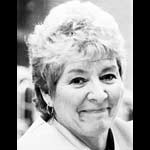

Carol A. Ecker (b. 1940) graduated from the School of Veterinary Medicine in 1964, one of the first of two women graduates to earn a doctorate in the newly established Doctor of Veterinary Medicine program. She was also the first female president of the Indiana Veterinary Medical Association. Her success as a student carried over into her professional life, where she became president of the Clayview Animal Clinic, owner and operator of Clayview farms, secretary-treasurer of Ecker Enterprises and owner of Marcell's Pet Salon.
Ecker displayed great leadership in state veterinary organizations. In addition to her presidential term with the IVMA, she was also a member of the IVMA Legislative and Animal Welfare Committees; IVMA Annual Meeting Committee; and the IVMA Audit and Budget Committee. She was a founding member of the Indiana Animal Health Foundation (1998-). The IVMA honored Ecker with the IVMA Veterinarian of the Year Award (1989) and the IVMA President’s Award (2009).
Ecker was committed to service within the veterinary community for her entire career. In addition to being involved in several professional organizations, Ecker also intitiated the Twin City Therapy animal bonding program,was an active member of St. Joseph County Humane Society, Portage Manor healthcare facility, and Animal Control Commission of South Bend. She was involved with the Michiana Kennel Club and the Hoosier SUmmer Classic. Ecker and her husband, Kenny, were active in showing horses and collectively won dozens of AQHA shows with their horses. Carol was a part of the 4H Horse & Pony Club of St. Joseph County, American and Indiana Quarter Horse Associations, and Palomino Horse Breeders Association.
Ecker also remained committed to her alma matter, serving in leadership positions in various alumni and advisroy councils at Purdue University. She helped establish the Purdue Veterinary Alumni Association, where she served as secretary-treasurer. She later went on to serve on the Dean's Advisory Council of the School of Veterinary Medicine, and in 1988, became a member of the Purdue Board of Trustees where she served until 1997. Ecker active on the Purdue campus in a number of student and career-oriented programs, including the Dean's Club and the President's Club. She was awarded the Purdue President's Medal in 1994.
Ecker passed away in 2019, and was survived by her daughter Christy and son Larry.
Ecker displayed great leadership in state veterinary organizations. In addition to her presidential term with the IVMA, she was also a member of the IVMA Legislative and Animal Welfare Committees; IVMA Annual Meeting Committee; and the IVMA Audit and Budget Committee. She was a founding member of the Indiana Animal Health Foundation (1998-). The IVMA honored Ecker with the IVMA Veterinarian of the Year Award (1989) and the IVMA President’s Award (2009).
Ecker was committed to service within the veterinary community for her entire career. In addition to being involved in several professional organizations, Ecker also intitiated the Twin City Therapy animal bonding program,was an active member of St. Joseph County Humane Society, Portage Manor healthcare facility, and Animal Control Commission of South Bend. She was involved with the Michiana Kennel Club and the Hoosier SUmmer Classic. Ecker and her husband, Kenny, were active in showing horses and collectively won dozens of AQHA shows with their horses. Carol was a part of the 4H Horse & Pony Club of St. Joseph County, American and Indiana Quarter Horse Associations, and Palomino Horse Breeders Association.
Ecker also remained committed to her alma matter, serving in leadership positions in various alumni and advisroy councils at Purdue University. She helped establish the Purdue Veterinary Alumni Association, where she served as secretary-treasurer. She later went on to serve on the Dean's Advisory Council of the School of Veterinary Medicine, and in 1988, became a member of the Purdue Board of Trustees where she served until 1997. Ecker active on the Purdue campus in a number of student and career-oriented programs, including the Dean's Club and the President's Club. She was awarded the Purdue President's Medal in 1994.
Ecker passed away in 2019, and was survived by her daughter Christy and son Larry.
Emma Pike Ewing
July 1838 - February 1917
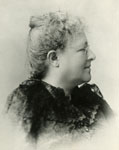

Emma Ewing was born in Broome County, New York in 1838. Emma married W.P. Ewing in 1863. After the Civil War, Emma gained national recognition as a cooking instructor and became known as "the woman who would have taught America to make good bread if America could have been taught." Emma authored several books, including titles such as Cooking and Castle-building (1880), Soup and Soup-making (1882), and A Text-book of Cookery, for Use in Schools (1899), among others. In 1882, she established the Chicago School of Cookery. Emma went to Iowa State University in 1884 as the leader of the Domestic Economy Department. She left in 1887 to head the newly formed Department of Domestic Economy at Purdue University, becoming the first female department head at Purdue. In 1889, Ewing left Purdue and was involved as both the dean of the Chautauqua Assembly in New York and as a traveling lecturer. In 1892, she formed the Housekeepers’ National League to improve training in the domestic sciences. In addition, she also founded the Model Home School of Household Economics in 1898, which was affiliated with Marietta College in Ohio. Ewing died in February, 1917.
Ukari Figgs
March 31, 1977 -
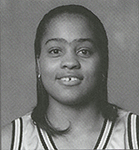

Ukari Figgs graduated from Purdue with a degree in Mechanical Engineering (1999), led the women's basketball team to their first NCAA championship, and played in the WNBA before working as a women's basketball coach and director and later an engineer with Toyota.
Figgs was born on March 31, 1977 in Georgetown, Kentucky and was a successful basketball player throughout high school. Figgs attended Purdue where she co-captained the Purdue women's basketball team with Stephanie White-McCarty and led the women's team to their first NCAA Championship win. That year, Figgs was named the Most Outstanding Player of the NCAA Final Four and was named to the All-Tournament team, among other accomplishments. Figgs earned her degree from Purdue in Mechanical Engineering in 1999.
After graduation, Figgs was selected to play for the Los Angeles Sparks in the WNBA. In 2003, Figgs retired from the WNBA and entered the field of engineering, working for Toyota as a production engineer. In 2009, Figgs re-entered athletics and returned to Purdue as assistant coach for the women's basketball team. In 2011, she left Purdue to become assistant athletic director for women's basketball at the University of Kentucky. In 2013, she returned to Toyota and currently works as an assistant manager in the production engineering department. In 2007, Figgs was inducted into Purdue's Intercollegiate Athletics Hall of Fame.
Figgs was born on March 31, 1977 in Georgetown, Kentucky and was a successful basketball player throughout high school. Figgs attended Purdue where she co-captained the Purdue women's basketball team with Stephanie White-McCarty and led the women's team to their first NCAA Championship win. That year, Figgs was named the Most Outstanding Player of the NCAA Final Four and was named to the All-Tournament team, among other accomplishments. Figgs earned her degree from Purdue in Mechanical Engineering in 1999.
After graduation, Figgs was selected to play for the Los Angeles Sparks in the WNBA. In 2003, Figgs retired from the WNBA and entered the field of engineering, working for Toyota as a production engineer. In 2009, Figgs re-entered athletics and returned to Purdue as assistant coach for the women's basketball team. In 2011, she left Purdue to become assistant athletic director for women's basketball at the University of Kentucky. In 2013, she returned to Toyota and currently works as an assistant manager in the production engineering department. In 2007, Figgs was inducted into Purdue's Intercollegiate Athletics Hall of Fame.
Cleo Fitzsimmons
March 5, 1900 - November 30, 1998
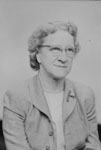

Cleo Fitzsimmons was born March 5, 1900 in St. Paul, Kansas. She graduated in 1928 from Iowa State University with a bachelor's degrees in Journalism and Home Economics. She also received her MS from the University of Illinois with a thesis entitled, ""Some Contributions of Economic Theory to Home Economics."" In 1945, Fitzsimmons earned her PhD in Economics with minors in Sociology and Home Management from the University of Illinois. She received an Alumni Merit Award in 1953 from her alma mater.
She joined the faculty at Purdue University in 1946 as a professor and department head in Home Management and Economics. Her research focused on farm families, food, and economics. Fitzsimmons is credited with introducing the field of family economics into the college that is now known as Consumer and Family Sciences. She retired from Purdue as a Professor Emeritus in 1972 and returned to Iowa. She passed away November 30, 1998.
She joined the faculty at Purdue University in 1946 as a professor and department head in Home Management and Economics. Her research focused on farm families, food, and economics. Fitzsimmons is credited with introducing the field of family economics into the college that is now known as Consumer and Family Sciences. She retired from Purdue as a Professor Emeritus in 1972 and returned to Iowa. She passed away November 30, 1998.
Mary Louise Foster
February 18, 1921 - August 28, 2012


Mary Louise Foster, a native of Harrisburg, Indiana, studied Home Economics at Purdue. Foster earned a Bachelor’s degree in 1939 and a Master’s degree in 1950. After graduation she taught Home Economics in local public high schools, including the first home economics class for boys at Harrisburg High School.
Foster returned to Purdue in 1955 as a professor in the Family and Consumer Sciences Department, where she served as an instructor of the Home Management House course. Foster helped to develop the first program in Home Economics at the University of Vicosa in Brazil, working there from 1960 until 1965. She officially retired from Purdue in 1987, but continued on as an Academic Advisor in the Department of Consumer Sciences and Retailing.
Mary Louise Foster served a total of almost sixty years at Purdue. She received the Helen B. Schleman Gold Medallion award in 2000 and the Special Boilermaker Award from the Purdue Alumni Association in 2005. A scholarship in her name has been established by the former Consumer and Family Sciences Student Council (later the Health and Human Sciences Student Council).
Foster returned to Purdue in 1955 as a professor in the Family and Consumer Sciences Department, where she served as an instructor of the Home Management House course. Foster helped to develop the first program in Home Economics at the University of Vicosa in Brazil, working there from 1960 until 1965. She officially retired from Purdue in 1987, but continued on as an Academic Advisor in the Department of Consumer Sciences and Retailing.
Mary Louise Foster served a total of almost sixty years at Purdue. She received the Helen B. Schleman Gold Medallion award in 2000 and the Special Boilermaker Award from the Purdue Alumni Association in 2005. A scholarship in her name has been established by the former Consumer and Family Sciences Student Council (later the Health and Human Sciences Student Council).
Eliza Hawkins Fowler
December 1817 - May 20, 1902


Eliza Hawkins was born to James and Susannah Hawkins in 1817 in Ohio. Together they moved to Indiana as one of the early settler families in 1829. Eliza married Moses Fowler in 1843, and together they had 5 children, two of whom died in infancy. The surviving children were Annis, Ophelia, and James. Together, Eliza and Moses platted the town of Fowler, Indiana in 1872, and officially incorporated it in 1875.
After Moses died in 1889, Eliza remained committed to various philanthropic efforts in the community and was a frequent donor to many of them, including Purdue University.
Eliza Hawkins Fowler was Purdue's first major woman benefactor. In 1901, she gave $70,000 in funding to the University for construction of the first assembly hall, the largest single gift to the University since John Purdue's contribution in 1869. Fowler Hall became a ""campus showcase,"" used for orientations, convocations, lectures, and the first indoor commencement exercises. Although it was demolished in 1954 in order to make room for a campus conference center, the tradition of Fowler Hall lives on in the Stewart Center auditorium which bears Eliza Fowler's name, located in almost the same location as the original structure.
Eliza Hawkins Fowler died in 1902, before the building bearing her name was completed.
After Moses died in 1889, Eliza remained committed to various philanthropic efforts in the community and was a frequent donor to many of them, including Purdue University.
Eliza Hawkins Fowler was Purdue's first major woman benefactor. In 1901, she gave $70,000 in funding to the University for construction of the first assembly hall, the largest single gift to the University since John Purdue's contribution in 1869. Fowler Hall became a ""campus showcase,"" used for orientations, convocations, lectures, and the first indoor commencement exercises. Although it was demolished in 1954 in order to make room for a campus conference center, the tradition of Fowler Hall lives on in the Stewart Center auditorium which bears Eliza Fowler's name, located in almost the same location as the original structure.
Eliza Hawkins Fowler died in 1902, before the building bearing her name was completed.
Mary Endres Fyfe
February 16, 1914 - December 14, 2005
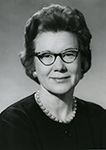

Dr. Mary (Pollock) Endres Fyfe was an educator and superintendent in Illinois, assistant professor at Purdue University, travelled internationally to develop teacher training programs in countries such as Pakistan and Nigeria, and later served as the first vice president for academic affairs at Governors State University.
Endres Fyfe was born on February 16, 1914 in Macomb, Illinois to George and Cora (Spear) Pollock. She married twice; her second husband was William Fyfe who she married in 1984. She earned a bachelor's degree from Western Illinois University (1943), and a master's in Education (1946) and doctorate in Education (1952) from the University of Chicago.
Endres Fyfe worked as a teacher (1932-1942) and superintendent (1942-1955) in Illinois before coming to Purdue University as an associate professor (1955-1972). While at Purdue, Endres Fyfe founded the Department of Elementary Education, consulted with school districts across the United States, and helped establish early childhood programs in African-American communities in Mississippi, Georgia, Indiana, and Ohio. She also travelled internationally to help develop teacher-training programs in Pakistan and Nigeria. In 1972, she became the first vice president for academic affairs at Governors State University in Illinois, which she held until she retired in 1981.
Mary Endres Fyfe died on December 14, 2005 in Woodstock, Illinois.
Endres Fyfe was born on February 16, 1914 in Macomb, Illinois to George and Cora (Spear) Pollock. She married twice; her second husband was William Fyfe who she married in 1984. She earned a bachelor's degree from Western Illinois University (1943), and a master's in Education (1946) and doctorate in Education (1952) from the University of Chicago.
Endres Fyfe worked as a teacher (1932-1942) and superintendent (1942-1955) in Illinois before coming to Purdue University as an associate professor (1955-1972). While at Purdue, Endres Fyfe founded the Department of Elementary Education, consulted with school districts across the United States, and helped establish early childhood programs in African-American communities in Mississippi, Georgia, Indiana, and Ohio. She also travelled internationally to help develop teacher-training programs in Pakistan and Nigeria. In 1972, she became the first vice president for academic affairs at Governors State University in Illinois, which she held until she retired in 1981.
Mary Endres Fyfe died on December 14, 2005 in Woodstock, Illinois.
Florence Anna Gates
circa 1880s - ?


Originally from Toledo, Ohio, Gates graduated with a BS from Purdue in 1903. Her senior thesis is titled, "The Formations of Cork in Woody Stems and its Effect on the Peripheral Tissues." Nicknamed "Goo Goo" by her classmates, Gates was active in the Philalethean Literary Society and served as Exchange Editor for the Exponent student newspaper. She also received her MS at Purdue and then underwent further training at the Toledo Manual Training School. In 1914, she was employed as a science teacher at Toledo Central High School in Ohio. An article she wrote, "Some Health Conditions Existing Among Our High School Girls," was published in 1919. When the new Edmund D. Libbey High School was opened in 1923, Gates became the Head of the Science Department. Florence was the sibling of Christopher Gates (Class of 1913), and Louise Gates. Florence and Louise started the Gates Scholarship Fund in memorium of their brother.
Ester L. Gault
February 12, 1907 - June 5, 1991
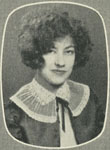

Esther Louise Gault was born February 12, 1907 in Lafayette, Indiana. A graduate of Jefferson High School, she attended Purdue and earned a Bachelor of Science in 1928. She also received a teaching license from the state of Indiana in 1928, for English and social sutdies. She enrolled in gradaute school there in 1936, but there is no record of her finishing. She was involved with several student clubs such as the Spanish Club, the Eurodelphian Society, the Y.W.C.A., and the Sophomore Commission.
LaNelle E. Geddes
September 15, 1935 - January 25, 2016
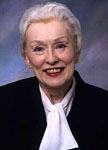

LaNelle E. (Nerger) Geddes was born on September 15, 1935 in Houston, Texas to Carl O. and Evelyn Nerger. She received a B.S. in Nursing from the University of Houston in 1957, and earned a PhD in Biophysics there in 1970. After receiving her PhD, Geddes taugh at the Texas Women's University and in the Department of Physiology at Baylor College of Medicine in Houston.
Geddes joined the faculty at Purdue in 1975 where her husband, Leslie A. Geddes, was the head of the Department of Biomedical Engineering. Lanelle started in the School of Nursing as the Assistant Head of the Department. In 1980, she was promoted to the Head of the Department and served as Head until 1991. While at Purdue, Geddes challenged traditional perceptions of nurses as merely doctors' assistants who were wrongly believed to have no expertise or skill for diagnosis and treatment. In addition, Geddes was also instrumental in instituting a four-year nursing baccalaureate program and starting the Freshman Scholars, a program that provided scholarships to outstanding incoming freshman.
Geddes' research was focused on cardiovacular physiology. Her teaching emphasized the impact of human pathophysiologic alterations and their influence on nursing and medical care. Her inclusion of pathophysiology encouraged her students to make better clinical judgements and to be stronger patient advocates. From 1996-2003, Geddes also taught pathophysiology to IU School of Medicine students at Purdue University. Geddes retired as a professor emeritus in 2003.
Geddes' research and teaching had far-reaching impacts, and she received many awards over the course of her career. She was an AMOCO Foundation (Murphy) Award winner, a fellow of the University Teaching Academy, and a Helen B Schleman Gold Medallion Awardee. She also received the Lafayette YWCA Salute to Women Award and the Westminster Village Lifetime Service Award for her work within the community. Geddes passed away on January 25, 2016.
Geddes joined the faculty at Purdue in 1975 where her husband, Leslie A. Geddes, was the head of the Department of Biomedical Engineering. Lanelle started in the School of Nursing as the Assistant Head of the Department. In 1980, she was promoted to the Head of the Department and served as Head until 1991. While at Purdue, Geddes challenged traditional perceptions of nurses as merely doctors' assistants who were wrongly believed to have no expertise or skill for diagnosis and treatment. In addition, Geddes was also instrumental in instituting a four-year nursing baccalaureate program and starting the Freshman Scholars, a program that provided scholarships to outstanding incoming freshman.
Geddes' research was focused on cardiovacular physiology. Her teaching emphasized the impact of human pathophysiologic alterations and their influence on nursing and medical care. Her inclusion of pathophysiology encouraged her students to make better clinical judgements and to be stronger patient advocates. From 1996-2003, Geddes also taught pathophysiology to IU School of Medicine students at Purdue University. Geddes retired as a professor emeritus in 2003.
Geddes' research and teaching had far-reaching impacts, and she received many awards over the course of her career. She was an AMOCO Foundation (Murphy) Award winner, a fellow of the University Teaching Academy, and a Helen B Schleman Gold Medallion Awardee. She also received the Lafayette YWCA Salute to Women Award and the Westminster Village Lifetime Service Award for her work within the community. Geddes passed away on January 25, 2016.
Carolyn Gery
March 6, 1945 -
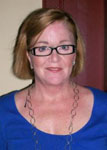

Carolyn Gery was born in Seattle, Washington. Her family moved to West Lafayette in 1946, where Carolyn attended grade school, West Lafayette High School, and Purdue. Her career was devoted to fundraising for the university, where she served on the President’s Council at Purdue for more than thirty years, covering the tenure of five university presidents. The Purdue Foundation Board awarded Carolyn with an Honorary Chair, and she was the recipient of a special President’s Council Service Award, and the President’s Medal. After graduating from Purdue, Carolyn moved to Atlanta where she worked for two years in marketing. Although she loved the big city, she moved back to West Lafayette, and in 1972 took a position at Purdue with the University Development Office and its newly established outreach program. She was involved in the early development of the President’s Council under President Hansen, its growth with national outreach through the Purdue Alumni Association, and its interface with major business corporation leadership. Carolyn participated in the Council’s organization of its service awards including Purdue’s Distinguished Service Award, the Sagamore of the Wabash (through the Indiana governor’s office), and the Purdue President’s Council Pinnacle award.
Lillian Moller Gilbreth
May 24, 1878 - January 2, 1972
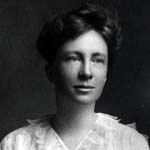

Lillian Evelyn Moller Gilbreth, commonly referred to as the “Mother of Modern Management,” was born May 24, 1878 to William Moller and Annie Delger in Oakland, California. Her parents were descendants of German immigrants and she had eight siblings, five sisters and three brothers, of which she was the eldest. Though initially opposed, Lillian convinced her father to let her attend college and received a bachelor’s degree in literature from the University of California (1900) and was selected as the commencement speaker, becoming the first woman to speak at the university’s commencement. She pursued a master’s degree, first attending Columbia University and then the University of California, where she earned the degree, also in literature, in 1902. In 1915, she earned her PhD in Psychology from Brown University.
Lillian met Frank Gilbreth in 1902 and they married on October 19, 1904. In addition to being a couple, they became business partners in Frank’s engineering consulting company and had twelve children together, six boys and six girls, though one daughter died in childhood from diphtheria. Over the next twenty years, Frank and Lillian built their engineering consulting business and conducted pioneering research in the field of time and motion study. Using their combined expertise, they focused on both the human and technical elements to reduce worker fatigue and improve efficiency. They published numerous articles and books together, created new techniques for analyzing worker motions, such as chronocyclographs and therbligs, and consulted with numerous companies across the United States and overseas, applying their motion study theories and methodologies to business and industry, sports, the household, surgery, clerical work, and persons with disabilities. They also taught summer courses on scientific management.
After Frank died in 1924, Lillian Gilbreth continued their consulting business, though most of her contracts tended to focus on women’s spheres, and took over many of Frank’s roles in the engineering community. She lectured at universities across the United States, spoke at many engineering societies including American Society of Mechanical Engineers and Taylor Society, served as a delegate at international conferences, often as the only woman, designed and taught Motion Study Courses, and continued their research. Through her consulting work, she redesigned the kitchen using motion study principles, many of which are still used in modern-day kitchens, and worked for many well-known companies such as Macy’s, Johnson and Johnson, and the Girl Scouts. Her work and research focused on the household, the field of home economics, and people with disabilities.
In 1935, Purdue University hired Lillian Gilbreth as a Professor of Management and assigned her part-time duties in the School of Home Economics. In 1941, she was promoted to full professor. She lived on campus in the women’s residence halls during her lecturing and consulting periods at Purdue and helped improve the motion study labs on campus, making them more accessible to the local agricultural industry. Upon her retirement in 1948, she was awarded an Honorary Doctor of Industrial Psychology degree.
Throughout her life, she earned numerous honorary degrees and awards. She was the second person granted honorary membership in the Society of Industrial Engineers (1921), second woman member of the American Society of Mechanical Engineers (1926), and the first woman to receive the Hoover Medal (1966). She also served on numerous committees, including presidential committees for civil defense, war production, rehabilitation of the disabled, and women’s employment.
Lillian Gilbreth died on January 2, 1972.
Lillian met Frank Gilbreth in 1902 and they married on October 19, 1904. In addition to being a couple, they became business partners in Frank’s engineering consulting company and had twelve children together, six boys and six girls, though one daughter died in childhood from diphtheria. Over the next twenty years, Frank and Lillian built their engineering consulting business and conducted pioneering research in the field of time and motion study. Using their combined expertise, they focused on both the human and technical elements to reduce worker fatigue and improve efficiency. They published numerous articles and books together, created new techniques for analyzing worker motions, such as chronocyclographs and therbligs, and consulted with numerous companies across the United States and overseas, applying their motion study theories and methodologies to business and industry, sports, the household, surgery, clerical work, and persons with disabilities. They also taught summer courses on scientific management.
After Frank died in 1924, Lillian Gilbreth continued their consulting business, though most of her contracts tended to focus on women’s spheres, and took over many of Frank’s roles in the engineering community. She lectured at universities across the United States, spoke at many engineering societies including American Society of Mechanical Engineers and Taylor Society, served as a delegate at international conferences, often as the only woman, designed and taught Motion Study Courses, and continued their research. Through her consulting work, she redesigned the kitchen using motion study principles, many of which are still used in modern-day kitchens, and worked for many well-known companies such as Macy’s, Johnson and Johnson, and the Girl Scouts. Her work and research focused on the household, the field of home economics, and people with disabilities.
In 1935, Purdue University hired Lillian Gilbreth as a Professor of Management and assigned her part-time duties in the School of Home Economics. In 1941, she was promoted to full professor. She lived on campus in the women’s residence halls during her lecturing and consulting periods at Purdue and helped improve the motion study labs on campus, making them more accessible to the local agricultural industry. Upon her retirement in 1948, she was awarded an Honorary Doctor of Industrial Psychology degree.
Throughout her life, she earned numerous honorary degrees and awards. She was the second person granted honorary membership in the Society of Industrial Engineers (1921), second woman member of the American Society of Mechanical Engineers (1926), and the first woman to receive the Hoover Medal (1966). She also served on numerous committees, including presidential committees for civil defense, war production, rehabilitation of the disabled, and women’s employment.
Lillian Gilbreth died on January 2, 1972.
Roberta Banaszak Gleiter
1938 -
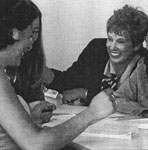

Roberta Gleiter received her BS in Chemical Engineering from Purdue University in 1960, a time when women engineers were very few and far in between. As a result, Gleiter faced discrimination in her field. She married a fellow Purdue alumnus, John Gleiter, and raised her three children from 1960 to 1980. In 1980, she re-entered the workforce and became involved in a National Science Foundation program that was geared toward supporting women who were re-entering the engineering field. After completing the program, Gleiter was offered a job with Aerospace Corp., a federally funded research and development organization in Los Angeles. She then earned her MS in Systems Management/Technical Systems from the University of Southern California. Through her employment at Aerospace Corp., Gleiter was responsible for half of a billion dollars worth of satellite software and received numerous awards. Gleiter retired as a project engineer in 2004 and went on to become the co-founder and CEO of the Global Institute for Technology and Engineering (GIFTE), an organization that strives to improve the status of women in the technology and engineering workforce. Gleiter has published several articles and given many presentations nationwide and worldwide. She is a proud advocate for engineering and received the 2008 Outstanding Chemical Engineering Award from Purdue University.
Eva L. Goble
May 28 1910 - August 7, 2017
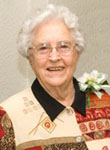

Eva Goble was born on May 28, 1910 in southern Clay County and attended school in Jasonville, Indiana where she participated in girls' basketball and was instrumental in starting her high school's first library. Goble started college at Indiana State University, but had to leave school for work when the stock market crashed in 1929. She eventually was able to return to Indiana State University and graduated from the Teaching College in 1941.
She worked for Purdue Extension services from 1941 until being named Dean of Home Economics in 1967, a position she held until her retirement in 1973. Goble was also state leader of the Indiana Extension Homemakers Association from 1947 to 1973. She received the Distinguished Alumni Award from Indiana State University in 1968. In 1972, she received one of the first Frederick L. Hovde Awards for Excellence in Educational Service to the Rural People of Indiana. Purdue's College of Consumer and Family Sciences established the Eva Goble Lecture Series in 1992, and Dean Goble, now emeritus, received an honorary doctorate from Purdue in 1999.
She worked for Purdue Extension services from 1941 until being named Dean of Home Economics in 1967, a position she held until her retirement in 1973. Goble was also state leader of the Indiana Extension Homemakers Association from 1947 to 1973. She received the Distinguished Alumni Award from Indiana State University in 1968. In 1972, she received one of the first Frederick L. Hovde Awards for Excellence in Educational Service to the Rural People of Indiana. Purdue's College of Consumer and Family Sciences established the Eva Goble Lecture Series in 1992, and Dean Goble, now emeritus, received an honorary doctorate from Purdue in 1999.
Patricia Albjerg Graham
1935 -


Born in 1935 to two Purdue educators (Marguerite Hall-Albjerg and Victor Lincoln Albjerg), Graham earned her BA with highest distinction from Purdue University in 1955. In 1964, she earned her PhD from Columbia University and then spent several years working as an educator and counselor in Virginia and New York. Having held appointments at Indiana University, Northern Michigan University, and Columbia University's Teachers College, Graham joined the faculty at Harvard University and served as the Dean of the Radcliffe Institute for Independent Study at Harvard University, the vice president for Institutional Planning for Radcliffe College, and the vice president of Radcliffe College. She left Harvard in 1977 after she was appointed president of the National Institute of Education by the President of the United States. She later returned to Harvard in 1979 and became the Charles Warren Professor of the History of American Education. In 1982, she became the Dean of the Harvard Graduate School of Education, the first woman to be appointed dean of a Harvard faculty. Graham retired from her deanship in 1991 and served as the President of the Spencer Foundation from 1991 until 2000. In 2009, Graham was elected Chair of the Board of Trustees of the Carnegie Foundation for the Advancement of Teaching.
Violet B. Haas
November 23, 1926 - January 21, 1986
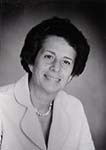

Violet Haas was born in Brooklyn, New York in 1926. She received a bachelor's degree from Brooklyn College in 1947. Haas later matriculated at the Massachusetts Institute of Technology (M.I.T.) where she received her master's degree in 1949 and her Ph.D. in 1951, both of which were in mathematics. While at M.I.T., Violet was introduced to her future husband, Felix.
After school, Haas taught at the University of Connecticut, Wayne State University, and the University of Detroit. She came to Purdue University in 1962, where she joined the faculty as an assistant professor in the College of Electrical Engineering and Computing Engineering. By 1978 she had become a full professor of Electrical Engineering and had published numerous scholarly articles in the areas of optimal control, nonlinear control, and optimal estimation. Haas also garnered numerous awards for her research and teaching excellence, including the National Science Foundation Science Faculty Fellowship, the A.A.U.W. Vassie James Hill Fellowship, the D.D. Ewing Award for Excellence in Undergraduate Teaching, and the Helen B. Schleman Gold Medallion Award. In addition, Haas served as a role model and counselor to many female students.
She and fellow professor Carolyn Perrucci co-edited a book entitled Women in Scientific and Engineering Professions in 1984. Haas continued to work at Purdue until her death in 1986. The Council on the Status of Women established the Violet B. Haas award in her honor in 1990 to recognize individuals who have helped to promote the status of women at Purdue.
There is conflicting information regarding the birth date of Violet Haas; most sources site her birth year as 1926.
After school, Haas taught at the University of Connecticut, Wayne State University, and the University of Detroit. She came to Purdue University in 1962, where she joined the faculty as an assistant professor in the College of Electrical Engineering and Computing Engineering. By 1978 she had become a full professor of Electrical Engineering and had published numerous scholarly articles in the areas of optimal control, nonlinear control, and optimal estimation. Haas also garnered numerous awards for her research and teaching excellence, including the National Science Foundation Science Faculty Fellowship, the A.A.U.W. Vassie James Hill Fellowship, the D.D. Ewing Award for Excellence in Undergraduate Teaching, and the Helen B. Schleman Gold Medallion Award. In addition, Haas served as a role model and counselor to many female students.
She and fellow professor Carolyn Perrucci co-edited a book entitled Women in Scientific and Engineering Professions in 1984. Haas continued to work at Purdue until her death in 1986. The Council on the Status of Women established the Violet B. Haas award in her honor in 1990 to recognize individuals who have helped to promote the status of women at Purdue.
There is conflicting information regarding the birth date of Violet Haas; most sources site her birth year as 1926.
Lyla Vivian Marshall Harcoff
October 6, 1883 - July 22, 1956
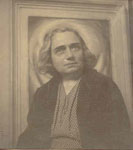

Marshall was born near Lafayette, Indiana on October 6, 1883. She grew up on her father's farm and attended Purdue at the turn of the century, graduating with a BA in 1904. After college she pursued a career in art, attending the Art Institute of Chicago, making three trips to Paris, and studying a full year at the Academie Moderne in France. Upon finishing her education, Harcoff could not find work as an art educator, despite her credentials. Instead, she began working as a painter of porcelain for the famous retailer Marshall Fields in Chicago. After earning enough money, Harcoff took a trip west on the Santa Fe Railroad in 1913. She chose to exit the train in Arizona and spent the summer with a tribe of Hopi Native Americans, sharing in their lifestyle and painting them. At the end of the summer, she returned to Chicago by train and began her life as a professional artist. One of her earliest exhibitions was in 1914 at the Purdue University Library. She married Constantine Harcoff in 1916, the same year she took a six week sketching trip through Este Park, Colorado, Yellowstone Park, and Shoshone Canyon as a guest of the Burlington Railroad. In 1927, she moved from the Midwest to Santa Barbara, California permanently and eventually opened her own studio. Her work has been exhibited in numerous galleries and shows both in the Midwest and in California.
Diana Hardy
March 12, 1958 -
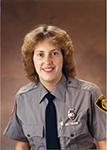

Diana Hardy is one of the first women firefighters in Indiana. Originally from Logansport (Indiana), she attended Ivy Tech Community College after high school to train as a dental assistant. During this time, she became interested in the EMT field and while earning her associate’s degree, she became a certified EMT. She applied for a position as EMT at the Wabash Township Fire Departmen; however, this department required its EMTs to have training as firefighters. She then became an active volunteer at the Wabash Township Fire Department, and became increasingly interested in fire service. In 1981, she became the first woman to join the Purdue Fire Department. Hardy remained at Purdue for 32 years, bearing witness to many changes within the department and the field, including the hiring of more women. In 2014, at her retirement ceremony, she was presented with a Sagamore of the Wasbash Award, the highest award that can bestowed by the governor of Indiana. It was presented to her by State Representative Sheila Klinker and State Senator Ron Alting. In addition to being one of Indiana’s first female firefighters, she was also the longest serving Purdue firefighter at the time of her retirement.
Ivy Frances Harner
1873 - 1958
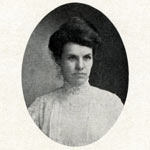

Ivy Frances Harner, professor of Household Economics, was instrumental in establishing the home economics department at Purdue in the early 1900s. After earning a B.S. and M.S. from Kansas Agricultural College, she studied domestic science in Europe from 1904-1905 and later went on to serve as head of the Domestic Science Department of the Louisiana Industrial Institute. She came to Purdue in 1905 when President Winthrop Stone realized that Purdue should offer to women ""opportunities comparable in scientific and technical value with those enjoyed by men."" The 1907 Debris yearbook describes the early home economics department as a four years' course which involves the ""economical and scientific study of such subjects as food principles. . .classification of food, chemical and microscopic composition of food, application of heat to food principles, economical and nutritive value of foods. . .food preservation and adulteration and dietetics.""
Harner's autobiography was published by Harner Selvidge in 1994. It is titled, ""A Pioneer Girl: An Autobiography.""
Harner's autobiography was published by Harner Selvidge in 1994. It is titled, ""A Pioneer Girl: An Autobiography.""
Elise Hatt
April 6, 1899 - July 19, 1988


Elise Hatt was born in 1899 in West Lafayette, Indiana. She was the daughter of Dr. William K. and Josie Bell Hatt. Dr. W.K. Hatt was a prominent professor in the Engineering School and headed the civil engineering department for many years. Ms. Hatt was a member of the Class of 1922, but there is no record of her graduating. Ms. Hatt appears to have stopped taking classes after her junior year. While a student, she was a member of Kappa Alpha Theta. Interestingly, although she didn't graduate, Ms. Hatt continued at Purdue in the President's Office and in a research capacity. Her research focused on student retention and enrollment. She married Dudley Rhodes Campbell in 1932, and the couple moved to Michigan. In Michigan, Ms. Hatt continued her research in higher education, and expanded her scope to include child development. She published many papers and also taught at the Merrill Palmer Institute and Wayne State University. She also had two children: David and Bonnie. Ms. Hatt died in 1988.
Sarah Oren Haynes
March 2, 1836 - April 21, 1907
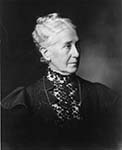

Sarah D. (Allen) Oren Haynes (1836-1907) came to Purdue in 1875 as the first female faculty member of the university. Her title, which initially was "female teacher of the university," was changed to assistant professor of mathematics until she was appointed as a professor of botany soon after being hired. Among her undertakings, Haynes presented the university with plans for a campus orchard with which to conduct experimental work, assisted in formulating the rules of student conduct, and, in 1876, became the overseer of the first women's literary society at Purdue. Sarah Oren and her teenage daughter, Cata, lived on campus in two rooms of the Boarding Hall (Ladies Hall) until 1878, when Oren resigned from Purdue in order to marry Wesley Haynes. Among her other accomplishments, Sarah Oren also held the position of becoming the first woman state librarian for Indiana in 1873. In addition to being Indiana's first woman state librarian and Purdue's first female faculty member, Oren was also the first faculty member, male or female, to receive a board of trustees citation in appreciation of her work for the university.
Helen W. Hazelton
September 8, 1894 - July 20, 1990
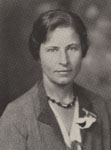

Hazelton came to Purdue as the head of the Department of Women's Physical Education when it was established in 1929. Prior to arriving at Purdue, Hazelton had received her BA from Mount Holyoke College in 1916. She then earned professional training in the Department of Hygiene at Wellesley College. Hazelton began teaching at Northwestern University for four years, followed by a five-year stint at Minnesota University. While working, Hazelton returned to school and received a Master's degree from the Teachers College at Columbia University in 1929. Once she came to Purdue, Hazelton worked to expand and improve the fledgling Department of Women's Physical Education. Starting out with two instructors, the program soon had five. In addition, Hazelton expanded the number of sports classes that were offered for credit and emphasized the importance of well-roundedness by teaching both physical education classes and supervising extracurricular sports. By the early 1930s, Purdue coeds were able to earn a state teacher's license in the field of physical education. As one student wrote, Professor Hazelton "has won the respect and admiration of all women, whether interested in physical education or not. As the director of this department she has been associated with every women of the University." In addition to her responsibilities as an educator, Hazelton was also the Chairman of the National Section on Women's Athletics of the American Physical Education Association.
Darlene Clark Hine
February 7, 1947 -


Darlene Clark Hine was born in 1947 in Morley, Mississippi, to Levester and Lottie Mae Clark. Hine was a student at Roosevelt University in Chicago during the height of the civil rights movement. Initially a biology major, she quickly shifted to history and earned her BA in 1968. Hine continued her education at Kent State University, where she earned both her MA (1970) and PhD (1975). While finishing her PhD, Hine was an asisstant professor at South Carolina State College. From there, she joined the history faculty at Purdue as an assistant professor in 1974. Hine was promoted to associate professor in 1979 and stayed at Purdue until 1985. While at Purdue, Hine was the only tenured black woman in the state of Indiana.
Hine left Purdue for Michigan State University, where she seved as the John A. Hannah Professor of History from 1985 to 2004. While there, she helped establish a doctoral program in comparative African-American history. In 2004, Hine was hired as the Board of Trustees Professor of African American Studies and Professor of History at Northwestern University. She retired in 2017.In the formative years of her career, Hine specialized in political history, before eventually turning her eye to the historic experiences of Black women. Hine stated, ""When I decided to become a historian, the last group I intended to study was black women.” In her early career, the study of Black women and other marginalized populations was still relatively rare; Hine was a pioneer in establishing the legitimacy of studying their historic lived experiences. Her research focus shifted after meeting Shirley Herd in 1980. Herd, a teacher and president of the Indianapolis Chapter of the National Council of Negro Women, urged Cline to write a history of Black women in Indiana.
Hine has published five books, and co-authored one. Her contributions have established Black Women's History as a subject area study within History. As a result of her groundbreaking scholarship and contributions to the field, Hine has received many awards, including a National Humanities Medal (2013), a John Hope Lifetime Achievement Award (2017), and a Diverse Issues in Higher Education Award (2018). She has also received honorary degress from University of Massachusetts Amherst (1998), Purdue University (2002), Roosevelt University (2014), and Michigan State University (2015). Hine received fellowships from the American Council of Learned Societies, the Center for Advanced Study in the Behavioral Sciences at Stanford University, the National Humanities Center in North Carolina, and from the Rockefeller Foundation. She was also a fellow at the Radcliffe Institute for Advanced Study and the W.E.B. DuBois Institute, both at Harvard University.
Hine left Purdue for Michigan State University, where she seved as the John A. Hannah Professor of History from 1985 to 2004. While there, she helped establish a doctoral program in comparative African-American history. In 2004, Hine was hired as the Board of Trustees Professor of African American Studies and Professor of History at Northwestern University. She retired in 2017.In the formative years of her career, Hine specialized in political history, before eventually turning her eye to the historic experiences of Black women. Hine stated, ""When I decided to become a historian, the last group I intended to study was black women.” In her early career, the study of Black women and other marginalized populations was still relatively rare; Hine was a pioneer in establishing the legitimacy of studying their historic lived experiences. Her research focus shifted after meeting Shirley Herd in 1980. Herd, a teacher and president of the Indianapolis Chapter of the National Council of Negro Women, urged Cline to write a history of Black women in Indiana.
Hine has published five books, and co-authored one. Her contributions have established Black Women's History as a subject area study within History. As a result of her groundbreaking scholarship and contributions to the field, Hine has received many awards, including a National Humanities Medal (2013), a John Hope Lifetime Achievement Award (2017), and a Diverse Issues in Higher Education Award (2018). She has also received honorary degress from University of Massachusetts Amherst (1998), Purdue University (2002), Roosevelt University (2014), and Michigan State University (2015). Hine received fellowships from the American Council of Learned Societies, the Center for Advanced Study in the Behavioral Sciences at Stanford University, the National Humanities Center in North Carolina, and from the Rockefeller Foundation. She was also a fellow at the Radcliffe Institute for Advanced Study and the W.E.B. DuBois Institute, both at Harvard University.
Jean Li-Chun Ma Howe
May 18, 1929 - April 17, 2009
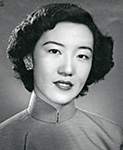

Jean Li-Chun Ma Howe was an alumna and faculty member of Purdue University. Her career also took her to the University of Maryland, the University of São Paulo in Brazil, and the U.S. Department of Agriculture.
Jean Ma Li-Chun was born on May 18, 1929 in China to Ma Tzu-Lian and Grace Huang. She attended McTyeire School and graduated in 1947 before attending Soochow University where she studied pre-medicine. In 1949, one year after starting at Soochow, the Communists took over China and Ma Li-Chun moved to Hong Kong where she worked to provide for her mother and younger brother.
Ma Li-Chun immigrated to the United States after winning a scholarship to St. Francis College in Fort Wayne, where she earned her Bachelor of Science in 1953. She earned a Master of Science in 1957 and a Ph.D. in 1965 from Purdue University.
Jean Ma Li-Chun and Robert Hsi-Lin Howe met in China but married in Lafayette, Indiana in 1953. They had three children together.
Jean Howe's career took her both across the country and to South America. She was a Purdue faculty member, taught at the University of Maryland, conducted research at the University of São Paulo in Brazil, and was the National Program leader for Human Nutrition at the U.S. Department of Agriculture. While at Purdue, she worked with the NASA space program to find which plants could be grown to provide proper nourishment to astronauts during long-term space travel.
While in Lafayette, Li-Chun Ma Howe sang in the choir at Faith Presbyterian Church and supported the Purdue Chinese Student Association by helping to develop programs to promote Chinese culture.
Jean Li-Chun Ma Howe died on April 17, 2009 in Clovis California.
Jean Ma Li-Chun was born on May 18, 1929 in China to Ma Tzu-Lian and Grace Huang. She attended McTyeire School and graduated in 1947 before attending Soochow University where she studied pre-medicine. In 1949, one year after starting at Soochow, the Communists took over China and Ma Li-Chun moved to Hong Kong where she worked to provide for her mother and younger brother.
Ma Li-Chun immigrated to the United States after winning a scholarship to St. Francis College in Fort Wayne, where she earned her Bachelor of Science in 1953. She earned a Master of Science in 1957 and a Ph.D. in 1965 from Purdue University.
Jean Ma Li-Chun and Robert Hsi-Lin Howe met in China but married in Lafayette, Indiana in 1953. They had three children together.
Jean Howe's career took her both across the country and to South America. She was a Purdue faculty member, taught at the University of Maryland, conducted research at the University of São Paulo in Brazil, and was the National Program leader for Human Nutrition at the U.S. Department of Agriculture. While at Purdue, she worked with the NASA space program to find which plants could be grown to provide proper nourishment to astronauts during long-term space travel.
While in Lafayette, Li-Chun Ma Howe sang in the choir at Faith Presbyterian Church and supported the Purdue Chinese Student Association by helping to develop programs to promote Chinese culture.
Jean Li-Chun Ma Howe died on April 17, 2009 in Clovis California.
Leah H. Jamieson
August 27, 1949 -
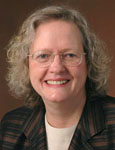

Jamieson attended MIT and received her BS in Mathematics in 1972. She later studied at Princeton University and received her MS and PhD in Electrical Engineering and Computer Science. She joined the School of Electrical and Computer Engineering at Purdue University in 1976 and has since become the most senior female faculty member in the College of Engineering. Jamieson has been the recipient of several awards including the Ransburg Distinguished Professor of Electrical and Computer Engineering, the John A. Edwardson Dean of the College of Engineering, and the National Science Foundation Director's Award for Distinguished Teaching Scholars. Jamieson also co-founded and directed the Engineering Projects in Community Service (EPICS) program, which allows teams of undergraduate students to earn academic credit while working on multiyear, multidisciplinary projects involving engineering and technology. She has authored more than 160 scholarly articles and conference papers and has co-edited books, including The Characteristics of Parallel Algorithms. For all of her achievements, Jamieson was named one of 15 women in the inaugural class of Women Pioneers of Purdue University by the Purdue University Council on the Status of Women in 2006.
Frieda Parker Jefferson
September 9, 1928 - July 14, 2020
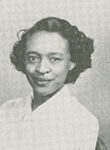

Frieda Alice Parker Jefferson was born in Indianapolis in 1928. Her parents, Frederick and Frieda (Campbell), were adovcates for the benefits of a college education and strongly encouraged Frieda and her siblings to continue their educations beyond high school. Jefferson graduated second in her class from Crispus Attucks High School (1946) in Indianapolis, where her father taught math, and which was still segregated at the time.
After graduating high school, Jefferson and her younger sister Winifred enrolled at Purdue University in the fall of 1946. However, at this time, all African American students lived in the segregated areas of Lafayette because they were not allowed to live on campus or anywhere within West Lafayette city limits. Frieda and her sister, together with their parents, demanded that the University allow them to live on campus as was the policy for most incoming women students. Although their request was intially denied, the family continued to appeal the decision and enlisted the support of the Black community around the state. Eventually the decision was overturned by Governor Ralph Gates, who directed the university to integrate its student housing. After the decision was reversed, Freida and Winifred became the first Black students to live on campus (or in town) at Purdue University.
Jefferson earned her B.S. in Home Economics from Purdue University in 1950. After earning her degree, Jefferson began a lifelong career as an educator, the majority of which was spent in Milwaukee, Wisconsin. Jefferson's career spanned over 50 years in Milwaukee Public Schools where she was a much loved and respected teacher of home economics. In Milwaukee, Jefferson was a founding member of the teacher's union, the founder of the school to work program, and helped to create child development and day care programs there. Jefferson remained committed to service throughout her life, and was a member of the NAACP, Delta Sigma Theta, Purdue Black Alumni Association, and the Milwaukee Links. She was an active advocate of civil and equal rights throughout her lifetime.
Frieda married Ralph Jefferson Jr in 1952, and had two sons with him: Ralph III and Brian. In addition to their children, the Jeffersons were known for caring for many other children and family members. Frieda Parker Jefferson passed away July 14, 2020.
After graduating high school, Jefferson and her younger sister Winifred enrolled at Purdue University in the fall of 1946. However, at this time, all African American students lived in the segregated areas of Lafayette because they were not allowed to live on campus or anywhere within West Lafayette city limits. Frieda and her sister, together with their parents, demanded that the University allow them to live on campus as was the policy for most incoming women students. Although their request was intially denied, the family continued to appeal the decision and enlisted the support of the Black community around the state. Eventually the decision was overturned by Governor Ralph Gates, who directed the university to integrate its student housing. After the decision was reversed, Freida and Winifred became the first Black students to live on campus (or in town) at Purdue University.
Jefferson earned her B.S. in Home Economics from Purdue University in 1950. After earning her degree, Jefferson began a lifelong career as an educator, the majority of which was spent in Milwaukee, Wisconsin. Jefferson's career spanned over 50 years in Milwaukee Public Schools where she was a much loved and respected teacher of home economics. In Milwaukee, Jefferson was a founding member of the teacher's union, the founder of the school to work program, and helped to create child development and day care programs there. Jefferson remained committed to service throughout her life, and was a member of the NAACP, Delta Sigma Theta, Purdue Black Alumni Association, and the Milwaukee Links. She was an active advocate of civil and equal rights throughout her lifetime.
Frieda married Ralph Jefferson Jr in 1952, and had two sons with him: Ralph III and Brian. In addition to their children, the Jeffersons were known for caring for many other children and family members. Frieda Parker Jefferson passed away July 14, 2020.
Kathryn Polk Johnsen
March 7, 1930-Sept. 7, 2006
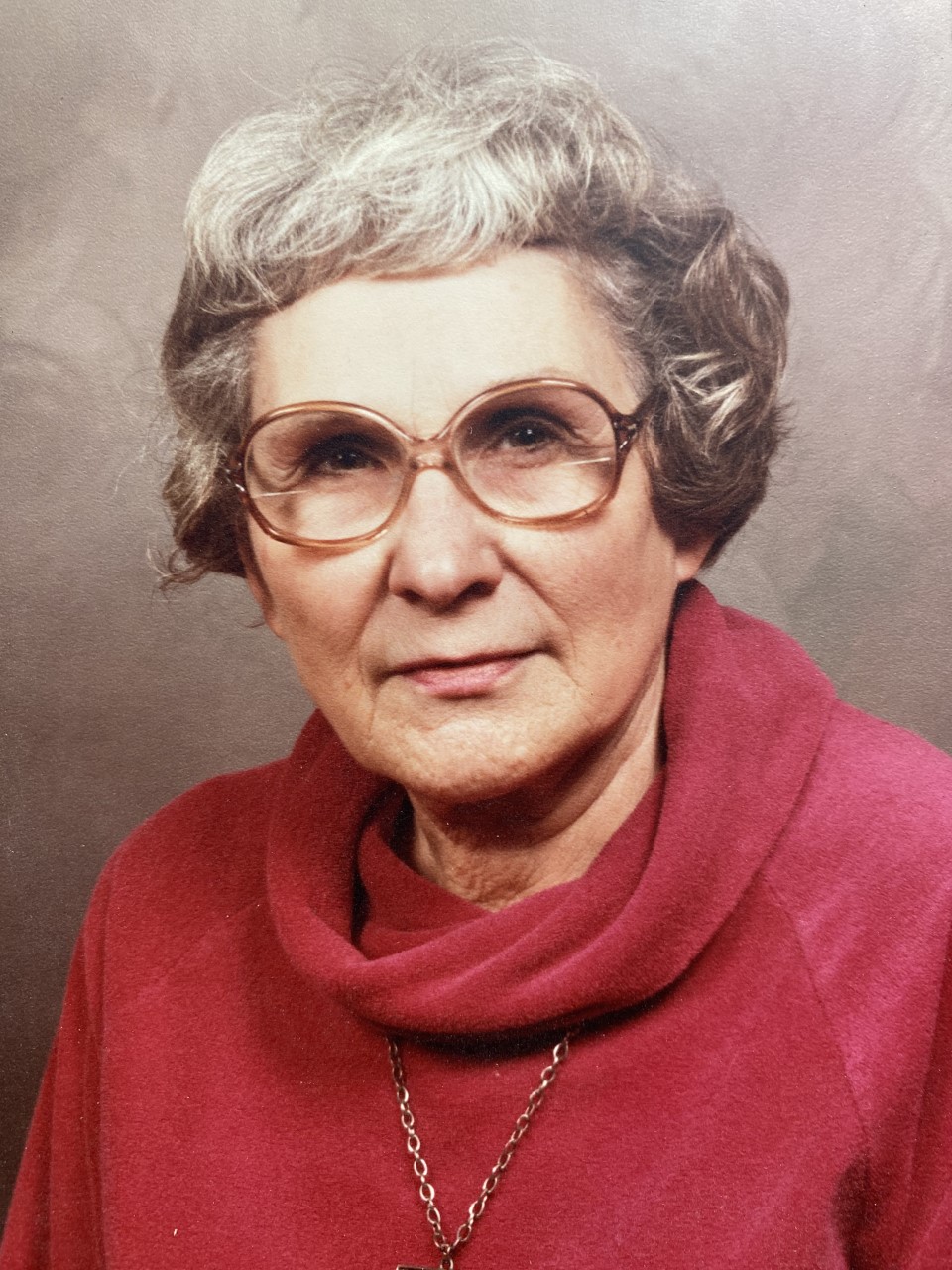

Kathryn Polk Johnsen was born on March 7, 1930 in Houston, Texas. She attended Oklahoma University before coming to Purdue University where she earned her master's (1962) and doctorate (1966) in sociology. Johnsen started as an instructor in 1963 and was later promoted to assistant professor (1967) and associate professor (1971) in the Department of Sociology where she taught courses and conducted research on marriage and family relationships, gender identity, sex role socialization, and transgender studies, among others. In 1981, Johnsen cross-taught courses in the newly formed Women's Studies department. During the summers, Johnsen traveled to Johns Hopkins University where she provided long-term counseling for transgender individuals undergoing gender reassignment surgery. In addition to her coursework and counseling work, Johnsen co-wrote the third edition of her colleague, Harold Christenson's, book, "Marriage and Family", a textbook for undergraduate courses on marriage and the family and the social and psychological factors influencing their interpersonal relationships. Johnsen earned emeritus status at Purdue in 1985 and continued on with the sociology department until 1997. Johnsen died on September 7, 2006.
Helen Johnson
November 15, 1914 - August 30, 2001


Helen Johnson came to Purdue in 1962 to spearhead Purdue's first nursing program. In her first year at Purdue, she was able to secure outside funding, hire faculty, arrange sites for clinicals, develop a curriculum, and secure state approval for the new program. Over the next three years, she initiated nursing programs on all of Purdue's regional campuses. By 1969, the programs had become accredited by the National League of Nursing and each had graduating classes. Johnson spent the next 18 years at Purdue continually improving upon the program which she had started. One of her most significant achievements involved obtaining a $1.3 million grant from the United States Public Health Service which funded construction of a new nursing building on the West Lafayette campus. This achievement eventually led to the department's formation into its own school with a separate operating budget. Her strong desire for the nursing school to develop a master's degree program propelled her to earn a doctorate in higher education in 1975. In 1979, Johnson was named head of the School of Nursing. She retired in 1980.
Blanche Brown Johnson
circa 1859 - ?


Blanche Wallace Brown was born on August 20, ca. 1859, daughter of L.M. and Mary Brown of Lafayette, Indiana. In 1883-1884, Blanche enrolled in special courses at Purdue University, taking wood carving, decorative design, and historical ornament. She also enrolled in summer art classes in 1878-1879.
She married Oscar D. Johnson in 1886, and they had two sons, Harold Brown Johnson (b. 1890) and Maxwell Oscar Johnson. Johnson appears to have gone to college in 1876 to Auburn, New York. She was interested in art, cooking, interior decorating, and served at least one year as President of the Art Club of Lafayette in 1914-1915.
Blanche’s son Maxwell Oscar Johnson graduated from the School of Chemical Engineering at Purdue University with a B.S. in 1913, and later returned to Purdue to attain a degree in Chemical Engineering in 1928. Maxwell became an internationally known scientist for his research on the pineapple. Blanche’s husband, Oscar D. Johnson, appears to have died in 1921.
Blanche Brown Johnson and her family remained supportive of the university and offered several items that had belonged to John Purdue to the university in 1925. She acquired these items from her father who was a colleague and friend of Purdue, and from Purdue himself.
She married Oscar D. Johnson in 1886, and they had two sons, Harold Brown Johnson (b. 1890) and Maxwell Oscar Johnson. Johnson appears to have gone to college in 1876 to Auburn, New York. She was interested in art, cooking, interior decorating, and served at least one year as President of the Art Club of Lafayette in 1914-1915.
Blanche’s son Maxwell Oscar Johnson graduated from the School of Chemical Engineering at Purdue University with a B.S. in 1913, and later returned to Purdue to attain a degree in Chemical Engineering in 1928. Maxwell became an internationally known scientist for his research on the pineapple. Blanche’s husband, Oscar D. Johnson, appears to have died in 1921.
Blanche Brown Johnson and her family remained supportive of the university and offered several items that had belonged to John Purdue to the university in 1925. She acquired these items from her father who was a colleague and friend of Purdue, and from Purdue himself.
Vivian Annabelle Johnson
July 1, 1912 - June 30, 1985
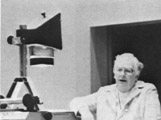

Vivian Annabelle Johnson was born in Portland, Oregon to Albert and Ada Johnson in 1912. She developed an interest in Math and Chemistry in High School, and earned her B.A. in Physics from Reed College in 1932. At Reed, she studied with Professor Knowlton, who helped her secure a teaching assistantship at Purdue under Dr. Lark-Horovitz. Johnson's Master's research was completed under the supervision of Professor Akeley and was completed in 1934. For her Ph.D., she worked with Dr. Norheim and completed her dissertation research, the Effect of Valence Electrons on the Electron Cloud Distribution, in 1937. Her early research contributed to the newly developing firls of solid state physics.
After completing her doctorate, Johnson remained on the faculty of the physics department at Purdue, where she continued to specialize in theoretical solid state physics. She was named the Assistant Department Head in 1973. Over the course of her career, Johnson contributed to and published research on the transport propoerties of semi-conductors. She also published a biography of her mentor Karl Lark-Horovitz in 1969 (Karl Lark-Horovitz, Pioneer in Solid State Physics). In addition to her contributions at Purdue, Johnson was a Visiting Lecturerof the American Association of Physics Teacher within the NSF program to cultivate interest in physics.
Johnson was awarded a Standard Oil Foundation Teaching Award in 1973, and a Helen B. Schleman Gold Medallion Award in 1979. She was a member of several honoroaries and service organizations: Sigma Xi, Sigma Pi Sigma, Indiana Academy of Sciences, Phi Beta Kappa, and the American Association of University Professors.
After completing her doctorate, Johnson remained on the faculty of the physics department at Purdue, where she continued to specialize in theoretical solid state physics. She was named the Assistant Department Head in 1973. Over the course of her career, Johnson contributed to and published research on the transport propoerties of semi-conductors. She also published a biography of her mentor Karl Lark-Horovitz in 1969 (Karl Lark-Horovitz, Pioneer in Solid State Physics). In addition to her contributions at Purdue, Johnson was a Visiting Lecturerof the American Association of Physics Teacher within the NSF program to cultivate interest in physics.
Johnson was awarded a Standard Oil Foundation Teaching Award in 1973, and a Helen B. Schleman Gold Medallion Award in 1979. She was a member of several honoroaries and service organizations: Sigma Xi, Sigma Pi Sigma, Indiana Academy of Sciences, Phi Beta Kappa, and the American Association of University Professors.
Linda Katehi
January 30, 1954 -


Linda Katehi was born in 1954 in Greece. She earned her Bachelor's in Electrical and Mechanical Engineering from the National Technical University (Athens, Greece) in 1977. She earned her Master's (1981) and PhD (1984) in Electrical Engineering from UCLA.
After completing her PhD, Katehi taught at the University of Michigan from 1984-2001 in the ENgineering and Computer Science Departments. While at Michigan, she also served as the Associate Dean of Engineering for Graduate Programs and the Associate Dean for Acacdemic Affairs. Katehi joined the engineering faculty at Purdue in 2001, as the John Edwardson dean of Engineering and Professor of Electrical and Computer Engineering. Katehi was the first female engineering dean at Purdue University. While at Purdue, Katehi was responsible for developing the strategic plan that has reaffirmed Purdue as one of the top engineering universities in the United States. This plan included the development of signature focus areas, expansion of faculty, and the expansion of building and lab space for insturctional and research purposes.
In 2006, Katehi left Purdue for the University of Illinois, where she served as the Provost at and Professor of Electrical and Computer Engineering until 2009. In 2009, Katehi returned to California, where she joined the faculty at University of California Davis as Chancellor. She was named Chancellor Emerita and Distinguished Professor of Electrical and Computer Engineering there in 2016. Finally, in 2019, she joined the faculty of the Electrical and Computer Engineering Department at Texas A&M University as a Distinguished TEES Chair Professor.
Katehi's research focuses on high-frequency electronic circuits for radar and wireless communications systems, with an emphasis on dveloping high performance circuits at low cost. Her research has resulted in 19 U.S. patents, 10 book chapters, and hundreds of publications and presentations. For her innovative work as a researcher and educator, Katehi has been awarded many honors, including an honorary degree from the American Academy of Greece (2014), the The National Academy of Engineering Ramo Simon Founder's Award (2015), and the Rudy E. Henning Distinguished Mentoring Award, IEEE (2011).
After completing her PhD, Katehi taught at the University of Michigan from 1984-2001 in the ENgineering and Computer Science Departments. While at Michigan, she also served as the Associate Dean of Engineering for Graduate Programs and the Associate Dean for Acacdemic Affairs. Katehi joined the engineering faculty at Purdue in 2001, as the John Edwardson dean of Engineering and Professor of Electrical and Computer Engineering. Katehi was the first female engineering dean at Purdue University. While at Purdue, Katehi was responsible for developing the strategic plan that has reaffirmed Purdue as one of the top engineering universities in the United States. This plan included the development of signature focus areas, expansion of faculty, and the expansion of building and lab space for insturctional and research purposes.
In 2006, Katehi left Purdue for the University of Illinois, where she served as the Provost at and Professor of Electrical and Computer Engineering until 2009. In 2009, Katehi returned to California, where she joined the faculty at University of California Davis as Chancellor. She was named Chancellor Emerita and Distinguished Professor of Electrical and Computer Engineering there in 2016. Finally, in 2019, she joined the faculty of the Electrical and Computer Engineering Department at Texas A&M University as a Distinguished TEES Chair Professor.
Katehi's research focuses on high-frequency electronic circuits for radar and wireless communications systems, with an emphasis on dveloping high performance circuits at low cost. Her research has resulted in 19 U.S. patents, 10 book chapters, and hundreds of publications and presentations. For her innovative work as a researcher and educator, Katehi has been awarded many honors, including an honorary degree from the American Academy of Greece (2014), the The National Academy of Engineering Ramo Simon Founder's Award (2015), and the Rudy E. Henning Distinguished Mentoring Award, IEEE (2011).
Wilma Jean Eviston Kay
November 12, 1917 - August 29, 2011
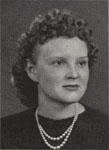

Wilma Jean Eviston was born on a farm in Huntington County, Indiana. She attended Purdue in the 1930s and lived in Duhme Hall at the same time that both Amelia Earhart and Lillian Moller Gilbreth were in residence as counselors and faculty members. Influenced by one of her high school teachers, Wilma Jean chose to major in institution management. Upon graduating in 1939, she was hired by Purdue Memorial Union as the assistant food supervisor. During this time she also met her future husband, a graduate student in civil engineering, and they were married in November 1941. After World War II ended, Wilma Jean and her family moved back to Purdue and eventually built a house on Sugar Hill. After her children were old enough to begin school in 1954, Wilma Jean began working for the Purdue residence halls. She continued managing the residence halls’ dining courts for twenty-six years.
Bertha M. Keller
1901 - ?
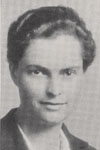

Bertha Keller was hired at Purdue as an instructor in the Department of Physical Education for Women in 1929. She worked under Helen W. Hazelton and was in charge of summer program sessions. In addition, she served as the faculty advisor to the Women's Athletic Association and the Purdue Archers Club and supervised health examinations and a program to promote individual health. In 1932, Keller took a leave of absence to study at the Teachers College at Columbia University in order to earn her Master of Arts degree. By 1934 she had published a work entitled Posture for Women. She resigned from Purdue in 1935.
Mary Catherine Kennedy
November 30, 1889 - January 23, 1978


Mary Catherine Kennedy was born in Lafayette, Indiana in 1889 to Michael and Mary Kennedy. In her adult life, she was a fierce advocate for women's rights, in the tradition of her mother and grandmother. Kennedy's grandmother ran a hotel in St. Louis, and her mother was the first woman voted to the Lafayette City Council in 1929.
Kennedy graduated from Purdue in 1911 with a BS in Science. She graduated after three years of studying and worked in the Registrar's office during all three years. She was also a member of the Purdue Girls' Club and served as class secretary her first year. In the student yearbook, classmates wrote of her, ""Contrary Mary got her start by instigating an unsettled argument on Woman's Suffrage and she is willing to expound her theories at any time.""
Kennedy also completed graduate work at the University of Chicago, Indiana University, and the Indiana State Teachers College. She taught English in the Lafayette Public School System for more than 45 years, with much of that time spent at Jefferson High School.
Kennedy worked closely with Dr. Alice Paul in her activism and advocacy for the passage of the Equal Rights Ammendment. Kennedy began her fight for the ERA as early as 1941. In 1950, Dr. Paul appointed Kennedy co-chairwoman of the National Women's Party committee that worked on bipartisan lobbying for the ammendment. Kennedy stated, ""It isn't just a piece of legislation. It is part of the development of civilization. Women have been denied a part all these years.""
Kennedy graduated from Purdue in 1911 with a BS in Science. She graduated after three years of studying and worked in the Registrar's office during all three years. She was also a member of the Purdue Girls' Club and served as class secretary her first year. In the student yearbook, classmates wrote of her, ""Contrary Mary got her start by instigating an unsettled argument on Woman's Suffrage and she is willing to expound her theories at any time.""
Kennedy also completed graduate work at the University of Chicago, Indiana University, and the Indiana State Teachers College. She taught English in the Lafayette Public School System for more than 45 years, with much of that time spent at Jefferson High School.
Kennedy worked closely with Dr. Alice Paul in her activism and advocacy for the passage of the Equal Rights Ammendment. Kennedy began her fight for the ERA as early as 1941. In 1950, Dr. Paul appointed Kennedy co-chairwoman of the National Women's Party committee that worked on bipartisan lobbying for the ammendment. Kennedy stated, ""It isn't just a piece of legislation. It is part of the development of civilization. Women have been denied a part all these years.""
Ann E Kerker
May 19, 1912 - June 15, 1997
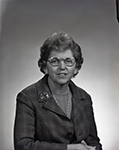

Ann Elizabeth Kerker was born May 19, 1912 and was the first veterinary medicine librarian at Purdue University. Before becoming a librarian, Kerker worked as a medical technologist for twenty-two years which brought her to work overseas in places such as South America, Saudi Arabia, and Aruba. She returned to West Lafayette and pursued a career in librarianship. While working in the Life Sciences Library at Purdue, she earned her master’s degree in library science from the University of Illinois. In 1959, Kerker started as the first veterinarian librarian at Purdue University. At that time, there was no building to house the library and she worked out of the Life Science library until a new building was built one year later. Shortly before her retirement, Kerker established the Information Service for Veterinarians in Indiana. During her career, Kerker served as the president and executive director of the Medical Library Association. She retired from Purdue in 1977 and passed away on June 15, 1997.
Mary Margaret Kern
November 12, 1906 - September 28, 1991
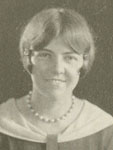

Mary Margaret Kern was born in Lafayette, Indiana in 1906. Kern attended Purdue and was extremely active as a student. Before graduating from Purdue in 1927 with a BS, she participated in several clubs, including Mortar Board, Kappa Alpha Theta, the Eurodelphian Literary Society, the Exponent, the Girls' Glee Club, the staff of the Debris student yearbook, the Purdue Girls' Club, the Harlequin Club, and was listed as a Distinguished Student. After graduation, Kern remained involved with the Purdue community as an editor for the Purdue Alumnus magazine. Kern continued her education with postgraduate work at Northwestern University.
Kern married Herbert Gerrard and they lived in the Chicago area before moving to Noblesville, Indiana in 1959. After returning to Indiana, Mary became a freelance writer and editor for Kappa Alpha Theta magazine before retiring after 15 years in 1973. She was also a member of the Women’s Press Club of Indiana, Women in Communications, Daughters of the American Revolution, Kappa Alpha Theta sorority, Mortar Board and the First Noblesville Writers Group. Mary and Herbert had three children together: Flora, Sarah, and Bruce.
Kern passed away in 1991.
Kern married Herbert Gerrard and they lived in the Chicago area before moving to Noblesville, Indiana in 1959. After returning to Indiana, Mary became a freelance writer and editor for Kappa Alpha Theta magazine before retiring after 15 years in 1973. She was also a member of the Women’s Press Club of Indiana, Women in Communications, Daughters of the American Revolution, Kappa Alpha Theta sorority, Mortar Board and the First Noblesville Writers Group. Mary and Herbert had three children together: Flora, Sarah, and Bruce.
Kern passed away in 1991.
Callie Ann Khouri
November 27, 1957 -


Callie Ann Khouri is an award-winning screenplay writer, film producer, and author. Her best known work includes the screenplay for the 1991 film Thelma and Louise and the 2002 screen adaptation of Divine Secrets of the Ya-Ya Sisterhood. On the small screen, she is best known for the series Nashville. Khouri, a native of Kentucky, initially studied landscape architecture at Purdue in the late 1970s, and then developed an interest in drama. After continuing her studies at the Strasbourg Institute, she gained experience as an actor, theater apprentice, and waiter in Nashville, Tennessee. She has also been involved in the production of music videos for performers Robert Cray, Alice Cooper, and the Commodores, an experience which she has cited as seminal in her writing career.
Khouri has also been an outspoken advocate for women in the film industry, lamenting the lack of women directors and parts portraying strong female characters that are in charge of their own destiny. She has been honored by the National Women's History Museum for her screenplay work. More recently, Khouri has also started teaching aspiring directors in master classes at film festivals and Columbia University.
Khouri has also been an outspoken advocate for women in the film industry, lamenting the lack of women directors and parts portraying strong female characters that are in charge of their own destiny. She has been honored by the National Women's History Museum for her screenplay work. More recently, Khouri has also started teaching aspiring directors in master classes at film festivals and Columbia University.
Pamela Tyson King
circa 1946 -


Pamela (Tyson) King was a Purdue student and an activist during the 1960s. She graduated in 1969 with a Bachelor of Science in speech therapy. King participated in the Mortar Board, was one of the first of two black Purdue cheerleaders, and also engaged in protests against racial discrimination. During the 1967-1968 football and basketball games, King raised the Black Salute during the playing of the national anthem. In December 1967, she and the other cheerleaders were barred from entering the floor at a basketball game against Ohio University. King in turn quit the cheerleading squad and filed a complaint through the Dean of Men's office. In addition to her experiences at Purdue, King was also involved in activism throughout the community. She had arranged to speak at Sunnyside Junior High School on "Black Power and Black History" in 1969, but filed a formal complaint against the school's principal after her engagement was canceled.
Avanelle Kirksey
March 23, 1926 - May 9, 2016
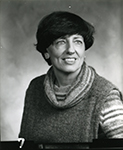

Dr. Avanelle (Nell) Kirksey (1926-2016) was born in Mulberry, Arkansas to Odell and Blanche Kirksey. She had two brothers, Ozell (who was killed during WWII) and Joe, a prominent figure in the soybean industry. Her father, Dr. Odell Kirksey, was a noted obstetrician and opened Arkansas' first maternity hospital (the Kirksey Maternity Hospital) where he is estimated to have delivered 4700 babies over the years. Although she was discouraged from practicing medicine, it is likely that Avanelle's later research interests took some inspiration from her father's work.
Kirksey received her B.S. in 1947 from the University of Arkansas, with a major in Home Economics and minors in chemistry and biology. Her M.S. in home economics and dietetics was attained in 1950 from the University of Tennessee. Finally, she received her PhD from Pennsylvania State University in 1961 in the field of Nutrition and biochemistry. Her work at Penn State was supervised by Dr. Ruth Pike whose research focused on Vitamin B6, which was another contributing factor to the trajectory of Kirksey's research. During the course of her postsecondary education, Kirksey taught at a handful of institutions before accepting her position at Purdue University upon the completion of her PhD work. Kirksey's work in the area of maternal and infant nutrition has left a lasting impact, both directly and through the ongoing legacy of the many graduate students she mentored. Much of her work focused on the role of Vitamin B6 in maternal health and infant development, as well as the impact of mild to moderate malnutrition. Kirksey is perhaps best known for her involvement in and oversight of the multi-institutional Nutrition Collaborative Research Support Program which examined malnutrition in Egypt, Kenya, and Mexico. Kirksey was also involved in a large scale project designed to develop nutrition education programs in Indonesian colleges. Her work is credited with providing a better overall understanding of the role of micronutrients in maternal and infant health and nutrition. Kirksey was the recipient of numerous awards and honors over the course of her career. She was awarded the title of Meredith Distinguished Professor of Foods and Nutrition during her tenure at Purdue (1961-1994). She was the second woman at Purdue to be awarded a distinguished professorship. Purdue also honored Kirksey's research by awarding her an Honorary Doctorate. Additionally, Kirksey was a distinguished Alumna at both the University of Arkansas and Penn State. Other awards and honors of note were the Borden Award (1980), the Lederle Award (1994), and her designation as a Fellow of the American Institute of Nutrition (1994). Upon her retirement in 1994, the annual Avanelle Kirksey Lecture Series was established to honor Kirksey's lasting contributions.
Kirksey received her B.S. in 1947 from the University of Arkansas, with a major in Home Economics and minors in chemistry and biology. Her M.S. in home economics and dietetics was attained in 1950 from the University of Tennessee. Finally, she received her PhD from Pennsylvania State University in 1961 in the field of Nutrition and biochemistry. Her work at Penn State was supervised by Dr. Ruth Pike whose research focused on Vitamin B6, which was another contributing factor to the trajectory of Kirksey's research. During the course of her postsecondary education, Kirksey taught at a handful of institutions before accepting her position at Purdue University upon the completion of her PhD work. Kirksey's work in the area of maternal and infant nutrition has left a lasting impact, both directly and through the ongoing legacy of the many graduate students she mentored. Much of her work focused on the role of Vitamin B6 in maternal health and infant development, as well as the impact of mild to moderate malnutrition. Kirksey is perhaps best known for her involvement in and oversight of the multi-institutional Nutrition Collaborative Research Support Program which examined malnutrition in Egypt, Kenya, and Mexico. Kirksey was also involved in a large scale project designed to develop nutrition education programs in Indonesian colleges. Her work is credited with providing a better overall understanding of the role of micronutrients in maternal and infant health and nutrition. Kirksey was the recipient of numerous awards and honors over the course of her career. She was awarded the title of Meredith Distinguished Professor of Foods and Nutrition during her tenure at Purdue (1961-1994). She was the second woman at Purdue to be awarded a distinguished professorship. Purdue also honored Kirksey's research by awarding her an Honorary Doctorate. Additionally, Kirksey was a distinguished Alumna at both the University of Arkansas and Penn State. Other awards and honors of note were the Borden Award (1980), the Lederle Award (1994), and her designation as a Fellow of the American Institute of Nutrition (1994). Upon her retirement in 1994, the annual Avanelle Kirksey Lecture Series was established to honor Kirksey's lasting contributions.
Rozanne Ruth Knudson


Knudson was born on June 1, 1932 in Washington. Her parents, James and Ruth Ellsworth Knudson, had six children. Knudson spent some time in high school in Alexandria, Virginia. In 1954, she graduated with a BA from Brigham Young University and later received an MA from the University of Georgia in 1955. She taught high school English in Miami and Key West, Florida before earning her PhD at Stanford University in 1967. Afterwards, Knudson taught English at colleges such as Purdue University, Adelphi University, and York College of the City University of New York. After putting together an anthology of sports poetry, an editor urged her to write a book about sports, because "There aren't any women writing about women athletes." As an athlete herself, Knudson played baseball, tennis, football, and jogged well into her 60s. The characters in the books she wrote were women who participated in sports that were traditionally dominated by men. Knudson especially gained recognition for her "Zan" series, including titles such as Zanballer (1972), Zanbanger (1977), and Zanboomer (1978). In addition, Knudson also wrote biographies of famous sports stars and collaborated with nationally prominent poet, May Swenson, on a collection of sports poems.
Christine M. Ladisch
June 10, 1951 -
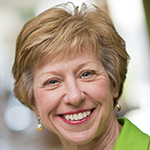

Christine M. Ladisch was appointed Dean of Purdue University's College of Health and Human Sciences (HHS) on January 7, 2013, and served as the Inaugural Dean of the college since July 1, 2010. Prior to her appointments as Dean and Inaugural Dean, she served as Purdue's Vice Provost for Academic Affairs since July 2005, and as Associate Provost since 2001, where she provided leadership in undergraduate education and dealt with matters of personnel, budget, academic planning, program evaluation, promotion and tenure, and general academic policy development and implementation. Her direct reports included the Center for Instructional Excellence, the Oral English Proficiency Program, the University Honors Program, the Undergraduate Studies Program and the Entrepreneurship Certificate Program. From 2008-2010, she led with co-chair Mark Pagano, the West Lafayette campus' preparation and self-study for institutional reaccreditation review. Purdue received the full 10-year re-accreditation with no follow-up requirements. Ladisch and Pagano both received Purdue's One Brick Higher Award for their leadership role in the accreditation process. Dr. Ladisch has been a member of the faculty in the Department of Consumer Science since 1979. She received her Ph.D. and M.S. from Purdue University and the baccalaureate degree from Indiana State University. Her research focuses on cellulose chemistry and biotechnology applications for textile products. She has received departmental, school and university-level awards for teaching excellence, is a member of the Teaching Academy and listed in Purdue's Book of Great Teachers. In 2003, she received the Distinguished Alumni Award from Purdue's former College of Consumer and Family Sciences.
Kristena A. LaMar
circa 1948 -


Kristena LaMar grew up in Lafayette, Indiana, and received her BA with Honors from Purdue in 1970. During her collegiate years, she was president of Alpha Lambda Delta, director of the Student Volunteer Corps, a member of the Gold Peppers and Mortar Board honor societies, and chosen as "Miss Purdue 1968." She received her J.D. from the University of Michigan Law School in 1973. After law school, she became a legal aid attorney in Portland, Oregon with VISTA (Volunteers in Service to America), a national service program fighting poverty. Following her VISTA service, she was an attorney in private practice, specializing in family, juvenile, probate, and tax law until 1981, when she served as co-counsel to the Oregon State Judiciary Committee. After the session ended, she became the juvenile court's referee, serving first part-time and then full time, until she successfully ran for a Circuit Court Judge seat in 1984. During her judicial career, she developed the court's settlement conference program, was chair of the Arbitration and Mediation Commissions, and served fifteen years as a faculty member of the National Judicial College. She published several books and articles, taught in many states and foreign countries, and received awards from the Oregon State Bar Alternative Dispute Resolution System, the Classroom Law Project and the Willamette University Center for Dispute Resolution. She retired in October, 2009, after twenty-five years on the bench, the longest serving woman in the Oregon court system.
Bertha Latta
1884 - 1960
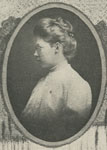

Bertha Latta was the daughter of Professor William C. Latta. She graduated from Purdue in 1907 with a BS in Science. Her thesis is titled Materials for a History of Tippecanoe County, Indian. While at Purdue, she was involved with organizations such as the Philalethean Literary Society, the Tennis Club, and was on the staff of the Exponent student newspaper. Though Purdue's Home Economics Department was not founded until the year after Latta had graduated, she proceeded to create a short course in home economics at the Fairmount Academy in Fairmount, Indiana. After teaching high school for several years, Latta became the Indiana State Supervisor of Home Economics Education for seven years. By 1924, Latta had become interested in the insurance industry. She worked in Lafayette for a few months before becoming the district manager of the Peoria Life at the South Bend office. In 1926, she established a branch in the Lafayette district and acted as head.
Daisy Riley Lloyd
October 15, 1923 - May 15, 2019


Daisy Dorothy Riley Lloyd was born in Lawrence, Kansas to Nettie and Hiram Riley. She moved to Washington, D.C. at 17 to enroll at Howard University, where she earned a B.S. in Economics and Sociology. While in D.C., she also worked as a research assistant at the Library of Congress. While there, she also met Frank Lloyd, who she married in 1949.
Daisy and Frank moved to Indianapolis, Indiana shortly after marrying to build their respective careers. In 1964, Lloyd was approached by the Democratic Party to seek office in the Indiana General Assembly With the rise of the civil rights movement, Daisy was approached by the Democratic Party of Indiana to seek office in the Indiana Legislature. Lloyd was elected to office in representation of Indianapolis and Marion County in the House of Representatives, thus becoming the first African American woman elected to the Indiana legislature. During her single term, she was diagnosed with breast cancer and spoke publicly about her experience, while reaffirming her capacity to serve her constituents.
After her term in the Indiana House of Representatives, Lloyd entered real estate and eventually started Northside Realty. During this time she fought for listing associations to be open to black realtors, and thus helped open the housing market to black families in Indianapolis. With a commitment to education and learning, Lloyd returned to school in the 70s and earned an M.A. in Psychology and Religion from Butler University. Afterwards, she enrolled at Purdue University, where she earned her PhD in Human Development and Family Studies (1985). After completing her PhD, Lloyd joined the faculty at IUPUI, where she taught family sociology and established a counseling practice.
Lloyd shifted her focus again after 15 years of building her practice, and combined her faith and professional experience to begin hosting spiritual retreats for women. She continued her spiritual development by enrolling at the United Theological Seminary, where she earned her Doctorate of Ministry. Her dissertation was titled Visual Art as a Tool for Spiritual Direction. Over the course of her time spent in the Indianapolis community, Lloyd was dedicated to serving her community. She was a founding member of the Butler Tarkington Neighborhood Association and the Center for Leadership Development. She was a member of the Commission for Higher Education and a Commissioner of the Public Housing Authority. She served on many boards, including the American Red Cross, YMCA, Salvation Army, Wishard (Eskenazi) Hospital, Minority Business Commission, the Indianapolis Opera Society, and Municipal Arts Council, among others.
For her dedication and service, Lloyd was awarded the Sagamore of the Wabash Award by three different Indiana governors. She was also recognized as a distinguished alumni from Purdue. Lloyd, with her family, received the Spirit Award from the Madam C.J. Walker Center. In recognition of her advocacy in real estate, Lloyd received the Trailblazer Award from the Central Indiana Real Estate Association (2015). Lloyd passed away in 2019, and was suvived by her three children.
Daisy and Frank moved to Indianapolis, Indiana shortly after marrying to build their respective careers. In 1964, Lloyd was approached by the Democratic Party to seek office in the Indiana General Assembly With the rise of the civil rights movement, Daisy was approached by the Democratic Party of Indiana to seek office in the Indiana Legislature. Lloyd was elected to office in representation of Indianapolis and Marion County in the House of Representatives, thus becoming the first African American woman elected to the Indiana legislature. During her single term, she was diagnosed with breast cancer and spoke publicly about her experience, while reaffirming her capacity to serve her constituents.
After her term in the Indiana House of Representatives, Lloyd entered real estate and eventually started Northside Realty. During this time she fought for listing associations to be open to black realtors, and thus helped open the housing market to black families in Indianapolis. With a commitment to education and learning, Lloyd returned to school in the 70s and earned an M.A. in Psychology and Religion from Butler University. Afterwards, she enrolled at Purdue University, where she earned her PhD in Human Development and Family Studies (1985). After completing her PhD, Lloyd joined the faculty at IUPUI, where she taught family sociology and established a counseling practice.
Lloyd shifted her focus again after 15 years of building her practice, and combined her faith and professional experience to begin hosting spiritual retreats for women. She continued her spiritual development by enrolling at the United Theological Seminary, where she earned her Doctorate of Ministry. Her dissertation was titled Visual Art as a Tool for Spiritual Direction. Over the course of her time spent in the Indianapolis community, Lloyd was dedicated to serving her community. She was a founding member of the Butler Tarkington Neighborhood Association and the Center for Leadership Development. She was a member of the Commission for Higher Education and a Commissioner of the Public Housing Authority. She served on many boards, including the American Red Cross, YMCA, Salvation Army, Wishard (Eskenazi) Hospital, Minority Business Commission, the Indianapolis Opera Society, and Municipal Arts Council, among others.
For her dedication and service, Lloyd was awarded the Sagamore of the Wabash Award by three different Indiana governors. She was also recognized as a distinguished alumni from Purdue. Lloyd, with her family, received the Spirit Award from the Madam C.J. Walker Center. In recognition of her advocacy in real estate, Lloyd received the Trailblazer Award from the Central Indiana Real Estate Association (2015). Lloyd passed away in 2019, and was suvived by her three children.
Alma Long
July 28, 1883 - September 25, 1951


Alma Irene Long was born July 28, 1883 in Newport, Kentucky. Before beginning her formal education, Long taught home economics at a public high school in Cincinnati and the North Carolina College for Women. She also worked for the War Industries Board from 1917-1919 doing statistical and educational research. Long received her B.S. in 1923 from the Teacher's College at Columbia and went on to attain her MA there in 1930. She received her PhD in 1933 from Western Reserve University. While receiving her education, she also served as the head of Home Economics at Wittenberg College, Antioch College, Winthrop College, and the Putnam School. She joined the faculty at Purdue in 1938 as an Assistant Professor of Home Economics and was promoted to Associate Professor in 1943.
Long's research focused on the phsychological aspects of home economics education. She presented several papers to the Indiana Academy of Science and published a textbook: Home Health and Nursing. Long was an active member of the American Association for the Advancement of Science, the American Psychological Association, the Midwest Psychology Association, the Indiana Academy of Science, and was a Fellow of the Education Research Association. She passed away September 25, 1951 in Lafayette, Indiana.
Long's research focused on the phsychological aspects of home economics education. She presented several papers to the Indiana Academy of Science and published a textbook: Home Health and Nursing. Long was an active member of the American Association for the Advancement of Science, the American Psychological Association, the Midwest Psychology Association, the Indiana Academy of Science, and was a Fellow of the Education Research Association. She passed away September 25, 1951 in Lafayette, Indiana.
Anne Mae Lutz
March 18, 1871 - January 15, 1938
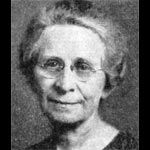

Anne M. Lutz (1871-1938) was a female scientist and genetics researcher with a focus on oenothera mutant chromosome research. Lutz worked at Cold Spring Harbours, conducted research in Belgium, published numerous articles in scientific journals, and was the first woman to receive an honorary Doctor of Science degree from Purdue University for her contributions in discovering the double chromosome theory.
She was born on March 18, 1871 to parents Samuel B. Lutz and Eleanor E. (Gougar) Lutz. Anne was one of eight children. For her early education, she attended a one-room school in Union township. She entered Purdue University and obtained a B.S. degree 1890, after only three years instead of four. The following year she earned an M.S. degree from Purdue University in Biology (1891). She later attended the University of Michigan and received another B.S. degree from there in 1893 after one year.
After graduating, Lutz continued at University of Michigan as an assistant in biological research. Later she conducted research at the University of Chicago for a year, followed by research at Columbia University. Lutz was sought out and joined the staff of the Carnegie Institute of Experimental Evolution at Cold Springs Harbor, Long Island, New York, and remained there until 1911 (approximately 6-8 years).
On June 11, 1911, she left Lafayette, Indiana for Europe. She gained entrance to the Catholic University of Louvain, Belgium, where she was the first woman student in 200 years and the last before the university was destroyed during World War I. She continued her research studies there in the Department of Botany and Cytology, and also studied at Amsterdam University in Holland. After sixteen months, she returned home to complete her studies.
Lutz published articles in leading scientific journals between 1907 and 1917, and Louvain published a bulletin dealing with her work. Lutz also made a business of producing and selling microscopic slides for biological subjects and she was one of the first women, if not the first woman, to do so.
After completing most of her studies around 1916, she devoted time to the state and county tuberculosis associations, the Tippecanoe County Historical Association in Indiana, the Federation of Clubs, Farm Bureau, and other organizations. She was also involved in local organization such as the League of Women Voters. Lutz was offered jobs by Harvard University as well as the U.S. government during World War I, but turned them down due to poor health.
In 1932, she became the first woman to receive an honorary Doctor of Science degree from Purdue University for her work in discovering the double chromosome theory.
Upon her death in 1938, Lutz was a member of the board of directors of the Indiana State Tuberculosis Association, for which she had served as president. She had been a board member and secretary of the Tippecanoe County Historical Association, a member of the Trinity M.E. Church in Lafayette, the Twentieth Century Club, and a patron of Tri Kappa. She was also actively involved in the League of Women Voters. Surviving Lutz after her death were a sister, Flora J. Lutz, and a brother, Harry G. Lutz.
She was born on March 18, 1871 to parents Samuel B. Lutz and Eleanor E. (Gougar) Lutz. Anne was one of eight children. For her early education, she attended a one-room school in Union township. She entered Purdue University and obtained a B.S. degree 1890, after only three years instead of four. The following year she earned an M.S. degree from Purdue University in Biology (1891). She later attended the University of Michigan and received another B.S. degree from there in 1893 after one year.
After graduating, Lutz continued at University of Michigan as an assistant in biological research. Later she conducted research at the University of Chicago for a year, followed by research at Columbia University. Lutz was sought out and joined the staff of the Carnegie Institute of Experimental Evolution at Cold Springs Harbor, Long Island, New York, and remained there until 1911 (approximately 6-8 years).
On June 11, 1911, she left Lafayette, Indiana for Europe. She gained entrance to the Catholic University of Louvain, Belgium, where she was the first woman student in 200 years and the last before the university was destroyed during World War I. She continued her research studies there in the Department of Botany and Cytology, and also studied at Amsterdam University in Holland. After sixteen months, she returned home to complete her studies.
Lutz published articles in leading scientific journals between 1907 and 1917, and Louvain published a bulletin dealing with her work. Lutz also made a business of producing and selling microscopic slides for biological subjects and she was one of the first women, if not the first woman, to do so.
After completing most of her studies around 1916, she devoted time to the state and county tuberculosis associations, the Tippecanoe County Historical Association in Indiana, the Federation of Clubs, Farm Bureau, and other organizations. She was also involved in local organization such as the League of Women Voters. Lutz was offered jobs by Harvard University as well as the U.S. government during World War I, but turned them down due to poor health.
In 1932, she became the first woman to receive an honorary Doctor of Science degree from Purdue University for her work in discovering the double chromosome theory.
Upon her death in 1938, Lutz was a member of the board of directors of the Indiana State Tuberculosis Association, for which she had served as president. She had been a board member and secretary of the Tippecanoe County Historical Association, a member of the Trinity M.E. Church in Lafayette, the Twentieth Century Club, and a patron of Tri Kappa. She was also actively involved in the League of Women Voters. Surviving Lutz after her death were a sister, Flora J. Lutz, and a brother, Harry G. Lutz.
Marguerite Genevieve Mallon
January 1, 1890 - 1968
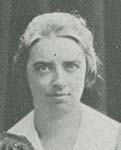

Marguerite was born on January 1, 1890, in Bloomington, Illinois. Her father was John P. Mallon, a statistician for the Chicago and Eastern Railroad, and her mother was an organist and teacher of piano.
Marguerite went through public schools in Chicago before earning her Bachelor of Science degree from the Institute of Technology, Chicago, in 1915. She continued her studies at the University of Chicago, earning a M.S. in 1916 and a Ph.D. in 1926 in nutrition.
Marguerite came to Purdue in 1918 as an instructor in Foods and Nutrition. She became an assistant professor in 1920 and was promoted to associate professor in 1934. She resigned from Purdue in 1936 after accepting a position as an assistant professor in home economics at the University of California, Los Angeles.
Through her research on nutrition, Mallon addressed issues related to calcium and its retention in the body. She wrote numerous academic articles on the subject, many of which were printed in publications such as Biological Chemistry, Journal of Home Economics, Journal of the American Dietetic Association, and others. Mallon passed away in 1968.
Marguerite went through public schools in Chicago before earning her Bachelor of Science degree from the Institute of Technology, Chicago, in 1915. She continued her studies at the University of Chicago, earning a M.S. in 1916 and a Ph.D. in 1926 in nutrition.
Marguerite came to Purdue in 1918 as an instructor in Foods and Nutrition. She became an assistant professor in 1920 and was promoted to associate professor in 1934. She resigned from Purdue in 1936 after accepting a position as an assistant professor in home economics at the University of California, Los Angeles.
Through her research on nutrition, Mallon addressed issues related to calcium and its retention in the body. She wrote numerous academic articles on the subject, many of which were printed in publications such as Biological Chemistry, Journal of Home Economics, Journal of the American Dietetic Association, and others. Mallon passed away in 1968.
Pauline Mariotte-Davies
April 21, 1849 - September 10, 1930


Davies was born in Paris, where she competed for and won a scholarship in the Ecole Normale Superieure at a young age. She eventually received her degree from the University of France and became a French professor at the Bridgewater Ladies' College, which is an affiliate of Cambridge University. She also served as a professor of French and general history at Findlay College in Ohio from 1885 through 1895, during which time she received her PhD. She also taught at Milwaukee College, Downer College, and Bay View Summer University before she was hired by Purdue in 1896. She taught French until 1914, when she retired under the provisions of the Carnegie Foundation for the Advancement of Teaching. As a professor who challenged her students, Davies evinced mixed emotions. As her student wrote, "To Freshmen, Madame is the source of sleepless nights, but the upper classes always find her a true and interested friend." She died in 1930 at her summer home in Michigan. She was 81 years old.
Rocio Martinez


Martinez was born and raised in San Juan, Puerto Rico. Her mother was a dance instructor who taught flamenco and ran a dance studio in their home. Martinez's grandmother, a journalist and active member of a political party, also lived with the family. Martinez lists ""music and political discussions"" as two influential aspects of her youth. Martinez graduated Cum Laude from the University of Puerto Rico Rio Piedras in 1979 with a B.A. in Hispanic and Latin American Languages, Literature, and Linguistics.
Shortly after, Martinez came to the United States for graduate school. She an MS in Counseling and Guidance (1981) and a PhD in Counseling Psychology (1996) from the University of Madison-Wisconsin. Before graduating with her doctorate, Martinez served as a psychology intern for the University of Wisconsin-Madison Counseling and Consultation Services. After completing her education, Martinez came to Purdue and served as an Assistant Dean of Students for nine years. During that time, she organized and oversaw the special support services for Purdue's minority students.
After leaving Purdue, Martinez became a professional counselor for the Madison College Counseling and Conflict Managing Services. She has also been involved with the Madison College Intercultural Council and acts as an advisor for the Phi Theta Kappa International Honor Society and for Latino Pride. In 2004, Martinez was nominated for and won the Madison College Outstanding Employee of the year award.
Shortly after, Martinez came to the United States for graduate school. She an MS in Counseling and Guidance (1981) and a PhD in Counseling Psychology (1996) from the University of Madison-Wisconsin. Before graduating with her doctorate, Martinez served as a psychology intern for the University of Wisconsin-Madison Counseling and Consultation Services. After completing her education, Martinez came to Purdue and served as an Assistant Dean of Students for nine years. During that time, she organized and oversaw the special support services for Purdue's minority students.
After leaving Purdue, Martinez became a professional counselor for the Madison College Counseling and Conflict Managing Services. She has also been involved with the Madison College Intercultural Council and acts as an advisor for the Phi Theta Kappa International Honor Society and for Latino Pride. In 2004, Martinez was nominated for and won the Madison College Outstanding Employee of the year award.
Myra DeBow Mason
December 12, 1936 - March 19, 2020
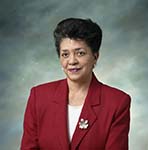

Myra Debow Mason was born in Indianapolis, Indiana to Franceda Cross and Charles DeBow, Jr in 1936. Her father, Charles DeBow Jr, was a member of the Tuskegee Airmen who helped sue the federal government in order to win African Americans the right to fly military combat airplanes during World War II.
Mason attended Indiana University as a theatre major and taught in the speech and drama department at King Kennedy College after earning her degree. She earned a Master's and PhD in higher education from the University of Chicago. Mason began her career in education as a public school teacher in Chicago, followed by a period of working as a community college instructor. She later worked as the minority affairs director for Indiana University's School of Dentistry in Indianapolis and became the statewide director of educational opportunity for the central office of Indiana Vocational Technical College. Through the ""Hoosier Plan for Minority Enforcement"" program, Mason helped to increase the number of minority students and faculty at the eight Indiana University campuses. She was also the co-founder of the Indiana Coalition of Blacks in Higher Education.
In 1993, Mason came to Purdue University as the Director of Diversity and Multicultural Affairs, a position that she held until 1997. Myra believed that ""Americans shouldn't have to ask to be treated with respect."" As a result of that belief, she was instrumental in drafting the Purdue University anti-harassment policy of 1994 that has since become a model for other universities. Mason's advice to students was to maintain their unique identities, learn from people and experiences as well as from books, believe in themselves, and achieve self-actualization. While at Purdue, she also co-chaired several Holocaust Rememberance Conferences with Rabi Gideon Cagel.
Throughout her career, Mason remained committed to serving the community and was a leader in developing diversity and inclusion initiatives in Indiana. In her role as the Assistant Commissioner of the Indiana Private School Accrediting Commission, she assisted with the establishing of Martin College. She served on the board of the Indiana Black Expo, and organized the NAACP ACTSO awards where she helped identify local students to compete at National NAACP conventions. She was also a member of the Indianapolis Chapter of Tuskagee Airmen in honor of her father. Mason served as a Docent at the Indianapolis Museum of Art, where she served on the education committee for 25 years and helped select scholarship recipients.
Mason had two children, Harold Harris III and Gena Virginia Mason (deceased). Myra DeBow Mason died in March 2020 in Indianapolis, Indiana.
Mason attended Indiana University as a theatre major and taught in the speech and drama department at King Kennedy College after earning her degree. She earned a Master's and PhD in higher education from the University of Chicago. Mason began her career in education as a public school teacher in Chicago, followed by a period of working as a community college instructor. She later worked as the minority affairs director for Indiana University's School of Dentistry in Indianapolis and became the statewide director of educational opportunity for the central office of Indiana Vocational Technical College. Through the ""Hoosier Plan for Minority Enforcement"" program, Mason helped to increase the number of minority students and faculty at the eight Indiana University campuses. She was also the co-founder of the Indiana Coalition of Blacks in Higher Education.
In 1993, Mason came to Purdue University as the Director of Diversity and Multicultural Affairs, a position that she held until 1997. Myra believed that ""Americans shouldn't have to ask to be treated with respect."" As a result of that belief, she was instrumental in drafting the Purdue University anti-harassment policy of 1994 that has since become a model for other universities. Mason's advice to students was to maintain their unique identities, learn from people and experiences as well as from books, believe in themselves, and achieve self-actualization. While at Purdue, she also co-chaired several Holocaust Rememberance Conferences with Rabi Gideon Cagel.
Throughout her career, Mason remained committed to serving the community and was a leader in developing diversity and inclusion initiatives in Indiana. In her role as the Assistant Commissioner of the Indiana Private School Accrediting Commission, she assisted with the establishing of Martin College. She served on the board of the Indiana Black Expo, and organized the NAACP ACTSO awards where she helped identify local students to compete at National NAACP conventions. She was also a member of the Indianapolis Chapter of Tuskagee Airmen in honor of her father. Mason served as a Docent at the Indianapolis Museum of Art, where she served on the education committee for 25 years and helped select scholarship recipients.
Mason had two children, Harold Harris III and Gena Virginia Mason (deceased). Myra DeBow Mason died in March 2020 in Indianapolis, Indiana.
Sally Frost Mason
May 29,1950 -
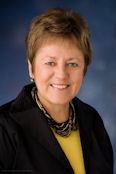

Sally Mason was born in New York City and graduated from high school in Union, New Jersey. Her career interest was in biology and related fields. She earned her BS in Zoology at the University of Kentucky (1972). She then want on to earn her MS in Developmental Biology from Purdue (1974), and her PhD in Cellular, Molecular, and Developmental Biology from the University of Arizona (1978). After completing her PhD, she held a Postdoctoral research position at Indiana University. She joined the faculty at University of Kansas in 1980, and eventually served as the Associate Dean of Natural Sciences and Mathematics (1990-1995) and the Acting Dean of the College of Liberal Arts and Sciences (1995-1996). She left the University of Kansas to join the administration at Purdue University.
Mason was recruited by Purdue for the position of Provost which she held from 2001-2007. Mason was the first female Provost at the University. During her time as Provost, Mason was responsible for planning, managing, and overseeing all academic programs at Purdue's West Lafayette campus and its four affiliated branch campuses in Indiana. Mason also successfully led the strategic initiative to design and staff the programs in Discovery Park. She oversaw Purdue’s conversion to the OnePurdue and Banner database systems and supported the Engineering faculty initiative to shift to an interdisciplinary approach to their teaching and research. She brought diversity awareness to the Purdue faculty through ongoing workshops, which also included gender awareness training; these events became known as multicultural forums which gave rise to the Diversity Leadership Group, now a permanent advisory committee to the Provost. Dr. Mason also initiated the EPICS program for undergraduate research initiatives and the Women in Philanthropy group.
In 2007, Mason was offered the presidency of the University of Iowa, which she accepted. Throughout her career, Mason has published numerous scholarly articles and has received grants from organizations such as the National Institutes of Health, the Wesley Research Foundation, the Lilly Endowment, and the National Science Foundation. Mason also has been appointed to the National Medal of Science Committee for two terms (2006-2011) by the President of the United States.
Mason was recruited by Purdue for the position of Provost which she held from 2001-2007. Mason was the first female Provost at the University. During her time as Provost, Mason was responsible for planning, managing, and overseeing all academic programs at Purdue's West Lafayette campus and its four affiliated branch campuses in Indiana. Mason also successfully led the strategic initiative to design and staff the programs in Discovery Park. She oversaw Purdue’s conversion to the OnePurdue and Banner database systems and supported the Engineering faculty initiative to shift to an interdisciplinary approach to their teaching and research. She brought diversity awareness to the Purdue faculty through ongoing workshops, which also included gender awareness training; these events became known as multicultural forums which gave rise to the Diversity Leadership Group, now a permanent advisory committee to the Provost. Dr. Mason also initiated the EPICS program for undergraduate research initiatives and the Women in Philanthropy group.
In 2007, Mason was offered the presidency of the University of Iowa, which she accepted. Throughout her career, Mason has published numerous scholarly articles and has received grants from organizations such as the National Institutes of Health, the Wesley Research Foundation, the Lilly Endowment, and the National Science Foundation. Mason also has been appointed to the National Medal of Science Committee for two terms (2006-2011) by the President of the United States.
Mary Lockwood Matthews
1882 - June 5, 1968
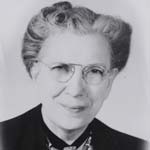

Mary Lockwood Matthews was born in 1882 to Harriet Matthews. She was later adopted by agricultural pioneer Virginia Meredith, who was a friend of her mother's. She joined the Purdue faculty in 1910 as an extension home economics instructor. In 1912, she was named head of the Department of Household Economics, which expanded to become the School of Home Economics in 1926. At its founding, Matthews was the dean- a tribute to her work in advocating for the creation of the school and to advance educational opportunities for women students. Matthews was instrumental in the creation of a home economics building, constructed in 1922 and named in her honor. The School has since been described as a "strong pillar of American home economics education." Mary Matthews is also credited for the invention of "Master Mix," a concoction created in the home economics labs at Purdue which was utilized by homemakers for the quick and easy preparation of baked goods. After serving at Purdue nearly fifty years as a faculty member, Mathews retired in 1958, earning the title Dean Emeritus. Matthews published many books and articles on foods and cookery, textiles, and home economics education. Over the course of her career, she was a fierce advocate for women's education and the recognition of the importance of women's work. Mary Matthews died in 1968.
Jill Sutton McCormick
March 11, 1916 - January 8, 1989
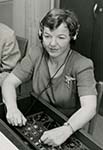

Jill Sutton McCormick (1916-1989) was an accomplished pilot and aviation professor at Purdue University. A graduate of Sullins College and Columbia University, McCormick learned to fly during World War II as a member of WASP (the Women's Air Force Service Pilots). During her twenty-six month tenure as a ferry pilot, McCormick flew twenty-three types of military aircraft, including both transport and fighter aircraft. After being discharged when the WASP organization disbanded in 1944, McCormick remained in the U.S. Air Force Reserve as a major. McCormick also flew a/or provided training for Eastern Airlines, Trans World Airlines, and Flying Tiger Lines before eventually coming to Purdue as a flight instructor. As the first full-time instructor in the Professional Pilot Program established in 1955, McCormick taught most of the aviation lecture courses and instructed procedures for the Link flight trainers (and later versions of flight simulators). In addition to her professional commitment to Purdue and the miscellaneous commercial airlines for which she worked, McCormick was also an active member of the Ninety-Nines, the premier women's aviation organization. In the peak of her career as a flight instructor, McCormick was honored with a Women's Achievement Award (1962) from the Lafayette Business and Professional Women's Club and an Amelia Earhart Memorial Scholarship (1964) from the Ninety-Nines. In addition, President Lyndon Johnson appointed her to the Women's National Aviation Advisory Board for the 1964-1966 term.
Marylu McEwen
March 17, 1946 -
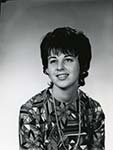

Marylu McEwen is a prominent scholar in student development theory, working specifically in theories of student development for students of color. She also focuses on multiculturalism in student affairs and higher education. These research and teaching foci developed from an early emphasis on women's issues and development in graduate school that later expanded to focus more broadly on diversity, multiculturalism and social justice. McEwen is currently an Associate Professor Emerita in the College of Education at the University of Maryland at College Park where she spent twenty-one years in the Department of Counseling and Personnel Services. Prior to her tenure at the University of Maryland, McEwen was a member of the faculty at Auburn University in the Counselor Education Program for twelve years. McEwen earned both her Bachelor of Science (mathematics) and her doctorate (Counseling and Personnel Services) from Purdue University, in addition to her M.S.Ed. from Indiana University (College Student Personnel Administration). While finishing her PhD, McEwen worked as an intern in the Office of the Dean of Women at Purdue. Upon receiving her doctorate in 1972, McEwen completed a two year term as the Assistant Dean of Women there. In addition to many publications and presentations over the course of her career, McEwen has placed an emphasis on the importance of mentorship and guidance of her students. She has also remained highly active in her field by maintaining membership in numerous professional organizations and honor societies, as well as accepting leadership positions in service to the university and professional associations.
Kathryn McHale
July 22, 1889 - October 8, 1956
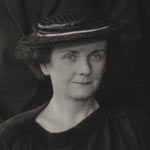

Kathryn McHale was born in Logansport, Indiana in 1889 to Martin and Margaret McHale. She gradiated high school there, and then went on to teach there from 1910-1917. After leaving Logansport, McHale attended Columbia University, where she earned her B.S. (1919), M.A. (1920), and PhD (1926). While completing her PhD, McHale taught at Goucher College in Baltimore, Maryland. She taught there until 1935, and eventually earned the rank of full professor in 1927. During this time, she spent her summers teaching at other universities, including Columbia, University of Minnesota, and Carleton College.
Known as a ""Hoosier with a national reputation as a crusader for women's rights,"" McHale served on the Board of Trustees for Purdue from 1937-1946. McHale became general director of the American Association for University Women and served from 1929-1950. One of her most widely recognized achievements involved developing a vocational interest test designed to help students, particularly women, determine career paths. She also directed a study involving women's colleges, which resulted in a publication that is considered a landmark in higher education literature. As a Purdue Board of Trustee member, McHale was one of the first to interview Frederick Hovde in 1945 in a search which resulted in his future presidency of the University.
In addition to her career as an educator, McHale served on several national committees, including the U.S. National Commission for UNESCO, the Citizens' Federal Committee of the U. S. Office of Education, the Women's Interest Section of the Advisory Council of the War Department, the executive council of the American Association of Adult Education, the board of educational advisers to the National Foundation for Education in American Citizenship, and the board of the National Association of Foreign Student Advisors. She was also involved with the Subservisive Activities Control Board under an appointment by President Truman. McHale authored more than 40 books and articles relating to adult and child education. She died in Washington, D.C. in 1956.
Known as a ""Hoosier with a national reputation as a crusader for women's rights,"" McHale served on the Board of Trustees for Purdue from 1937-1946. McHale became general director of the American Association for University Women and served from 1929-1950. One of her most widely recognized achievements involved developing a vocational interest test designed to help students, particularly women, determine career paths. She also directed a study involving women's colleges, which resulted in a publication that is considered a landmark in higher education literature. As a Purdue Board of Trustee member, McHale was one of the first to interview Frederick Hovde in 1945 in a search which resulted in his future presidency of the University.
In addition to her career as an educator, McHale served on several national committees, including the U.S. National Commission for UNESCO, the Citizens' Federal Committee of the U. S. Office of Education, the Women's Interest Section of the Advisory Council of the War Department, the executive council of the American Association of Adult Education, the board of educational advisers to the National Foundation for Education in American Citizenship, and the board of the National Association of Foreign Student Advisors. She was also involved with the Subservisive Activities Control Board under an appointment by President Truman. McHale authored more than 40 books and articles relating to adult and child education. She died in Washington, D.C. in 1956.
Emma McRae
February 12, 1848- September 21, 1919
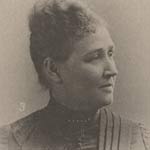

Emma Montgomery McRae, born February 12, 1848, at Loveland, Ohio; died September 21, 1919 at Newton Center, Massachusetts.
Mrs. McRae was born at Loveland, Ohio, and at five years of age she moved with her parents to Indiana. Her early education was obtained from private tutors, among whom her father, who was a Methodist minister, held a prominent place. Later she attended private and public schools, and finally took a course in Brookville Academy. She was granted the degree of Master of Arts from Wooster College in Ohio. Mrs. McRae began teaching in the public schools of Vevay. From there she went to Muncie, where she served as principal of the high school from 1867 to 1888. It was in Muncie that she married Hamilton S. McRae, who was superintendent of Muncie schools. In 1887 she came to Purdue to take the position of professor of English Literature and lady principal. Mrs. McRae spent twenty-six years at Purdue. In 1913 she retired under the auspices of the Carnegie Foundation, where she made her home with her daughter, Mrs. S. Hardy Mitchell of Newton Center, Massachusetts.
In addition to the work Mrs. McRae did in the classroom, she deserves special mention for what she did among the teachers of the state. She was a pioneer in the work of the institutes. She was the only woman so honored in Indiana to be chosen the President of the State Teachers' Association.
Socially she occupied a very high position. She was a delightful hostess and was never so happy as when her apartments in the Ladies' Hall were the scene of some social gathering. Her annual Easter Monday reception was always brilliant and the invitation list was always large.
No one had more devoted friends among the people of Lafayette. But, naturally, it was at Purdue that her influence was strongest. Her fine literary sense, the very essence of her idealism, was always in evidence; her wonderful judgment was always ready, and her sympathy was swift. As a public speaker, she won not only by the power of her thought and the eloquence of her manner, but also by the sweetness of her soul.
Her funeral was held in Muncie at the home of Miss Elizabeth Willard. It was the same home that had received Mrs. McRae when she went to Muncie as a teacher.
President Stone represented the University and began his address with the words: ""At this moment the flag at Purdue University hangs at half-mast in memory of Mrs. McRae.""
And this, it must seem to all of us, is the heart of the whole matter, silence - more eloquent than words - and the flag at half-mast - the flag that she had lived to see thrice assailed, thrice triumphant.
Mrs. McRae loved the flag, loved her country. She loved the State of Indiana - she was proud of being a Hoosier. Mrs. McRae loved Purdue, and when she found last June that she would not be able to come to us, she wrote: ""It breaks my heart not to be with you."" And we know that Mrs. McRae died with the Purdue love in her heart.
From her son-in-law we have the account of her last conscious utterance. He had performed some kindly service for her, and she had rallied for the moment: ""O, bless your sweet soul!"" And thus passed out of her midst this gentlest and sweetest of souls, that had walked with us and talked with us, as teacher and friend.
Mrs. McRae was born at Loveland, Ohio, and at five years of age she moved with her parents to Indiana. Her early education was obtained from private tutors, among whom her father, who was a Methodist minister, held a prominent place. Later she attended private and public schools, and finally took a course in Brookville Academy. She was granted the degree of Master of Arts from Wooster College in Ohio. Mrs. McRae began teaching in the public schools of Vevay. From there she went to Muncie, where she served as principal of the high school from 1867 to 1888. It was in Muncie that she married Hamilton S. McRae, who was superintendent of Muncie schools. In 1887 she came to Purdue to take the position of professor of English Literature and lady principal. Mrs. McRae spent twenty-six years at Purdue. In 1913 she retired under the auspices of the Carnegie Foundation, where she made her home with her daughter, Mrs. S. Hardy Mitchell of Newton Center, Massachusetts.
In addition to the work Mrs. McRae did in the classroom, she deserves special mention for what she did among the teachers of the state. She was a pioneer in the work of the institutes. She was the only woman so honored in Indiana to be chosen the President of the State Teachers' Association.
Socially she occupied a very high position. She was a delightful hostess and was never so happy as when her apartments in the Ladies' Hall were the scene of some social gathering. Her annual Easter Monday reception was always brilliant and the invitation list was always large.
No one had more devoted friends among the people of Lafayette. But, naturally, it was at Purdue that her influence was strongest. Her fine literary sense, the very essence of her idealism, was always in evidence; her wonderful judgment was always ready, and her sympathy was swift. As a public speaker, she won not only by the power of her thought and the eloquence of her manner, but also by the sweetness of her soul.
Her funeral was held in Muncie at the home of Miss Elizabeth Willard. It was the same home that had received Mrs. McRae when she went to Muncie as a teacher.
President Stone represented the University and began his address with the words: ""At this moment the flag at Purdue University hangs at half-mast in memory of Mrs. McRae.""
And this, it must seem to all of us, is the heart of the whole matter, silence - more eloquent than words - and the flag at half-mast - the flag that she had lived to see thrice assailed, thrice triumphant.
Mrs. McRae loved the flag, loved her country. She loved the State of Indiana - she was proud of being a Hoosier. Mrs. McRae loved Purdue, and when she found last June that she would not be able to come to us, she wrote: ""It breaks my heart not to be with you."" And we know that Mrs. McRae died with the Purdue love in her heart.
From her son-in-law we have the account of her last conscious utterance. He had performed some kindly service for her, and she had rallied for the moment: ""O, bless your sweet soul!"" And thus passed out of her midst this gentlest and sweetest of souls, that had walked with us and talked with us, as teacher and friend.
Virginia Claypool Meredith
November 1, 1848 - December 10, 1936
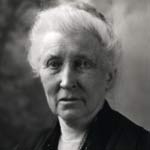

Virginia Claypool Meredith was born in Fayette County, Indiana, November 1, 1848, the daughter of Austin B. and Hannah A. Claypool. She graduated from Glendale College in 1866, and married Henry Clay Meredith in 1870.
After her husband's death in 1882, she assumed full charge of his large farm and gained national fame in handling his herds and flocks. Her varied achievements in agriculture, home economics, as a public speaker, organizer, writer, editor, and trustee of Purdue University won her nation-wide recognition as the ""Queen of American Agriculture"".
Meredith's involvement with Purdue began in 1899, while she was a speaker for the Farmers' Institutes, offering lectures across Indiana that were aimed to educate farmers on the latest science and technology in agriculture. These lectures, along with Meredith's unrelenting petitioning of Purdue presidents, were highly influential in paving the way for a home economics department in 1905. In addition to being a pioneer in agricultural education, organizer of the Indiana Federation of Women's Clubs, and editor of the Breeders Gazette, Virginia Claypool Meredith also became the first woman to serve on the Board of Trustees at Purdue, a post which she held from 1921-1936. The women's residence hall known as ""Meredith Hall"" is named in her memory.
President University President Edward C. Elliott paid her the following tribute at the time of her death on December 10, 1936: ""Thus, comes to an end a brilliant career of devoted service to the nation, the state, the University, and above all to the advancement of the place of women in our civilization. All who had the privilege of working with her were constantly the beneficiaries of her kindly and farsighted wisdom. She was an ideal University trustee. The best of her life was built into the University she loved so much and served so well.""
After her husband's death in 1882, she assumed full charge of his large farm and gained national fame in handling his herds and flocks. Her varied achievements in agriculture, home economics, as a public speaker, organizer, writer, editor, and trustee of Purdue University won her nation-wide recognition as the ""Queen of American Agriculture"".
Meredith's involvement with Purdue began in 1899, while she was a speaker for the Farmers' Institutes, offering lectures across Indiana that were aimed to educate farmers on the latest science and technology in agriculture. These lectures, along with Meredith's unrelenting petitioning of Purdue presidents, were highly influential in paving the way for a home economics department in 1905. In addition to being a pioneer in agricultural education, organizer of the Indiana Federation of Women's Clubs, and editor of the Breeders Gazette, Virginia Claypool Meredith also became the first woman to serve on the Board of Trustees at Purdue, a post which she held from 1921-1936. The women's residence hall known as ""Meredith Hall"" is named in her memory.
President University President Edward C. Elliott paid her the following tribute at the time of her death on December 10, 1936: ""Thus, comes to an end a brilliant career of devoted service to the nation, the state, the University, and above all to the advancement of the place of women in our civilization. All who had the privilege of working with her were constantly the beneficiaries of her kindly and farsighted wisdom. She was an ideal University trustee. The best of her life was built into the University she loved so much and served so well.""
Cynthia Ann Metzler
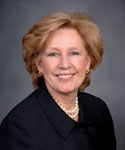

Cynthia Ann Metzler was born in Pittsburgh, Pennsylvania, but grew up in Muncie, Indiana. She graduated from Muncie Central High School in 1966. Metzler attended Purdue and was an active member of the student body. She served as the president of the Association for Women Students, through which she and other students petitioned Purdue's administration to initiate a guest hours policy in the dormitories. In addition, Metzler was one of a few female students who worked to change the curfew hours for female students. After graduating in 1970 with a BA in Political Science, Metzler worked in the Center for Responsive Law in Washington, DC for 18 months before returning to Indiana to complete her JD at Indiana Univeristy (1974). She also earned an MS in Organizational Development (MSOD) from American University in 1985.
Metzler worked for several years at various jobs, including heading the Florida Rural Legal Service, acting as Chief Executive Officer of an international women's organization, provost and chief academic officer of Cedar Crest College, as adviser to the head administrator for federal labor-management relations, and senior manager in Presidential Personnel for the President of the United States. In 1994, President Bill Clinton nominated Metzler as Assistant Secretary of Labor for Administration and Management. By 1997, Metzler had become the Acting Secretary of Labor and oversaw the work of 16,000 Department of Labor employees. She was also a partner in the law firm of Pepper Hamilton LLP and the president of a consulting firm focused on improving the effectiveness of nonprofit organizations. In 2006, Metzler became the president and CEO of Experience Works, a national, charitable organization focused on training low-income seniors with employment skills. Metzler was inducted into the Indiana University School of Law Academy of Law Alumni Fellows in 2003.
Metzler worked for several years at various jobs, including heading the Florida Rural Legal Service, acting as Chief Executive Officer of an international women's organization, provost and chief academic officer of Cedar Crest College, as adviser to the head administrator for federal labor-management relations, and senior manager in Presidential Personnel for the President of the United States. In 1994, President Bill Clinton nominated Metzler as Assistant Secretary of Labor for Administration and Management. By 1997, Metzler had become the Acting Secretary of Labor and oversaw the work of 16,000 Department of Labor employees. She was also a partner in the law firm of Pepper Hamilton LLP and the president of a consulting firm focused on improving the effectiveness of nonprofit organizations. In 2006, Metzler became the president and CEO of Experience Works, a national, charitable organization focused on training low-income seniors with employment skills. Metzler was inducted into the Indiana University School of Law Academy of Law Alumni Fellows in 2003.
Eulora Jennings Miller
circa November 1859 - November 1939


Eulora Miller Jennings (d. 1939) holds the distinguished place amongst Purdue alumnae as the first woman to graduate from the University in 1878, after three years of study. As an undergraduate, she also served as the first president of the Philalethean Society, an organization ""effected for the literary needs of the young ladies at Purdue."" Upon earning a Bachelor's of Science degree, Eulora Miller became Purdue's first professional librarian, and continued her career in librarianship at the Pratt Institute in Brooklyn. She went on to study at Columbia University in New York, and gained notoriety as a dramatist, having published four plays, including Mrs. Oakley's Telephone, Tom's Fiancee, Dinner at the Club, and Die Prinzessin Barnof.
Eulora Miller married Rufus Jennings in 1890, and they moved to Berkeley, California. After moving to California, Eulora embarked on a new career teaching metalworking at the California College of Arts and Crafts. She was also involved in the design of the First Church of Christ in Berkeley, which is today listed as a National Historic Landmark. Jennings fabricated the large reflector lamps that hang over the center aisle. Eulora Jennings died in 1939.
Eulora Miller married Rufus Jennings in 1890, and they moved to Berkeley, California. After moving to California, Eulora embarked on a new career teaching metalworking at the California College of Arts and Crafts. She was also involved in the design of the First Church of Christ in Berkeley, which is today listed as a National Historic Landmark. Jennings fabricated the large reflector lamps that hang over the center aisle. Eulora Jennings died in 1939.
Linda Jo Mitchell


Mitchell was born in Gary, Indiana, attended Toleston High School in Gary, and later went on to study the humanities at Purdue University. During her time at Purdue, Mitchell was very involved in scholastic activities and was an energetic participant in the civil rights movement. As she states, "Talk is therapeutic. Speak frankly, say what you think, and do so with a degree of honesty. If there is prejudice and bigotry, the best way to chop away at it is to recognize its existence." As a student, Mitchell organized a series of lectures on "The Black American" that were open to students, faculty, and local citizens for 15 weeks. She also spent 12 hours per week as a counselor to African American students at the Office of Black Student Affairs and an additional 40 hours per week involved in similar campus activities. For instance, she was the historian of the Mortar Board, a student senator, and was an active participant in the Gold Peppers, University Theater and the Purdue Readers. In 1968, Mitchell and fellow student Homer LaRue organized a large demonstration on Purdue's campus to protest racial inequalities. Numerous African American students quietly filed across Purdue's campus to Hovde Hall, Purdue's main administrative building, and symbolically laid bricks there.
Emily Mobley
June 1, 1943 -
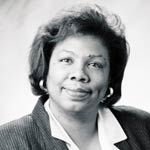

Emily Mobley was born in Georgia, but grew up in suburban Detroit. She set her sights on being a librarian at an early age. Mobley attended the University of Michigan (UM) where she earned her BA, and after a period of working for corporate libraries and at Wayne State University, she returned to UM and earned her PhD in Library Science. Mobley began her career at Purdue as Assistant to the Director of the Libraries in 1986. In 1989 she was promoted to full professor and was named the first Dean of Libraries. Mobley was also Purdue’s first Ester Ellis Distinguished Professor of Library Science (1997). Emily Mobley was the first African-American to hold a deanship at Purdue University.
During her tenure as Dean of the Libraries (1989-2004), Mobley provided oversight in moving the system towards the electronic era and pushed for growth of library collections to 2.3 million volumes. Among her accomplishments, Mobley played a crucial role in the acquisition of the addition to the Amelia Earhart Collection to Purdue's Archives and Special Collections unit, led a two year renovation of the Humanities, Social Science and Education Library, and helped the English department bring a literary leader to campus each semester. Prior to coming to Purdue, Mobley was library director with General Motors Institute. She also served as a library administrator at Wayne State University, General Motors Research Laboratories and Chrysler Corporation. Mobley was also a past president of the Special Libraries Association and served on the board of directors for the Association of Research Libraries.
During her tenure as Dean of the Libraries (1989-2004), Mobley provided oversight in moving the system towards the electronic era and pushed for growth of library collections to 2.3 million volumes. Among her accomplishments, Mobley played a crucial role in the acquisition of the addition to the Amelia Earhart Collection to Purdue's Archives and Special Collections unit, led a two year renovation of the Humanities, Social Science and Education Library, and helped the English department bring a literary leader to campus each semester. Prior to coming to Purdue, Mobley was library director with General Motors Institute. She also served as a library administrator at Wayne State University, General Motors Research Laboratories and Chrysler Corporation. Mobley was also a past president of the Special Libraries Association and served on the board of directors for the Association of Research Libraries.
Mary Marguerite Murphy
February 3, 1903 - April 30, 2004


Coming from her home in South Bend, Indiana, Mary Murphy graduated from Purdue in 1924 with a Bachelor of Science degree. During her time as an undergraduate, Mary was very involved with campus activities, including women’s sports. She played basketball and was a member of Theta Chi Gamma, Kappa Delta Pi, the Philalethean Literary Society, the Women’s Athletic Association, the Woman’s Press Club, the Purdue Girls’ Club, the Purdue Union Club, and the staff of the Exponent student newspaper.
Rosemary Anne Murphy
February 27, 1908 - August 23, 1969
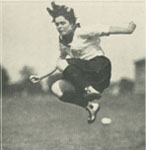

Rosemary Ann Murphy was born in South Bend, Indiana, in 1908. She was a prominent student athlete in the early days of women’s sports at Purdue. Graduating with a Bachelor of Science degree in 1929, Rosemary spent her undergraduate years involved in the Women’s Athletic Association, and playing soccer, basketball, and baseball. She also took part in the coed track meets and was one of the highest scoring individuals. In 1927, Rosemary served as the President of the Women’s Athletic Association and represented Purdue at the Athletic Conference of American College Women in Ithaca, New York. Outside of sports, Rosemary was also involved in Gold Peppers, Kappa Delta Pi, the Philalethean Literary Society, the Purdue Girls’ Club, Alpha Lambda Delta, and Theta Chi Gamma. She also won recognition as a Distinguished Student multiple times. Later records indicate that Rosemary continued her education to become a doctor and that she lived in Boston Massachusetts at the time of her death in 1969.
Betty Nelson
March 17, 1935 -


Originally from West Virginia, Betty M. Nelson received a bachelor's degree in psychology and sociology from the Women's Division of Virginia Polytechnic Institute and then a master's degree in student personnel administration from Ohio University. She served over 30 years on the staff of Purdue University, beginning in the Psychology Department before being asked to join Helen Schleman's staff in the Office of the Dean of Women. She served as Assistant and Associate Dean before being appointed Dean of Students to succeed Barbara I. Cook in 1987. During the 1970s and 1980s, much of Nelson's administrative energy was focused on the civil rights of those with disabilities and ensuring that campus was an accessible place for all students, faculty, and staff members. She was instrumental in the creation of Adaptive Programs (now the Disability Resource Center), which formed in response to the needs of students with disabilities. Nelson founded and chaired the Advisory Council on Disability Issues, a faculty and student advisory group to raise awareness of disability issues in the classroom. She was also a charter member of the Association on Higher Education and Disabilities (AHEAD) and a founding member of the Indiana Higher Education Committee on Disabled Students (later named IN-AHEAD). In addition to her advocacy efforts for the disabled, Nelson was instrumental in the establishment of the Student Leadership Development Program in the Office of the Dean of Students. She served in leadership positions in the National Association for Women Deans, Advisors, and Counselors; the NAWDAC Foundation, and the Indiana AWDAC. Nelson is active in community service, having served in leadership roles with the Community Foundation of Greater Lafayette, the Lafayette Rotary Club (as its first woman president), the Lafayette YWCA, Leadership Lafayette, and other local service organizations. Since her retirement, Nelson has provided leadership for the Purdue University Retirees Association. Some of Dean Nelson's awards and honors include the Sagamore of the Wabash, the Grand Marquis de Lafayette Award for Community Service, the Helen B. Schleman Gold Medallion, and the Special Boilermaker Award.
Esther Ellis Norton
May 14, 1905 - May 19, 1998
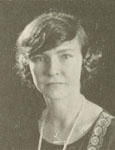

Norton is originally from Lafayette, Indiana and graduated with a BS from Purdue in 1927. While at Purdue, she participated in campus organizations such as Zeta Tau Alpha, the Y.W.C.A., and the Purdue Girls' Club. After graduation, Norton worked in governmental libraries and was a librarian in Cincinatti for 35 years. She returned to West Lafayette after her retirement and became an important benefactor of Purdue University. A distinguished professorship in the Purdue University Libraries was named in her honor.
Harriet Easterbrooks O'Shea
October 27, 1895 - January 25, 1986
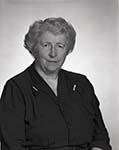

Harriet Easterbrooks O'Shea was born in 1895 in Wisconsin. Her family encouraged educational and cultural acchievement for Harriet and her three siblings. O'Shea earned her Bachelor's (1916) and Master's (1917) degrees at the University of Wisconsin. After completing her degrees, O'Shea worked in statistics analysis for the War Department and for various cities and states collecting survey data to support the creation of year-round schools. During this time, she also served as the head of the English department, school psychologist, and principal of the Children's University School in New York City. She also taught at Bryn Mawr where she was the acting department head, and at Mills College where she was the student presonnel adivsor and director of the preschool laboratory. She earned her PhD from Columbia University in 1931 with an emphasis on applied research.
O'Shea joined the faculty at Purdue University after completing her PhD in 1931, and remained there until 1964. During this time, she was promoted from associate professor, eventually earning the title of Professor Emeritus. At Purdue, she taugh classes in child and adolescent development and clinical psychology. Additionally, she expanded the teaching and clinical resources for related fields at the university, and helped establish the nursery school. O'Shea was committed to service at the University, also serving as the Women's Personnel Director, working as a psychologist in Psychological Services as the psychological clinic she established, and trained clinical psycholodists that came through the program. O'Shea's applied research interests focused on the unique needs of children, including the importance of early identification of issues and preventative care.
Throughout her career, O'Shea had an indelible impact on the study of Psychology through her service to the American Psychological Association (APA). She advocated for the distinction between school and educational psychology. She was instrumental in the the Thayer Conference, where she was provided a forum for her assertions that psychology had a role in the educational system. O'Shea was instrumental in the creation of the Indiana Psychological Association, and the attainment of legal professional status for psychologists in the state. She also helped with the organization of the International Council of Women Psychologists, and served as the organization's president for several terms.
After retiring from Purdue, O'Shea moved to Massachusetts where she served in a mental health program as well as an educational collaborative program. She shared her experiences in clinical techniques and counseling as a mentor, staff member, and consultant. Harriet Easterbrooks O'Shea died in 1986.
O'Shea joined the faculty at Purdue University after completing her PhD in 1931, and remained there until 1964. During this time, she was promoted from associate professor, eventually earning the title of Professor Emeritus. At Purdue, she taugh classes in child and adolescent development and clinical psychology. Additionally, she expanded the teaching and clinical resources for related fields at the university, and helped establish the nursery school. O'Shea was committed to service at the University, also serving as the Women's Personnel Director, working as a psychologist in Psychological Services as the psychological clinic she established, and trained clinical psycholodists that came through the program. O'Shea's applied research interests focused on the unique needs of children, including the importance of early identification of issues and preventative care.
Throughout her career, O'Shea had an indelible impact on the study of Psychology through her service to the American Psychological Association (APA). She advocated for the distinction between school and educational psychology. She was instrumental in the the Thayer Conference, where she was provided a forum for her assertions that psychology had a role in the educational system. O'Shea was instrumental in the creation of the Indiana Psychological Association, and the attainment of legal professional status for psychologists in the state. She also helped with the organization of the International Council of Women Psychologists, and served as the organization's president for several terms.
After retiring from Purdue, O'Shea moved to Massachusetts where she served in a mental health program as well as an educational collaborative program. She shared her experiences in clinical techniques and counseling as a mentor, staff member, and consultant. Harriet Easterbrooks O'Shea died in 1986.
Annie Smith Peck
October 19, 1850 - July 18, 1935
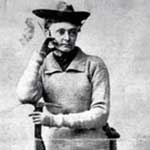

Annie Smith Peck was a Latin and elocution professor at Purdue from 1881-1883. Though her career at Purdue was brief, she earned recognition for her teaching skills from both students and faculty. Her real fame, however, involved her mountain-climbing capabilities, an interest she developed while pursuing classical studies in Germany. She scaled a number of moderate-sized mountains in Europe and in the United States, including Mount Shasta in California (14, 380 feet). In 1895, she climbed the Matterhorn, becoming the first woman, and quite possibly the first person ever, to do so. She was also the first American woman in the western hemisphere to climb higher than 18, 314 feet, upon scaling Mount Orizaba in Mexico.
In addition to being a successful mountaineer, Peck was also an aggressive supporter of women's rights, planting a ""Vote for Women"" sign at the top of Mount Coropuna (21,250 feet) at the age of 61. She kept climbing until the age of 84, the year before her death. The Lima (Peru) Geographical Society has named a mountain peak in her honor. She is also the author of four guidebooks: A Search for the Apex of America: High Mountain Climbing in Peru and Bolivia (1912), The South American Tour (1913), Industrial and Commercial South America (1922), and Flying Over South America: Twenty Thousand Miles by Air (1932). Peck's last book, Flying Over South America, includes rich black and white pictures from her travels, ranging from aerial views of different landscapes to people, and it is argued that her adventure by flight was the longest made by any North American at the time. She also used her air travels to serve as an example to those who were skeptical or afraid to fly, as she states, ""...it was merely a novel and delightful journey, on which I proceeded throughout the entire distance without a qualm."" Peck also thoughtfully writes, ""...in 1903, when I sailed for South America to climb one of the great peaks of the Andes, I did not dream of ever flying over or around them.""
In addition to being a successful mountaineer, Peck was also an aggressive supporter of women's rights, planting a ""Vote for Women"" sign at the top of Mount Coropuna (21,250 feet) at the age of 61. She kept climbing until the age of 84, the year before her death. The Lima (Peru) Geographical Society has named a mountain peak in her honor. She is also the author of four guidebooks: A Search for the Apex of America: High Mountain Climbing in Peru and Bolivia (1912), The South American Tour (1913), Industrial and Commercial South America (1922), and Flying Over South America: Twenty Thousand Miles by Air (1932). Peck's last book, Flying Over South America, includes rich black and white pictures from her travels, ranging from aerial views of different landscapes to people, and it is argued that her adventure by flight was the longest made by any North American at the time. She also used her air travels to serve as an example to those who were skeptical or afraid to fly, as she states, ""...it was merely a novel and delightful journey, on which I proceeded throughout the entire distance without a qualm."" Peck also thoughtfully writes, ""...in 1903, when I sailed for South America to climb one of the great peaks of the Andes, I did not dream of ever flying over or around them.""
Carolyn Peck
1953 -
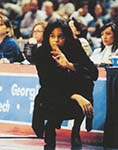

Carolyn Peck served as assistant coach (1996-1997) and head coach (1997-1999) for the Purdue University Women's Basketball team. In 1999, Peck led the Women's Basketball team to their first NCAA championship and Purdue's first national championship in any sport since 1961. With their NCAA Championship win, Peck became the first African-American woman coach to win a national championship in the United States. In 1999, Peck left Purdue for a position as head coach and general manager for the Orlando Miracles WNBA team.
Carolyn Cummings Perrucci
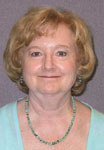

Carolyn Perrucci is a Professor of Sociology at Purdue University and specializes in studying families, work, sex and gender, aging, and education. She earned a BS in Sociology from Middle Tennessee State University in 1961 and went on to earn her MS (1963) and PhD (1965) from Purdue University. During her time at Purdue, Perrucci has also served as the Chair and Co-Chair of the Women's Studies Department, Associate Dean of the Graduate School from 1992-1998, and was head of the Department of Sociology from 1998 until 2003. In 1991, she received the Violet Haas Recognition Award from the Council on the Status of Women at Purdue University. She also received an Outstanding Teaching Award from the Department of Sociology and Anthropology. The School of Liberal Arts at Purdue recognized Perrucci in 1997 as a distinguished alumna, and the Women's Studies Department honored Perrucci by endowing the Carolyn C. Perrucci Undergraduate Achievement Award.
Nancy A. Bowden Peterson
circa 1940s -
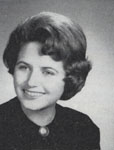

Nancy Bowden Perterson received her Bachelor of Science degree in Consumer and Family Sciences in 1965 from Purdue University. During her time at Purdue, she was very involved in extracurricular activities, including: Green Guard, Gold Peppers, Tomahawk, AWS Council, Home Ec Club, and the WRX Governing Board.
Doris Hurt Powers
January 17, 1927 - February 9, 2009
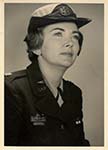

Doris Hurt Powers, known as ""Dodi,"" started flying at the age of 14 and received her commercial and flight instructor ratings by the time she was 20 years old.
After starting college as a music major at Southern Methodist University in Dallas, Texas, she transferred to Purdue University to join the first class of the new School of Aeronautics, graduating in 1949.
While her husband was in the military during the 1950s, Powers continued to teach flying in various capacities while living a globally mobile army family life with her husband and three children. Powers was active in the Civil Air Patrol and became a major and squadron leader. She also flew airplanes and worked as both a flight instructor and a check pilot. Due to the fact that women were not allowed to teach aviation in the military, Powers remained a civilian and instead taught aircraft, engines, and navigation to off-duty soldiers. She became the president and owner of both Test and Evaluation International Services, Inc. and of Shielding Technologies, Inc. She also served as the owner and president of T&E International, Inc.
After her husband's retirement from the army, the couple started two businesses together and Dodi started her own product research and development company called Shielding Technologies, Inc. Powers served on many boards and committees, was a fellow of the Society for Women Engineers, was recognized as a Purdue ""Old Master"" in 1995, received the Outstanding Aerospace Engineer award in 2006. Powers, and piloted a BT 13 airplane during a celebration by the Indiana Wing of the Commemorative Air Force in 2008. Doris Hurt Powers passed away in February of 2009.
After starting college as a music major at Southern Methodist University in Dallas, Texas, she transferred to Purdue University to join the first class of the new School of Aeronautics, graduating in 1949.
While her husband was in the military during the 1950s, Powers continued to teach flying in various capacities while living a globally mobile army family life with her husband and three children. Powers was active in the Civil Air Patrol and became a major and squadron leader. She also flew airplanes and worked as both a flight instructor and a check pilot. Due to the fact that women were not allowed to teach aviation in the military, Powers remained a civilian and instead taught aircraft, engines, and navigation to off-duty soldiers. She became the president and owner of both Test and Evaluation International Services, Inc. and of Shielding Technologies, Inc. She also served as the owner and president of T&E International, Inc.
After her husband's retirement from the army, the couple started two businesses together and Dodi started her own product research and development company called Shielding Technologies, Inc. Powers served on many boards and committees, was a fellow of the Society for Women Engineers, was recognized as a Purdue ""Old Master"" in 1995, received the Outstanding Aerospace Engineer award in 2006. Powers, and piloted a BT 13 airplane during a celebration by the Indiana Wing of the Commemorative Air Force in 2008. Doris Hurt Powers passed away in February of 2009.
Sarah Price
April 2, 1929 - October 25, 2011


Sarah Price (nee Jefferson) was born on April 2, 1929 in Ripley, Tennessee. Her parents were Thomas Jefferson and Lola Brown. She married Horace Ray Rounds, Sr. and had eight children: James, Virginia, Ray, Laura, David, Jenny Lynn, Jennifer, and Richard. In 1949, they moved to Lafayette Indiana. Sarah later remarried Clarence Price.
In 1963, Price drove to Washington with a Purdue professor, six students, and two Lafayette residents to participate in Dr. Martin Luther King Jr.'s march on Washington.
Starting in 1969, Price worked at Purdue University for 26 years, first running the cafeteria at the Purdue airport and then at the cafeteria in the Purdue Memorial Union. She later opened her own business in Lafayette, Sarah's Fabric Shop, which was located at 1007 Union Street.
Price was an active community member. In 1994, she spoke at a forum titled ""The Ku Klux Klan and The Struggle Against Racism."" She was also active in the Lafayette Crisis Center, served on the Board of Directors of the Greater Lafayette Community Center, and was a member of the Southern Baptist Church. In 1997, Price was appointed to the Black Cultural Center advisory council.
Later in life, Price continued to be politically active and protest for civil rights. In 2008, she worked for Barack Obama's political campaign and attended his inauguration in Washington and in 2009, she was honored as a remarkable woman at the NAACP Indiana State Conference. Price died on October 25, 2011.
In 1963, Price drove to Washington with a Purdue professor, six students, and two Lafayette residents to participate in Dr. Martin Luther King Jr.'s march on Washington.
Starting in 1969, Price worked at Purdue University for 26 years, first running the cafeteria at the Purdue airport and then at the cafeteria in the Purdue Memorial Union. She later opened her own business in Lafayette, Sarah's Fabric Shop, which was located at 1007 Union Street.
Price was an active community member. In 1994, she spoke at a forum titled ""The Ku Klux Klan and The Struggle Against Racism."" She was also active in the Lafayette Crisis Center, served on the Board of Directors of the Greater Lafayette Community Center, and was a member of the Southern Baptist Church. In 1997, Price was appointed to the Black Cultural Center advisory council.
Later in life, Price continued to be politically active and protest for civil rights. In 2008, she worked for Barack Obama's political campaign and attended his inauguration in Washington and in 2009, she was honored as a remarkable woman at the NAACP Indiana State Conference. Price died on October 25, 2011.
Alysa Christmas Rollock
May 10, 1959 -
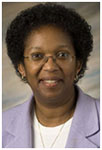

Alysa Christmas Rollock is Purdue's Vice President for Ethics and Compliance. As the Vice President for Ethics and Compliance, Rollock oversees the University's Affirmative Action Office, the Diversity Resource Office, and the Women's Resource Office. She is also responsible for the development of university wide equal opportunity and access policies and programs. This position reflects her changing role at the university, where she was previously the Vice President for Human Relations from 1999-2008. Rollock earned her undergraduate degree form Princeton (1981) and her law degree from the Yale University School of Law (1984). After graduating from Yale, Rollock worked for firms in New York City and Indianapolis. In 1992, she was appointed associate professor of law at Indiana University-Bloomington, where her research and teaching were concentrated in the areas of corporate law, corporate finance, securities regulation, and professional responsibility. In July 1998, Rollock joined Purdue as Interim Vice President for Human Relations and an associate professor of management. She is a member of the Board of Directors of the Lafayette-West Lafayette Economic Development Corporation and YMCA Camp Tecumseh. Rollock also served on the Indiana State Ethics Commission from 1996-2003.
Mary Opal Otten Rose
December 9, 1899 - April 20, 1997


Mary Opal Otten was born in 1899 in Rossville, Indiana. Rose earned a Bachelor of Science in Home Economics in 1922. Mary was the class historian and secretary for the Class of 1922, President of the Eurodelphian Literary Society and a member of Pi Beta Phi, Purdue Girls Club, Home Economics Society, May Queen, YWCA, Independent Literary Society, and Purdue Union. After marrying Frederick Rose in 1924, the two remained in Lafayette and had three children together. Rose died in Lafayette in 1997.
Helen Blanche Schleman
June 21, 1902 - February 5, 1992
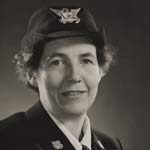

Helen Blanche Schleman was born in 1902 to William and Blanche Schleman in Francesville, Indiana. The Schleman family moved to Valparaiso, Indiana in 1912, where they owned an 800 acre farm, Breyfogle Ranch. William also had a real estate and insurance business; an ice company; and was involved in land development, including the creation of a subdivision with an accompanying golf course. Schleman entered college at Northwestern University in 1920 and earned her A.B. in English literature and Philosophy in 1924. While at Northwestern, she was very involved in sports, the YWCA, student government, Mortar Board, and was the president of the Women's Athletic Association. On the advice of one of her professors, she attended Welleslay College where she earned an M.S. and a certificate in Hygiene and Physical Education (1928). Schleman's first teaching appointment was at Ohio State University, from 1926-1932, in the Department of Physical Education for Women. Before coming to Purdue, she wrote her book Group Golf Instruction in 1933. Helen Schleman's long tenure at Purdue began in 1934, when she was hired as the Director of Residence Halls for Women and met her life-long friend Dorothy Stratton. She also earned a second Master's degree from Purdue ni Psychology and Education in 1934. In addition to her role in the residence halls, she served as the Director of the Housemothers Training School at Purdue. After the United States' entry into World War II, Schleman took a military leave of absence from Purdue to serve in the Women's Reserve of the U.S. Coast Guard (SPARS), where she eventually acchieved the rank of Captain while serving with the Navy. Schleman returned to Purdue in 1947, when she began her tenure as Dean of Women. As Dean of Women, she was able to provide support and mentorship for women students who had often been overlooked. Helen Schleman, acknowledged as an "unapologetic feminist" fought hard for the rights and opportunities of women students at Purdue. During her time as Dean, she was instrumental in terminating the curfew for women students, starting a freshman conference program for women, and fighting for equity in the university's hiring and salary practices. In her continued servive to women at Purdue, she established Span Plan, a program that provided scholarships and support to non-traditional women students in an effort to provide them opportunities for career advancement after their children entered school. Over the years, Helen Schleman received many awards, including honorary doctorates from Purdue and Valaparaiso University. She was also very committed to professional and community service, particularly to organizations that served the interests of Women's Rights and Equality. She published many articles and books, and frequently gave speeches to local and national organizations on women's rights and education. Schleman Hall and the Schleman Award were both named in her honor. Schleman remained an active member in the West Lafayette community until her death in 1992.
Esther Martia Schlundt
September 9, 1905 - November 14, 1968


Esther Martin Schlundt was born in 1905 to Herman and Martha Schlundt in Columbia, Missouri. Schlundt earned her AB from the University of Missouri in 1927 with high honors. She then went on to earn a Bachelors of library science in 1929 from the University of Illinois. Schlundt came to Purdue University in 1929 and was hired as a general assistant in the library. In 1941, Schlundt worked as a cataloger. That summer she took a leave of absence from the university, so that she could finish a Master's of Library Science at the University of Michigan. By 1942, Schlundt was named the Head Cataloger of Purdue Libraries. She retired in 1965 from her position as Head of the Readers Services Administration at Purdue. The Indiana Library Foundation established the Esther Schlundt Memorial Scholarship in her honor.
Hilda M. Schwehn
November 16, 1899 - May 29, 1982
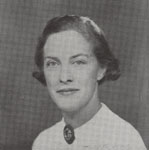

Hilda Schwehn (1899) graduated from Olivet College in 1923 with a BA. She was hired by Purdue University in 1936 as a graduate assistant in the Physical Education for Women Department. During her years as a graduate assistant, Schwehn taught freshman and sophomore physical education classes, served as the faculty sponsor of Triton (the honorary swimming club for women), and was a hostess at W.R.H. South. In 1944, Schwehn became an assistant professor, and became an associate professor in Physical Education for Women in 1948. During her sabbatical in 1955, Scwehn traveled to the Scandinavian Seminar for Cultural Studies and Education in Copenhagen, Denmark and focused on "activities in physical education and allied subjects and projects of wide cultural value." In 1963, after the retirement of Professor Helen Hazleton, Schwehn was named the Acting Head of the Department of Physical Education for Women. She retired in 1968. The Hilda M. Schwehn Female Physical Education Teacher Award was named in her honor.
Dolores Janet Cooper Shockley
April 21, 1930 - October 10, 2020
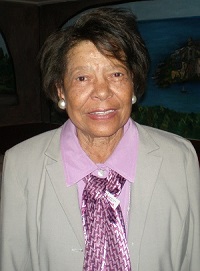

Dr. Dolores Janet Cooper Shockley was born in Clarksdale, Mississippi. Dr. Shockley was the first African American woman to earn a doctorate degree from the School of Pharmacy at Purdue University and the first African American woman to earn a doctorate in pharmacology in the United States.
Carolyn Ernestine Shoemaker
1868 - 1933
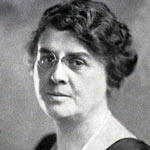

Carolyn Ernestine Shoemaker earned a Bachelor of Science degree from Purdue in 1888, and later a master's degree in 1889. After spending several years caring for her incapacitated mother, Shoemaker found her way back to Purdue in 1900, taking on a position as professor of English Literature with the encouragement of Emma McRae, also a professor of English Literature and widely known "Lady Principal" of the University. In 1913, President Winthrop E. Stone offered Shoemaker the position of Dean of Women in addition to her teaching responsibilities. Among her accomplishments, Dean Shoemaker is remembered for her unceasing efforts in raising funds for the construction of the Purdue Memorial Union and ensuring that the alumni association remained an active organization on campus.
Nina Verne Short
1892 - ?
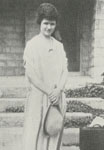

Short came to Purdue from Hillsboro, Indiana. She graduated in 1915 with a BS and proceeded to teach at Fowler and Crawfordsville schools for two years. She was also County Supervisor of Domestic Science and acted as County Home Demonstration Agent in Wayne County, Indiana for one year. When the United States entered World War I, Short went to the Garfield Memorial Hospital in Washington, D.C. to gain experience in dietetics. After the war ended, Short became the resident manager for the convalescent place of the District of Columbia Red Cross. As she wrote, "The last position left me in Washington with a desire to know more of the East. Consequently, I joined the exodus of war workers to New York City." Although Short was warned by her friends that thousands of girls were unable to find jobs in New York, she was offered three upon her arrival. She eventually became executive secretary of the Otsego County Tuberculosis Association in up-state New York, through which she taught public health, instructed school children on healthy behaviors, helped with the tuberculosis program, and assisted in the establishment of a community health center. Short was effectively the connecting link between the State Association and local organizations in the counties in the eastern half of New York State. After becoming "homesick for Indiana," Short moved back to the Midwest and became the health director of the Tippecanoe County Tuberculosis Association. Eventually, Short returned to New York and became associated with the State Charities Aid Association.
Doris Adeline McCampbell Steider
April 10, 1924 - February 28, 2010


Steider was born on April 10, 1924. She attended Purdue University and graduated with a BS in Home Economics in 1945. Her major area of study was applied design. After graduation, Steider spent some time as a fashion designer. In order to fulfill her desire to focus on art, Steider returned to school and earned an MFA from the University of New Mexico. While studying for her graduate degree, she chose to focus on realism, which was an unpopular decision with her graduate committee. As a compromise, Steider agreed to learn the egg tempera style, which involved layering as many as forty coats of pigment mixed with beaten eggs. This style, originally a favorite of Italian Renaissance painters, had largely fallen into disuse. Once she mastered the technique, Steider actually grew to love it and used it for the rest of her career. As she stated, "I find it very difficult to talk about what I do. I express myself in my art. Painting for me is like breathing and sleeping. It feeds my spirit." Over the course of the next few decades, Doris became an internationally recognized artist and the star of over eighty one-woman art shows, in addition to selling her work to more than 2,500 collectors. She appeared in nearly 200 major exhibitions and won more than seventy awards, including a Distinguished Alumni award from Purdue University. Steider was a pillar of the art community in New Mexico, so much so that a street has been named in her honor in Albuquerque. Steider also practiced photography and traveled the world with her husband, Carroll McCampell, who she married in 1972. She also published a book titled The Egg Tempera Landscapes of Doris Steider in 1996. Steider passed away in 2010, leaving behind a large body of artwork.
Evaleen Stein
October 12, 1863 - December 11, 1923
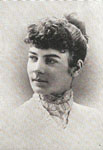

Evaleen Stein was born in 1863 to John A. Stein and Virginia Tomlinson Stein in Lafayette, Indiana. Her brother was Orth Stein. The Stein family was well respected within the greater Lafayette community due to John Stein’s law practice, involvement in local and state politics, his role in the establishment of Purdue University, and his involvement with the Board of Trustees once the university was established. Virginia Stein was also well respected due to her position at the Lafayette library after the passing of her husband. Both Orth and Evaleen were known for their writing, although Orth’s writing was primarily journalistic in nature.
Ms. Stein’s writing career got its start with the publishing of several of her poems in Indianapolis newspapers. As she gained more attention for her work from better known local authors such as James Whitcomb Riley and George Ade, she was eventually able to begin publishing her poems in collected volumes. Later, Stein transitioned to writing and illustrating children’s stories. Her status and standing within the local community and among other Indiana authors was celebrated at a program organized in her honor at Purdue University: An Authors’ Reading. Notable authors such as George Ade, James Whitcomb Riley, Charles Major, and Meredith Nicholson read from their works and raised $1000 on Stein’s behalf so that she might travel to Europe. Stein passed away at the age of sixty in 1923.
Ms. Stein’s writing career got its start with the publishing of several of her poems in Indianapolis newspapers. As she gained more attention for her work from better known local authors such as James Whitcomb Riley and George Ade, she was eventually able to begin publishing her poems in collected volumes. Later, Stein transitioned to writing and illustrating children’s stories. Her status and standing within the local community and among other Indiana authors was celebrated at a program organized in her honor at Purdue University: An Authors’ Reading. Notable authors such as George Ade, James Whitcomb Riley, Charles Major, and Meredith Nicholson read from their works and raised $1000 on Stein’s behalf so that she might travel to Europe. Stein passed away at the age of sixty in 1923.
Judith Ann Stock
May 5, 1946 -


Judith Ann Stewart-Stock (b. 1946), born in Putnam, Indiana, attended Jefferson High School in Lafayette and graduated in 1964. Stock attended Purdue University where she earned a BA in Elementary Education. She went on to work as an elementary school teacher but was not satisfied with that vocation. Stock also worked as a flight attendant for Pan American Airways. During the 1980 presidential election campaign, Stock served as the Deputy Press Secretary to Vice President Walter F. Mondale. Afterward, she became the Vice President of Corporate Communications and Public Relations at Bloomingdale's Department Stores.
After leaving the private sector, Stock returned to politics in 1993 as the Deputy Assistant to President Bill Clinton and the Social Secretary at the White House, a position that she held until September 1997. That month she became Vice President of Institutional Affairs at the John F. Kennedy Center for the Performing Arts. Through her work at the Kennedy Center, Stock helped to promote the Center's national and international profile and also managed the Center's International Arts Management Programs. Stock was nominated by President Barack Obama to become the Assistant Secretary of State for the Bureau of Educational and Cultural Affairs, and was confirmed on June 17, 2010. She served in that role through September 2013, and worked to foster international bonds between students and professionals from the United States and abroad through the support of exchange programs in over 160 countries.
After leaving her appointed position in 2013, Stock joined the board of the Americans for the Arts Action Fund, an organization that supports nonprofit arts organizations. Stock is committed to service in the non-profit sector and currently holds several leadership positions: The Women’s Foreign Policy Group (Chair), The White House Historical Association (Retail Advisory Chair), IREX, Meridian International (Co-Chair Development), and Americans for the Arts (Public Sector Task Force Chair).
After leaving the private sector, Stock returned to politics in 1993 as the Deputy Assistant to President Bill Clinton and the Social Secretary at the White House, a position that she held until September 1997. That month she became Vice President of Institutional Affairs at the John F. Kennedy Center for the Performing Arts. Through her work at the Kennedy Center, Stock helped to promote the Center's national and international profile and also managed the Center's International Arts Management Programs. Stock was nominated by President Barack Obama to become the Assistant Secretary of State for the Bureau of Educational and Cultural Affairs, and was confirmed on June 17, 2010. She served in that role through September 2013, and worked to foster international bonds between students and professionals from the United States and abroad through the support of exchange programs in over 160 countries.
After leaving her appointed position in 2013, Stock joined the board of the Americans for the Arts Action Fund, an organization that supports nonprofit arts organizations. Stock is committed to service in the non-profit sector and currently holds several leadership positions: The Women’s Foreign Policy Group (Chair), The White House Historical Association (Retail Advisory Chair), IREX, Meridian International (Co-Chair Development), and Americans for the Arts (Public Sector Task Force Chair).
Beverley Stone
June 10, 1916 - April 16, 2003
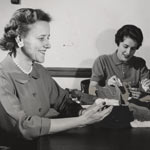

Beverley Stone, or Bev Stone, began her 24-year career at Purdue in 1956, serving in the Office of the Dean of Women as an advisor to student organizations such as the Student Government, Panhellenic Association, and Mortar Board. In 1968, she succeeded Helen Schleman as Dean of Women with the rank of assistant professor. During the 1960s Stone ensured that students' voices were heard, requiring that they be appointed to faculty committees and held ""speaking seats"" at the Board of Trustees meetings.
In 1974, after the Dean of Women and Dean of Men offices were combined, Stone was named Purdue's first Dean of Students, the first woman ever to hold such a position at a Big Ten university. It was also in this year that she co-authored a book with her colleague Barbara Cook entitled ""Counseling Women"". Stone was an active member of many professional and community organizations and recipient of numerous honors and awards.
In 1980, Stone retired, and Barbara Cook became her successor as Dean of Students. A sculpture honoring both women was installed between Schleman and Hovde Halls on the Purdue University West Lafayette campus. After her retirement from Purdue University, Stone remained active in community affairs and successfully ran for City Council in West Lafayette in 1983; she served from 1984 to 1988.
In 1974, after the Dean of Women and Dean of Men offices were combined, Stone was named Purdue's first Dean of Students, the first woman ever to hold such a position at a Big Ten university. It was also in this year that she co-authored a book with her colleague Barbara Cook entitled ""Counseling Women"". Stone was an active member of many professional and community organizations and recipient of numerous honors and awards.
In 1980, Stone retired, and Barbara Cook became her successor as Dean of Students. A sculpture honoring both women was installed between Schleman and Hovde Halls on the Purdue University West Lafayette campus. After her retirement from Purdue University, Stone remained active in community affairs and successfully ran for City Council in West Lafayette in 1983; she served from 1984 to 1988.
Dorothy Stratton
March 24, 1899 - September 17, 2006
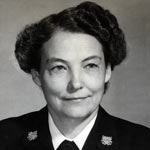

Dorothy Constance Stratton served as Dean of Women at Purdue from 1933 until 1946, at a time in which the enrollment of women students jumped from less than 500 to more than 1,400. During her tenure at Purdue, she oversaw the creation of a liberal science program for women in the School of Science as well as an employment placement center. She helped established the Housemother Training School that gave intensive training to fraternity and sorority housemothers from across the United States.
In 1942, during the Second World War, Stratton took a military leave of absence from Purdue and was commissioned to create and direct the Women’s Reserve of the Coast Guard, also known as SPARS (an acronym she coined based on the phrase ""Semper Paratus, Always Ready""). Upon her retirement from the military in 1946, she was awarded a Legion of Merit Medal for her contributions to women in the armed forces. Stratton went on to serve as the first director of personnel at the International Monetary Fund and then later as an executive director of the Girl Scouts of the America until her retirement in 1960. Stratton passed away on September 17, 2006.
In 1942, during the Second World War, Stratton took a military leave of absence from Purdue and was commissioned to create and direct the Women’s Reserve of the Coast Guard, also known as SPARS (an acronym she coined based on the phrase ""Semper Paratus, Always Ready""). Upon her retirement from the military in 1946, she was awarded a Legion of Merit Medal for her contributions to women in the armed forces. Stratton went on to serve as the first director of personnel at the International Monetary Fund and then later as an executive director of the Girl Scouts of the America until her retirement in 1960. Stratton passed away on September 17, 2006.
Betty Julow Suddarth


Betty M. Suddarth worked at Purdue University from 1951-1996, first in admissions research at Purdue University and latr as Purdue's first female registrar, a position she held from 1980 until 1994. Her research focused on student services, curriculum, recruitment, and enrollment. Suddarth received the Indiana Association of Collegiate Registrars and Admissions Officers Distinguished Service Award in 1988. Prior to receiving the award, she served as the Association's president in 1986. Suddarth retired as registrar in 1994 and, after staying on for two more years, officially retired in 1996 at which point the Purdue Board of Trustees approved Suddarth's emeritus status. Suddarth also served as the president of the Purdue University Retirees Association from 2007-2008.
Gertrude Sunderlin
August 27, 1894 - June 20, 1990
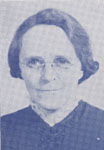

Gertrude Sunderlin was born in 1894 in Iowa, where she lived for much of her early life and after her retirement from Purdue. She earned her Bachelor's degree in Home Economics (with honors) from Iowa State University in 1919; this degree took some time to complete because she took alternate years off to teach. After teaching for several years, she earned her Master's degree in Household Bacteriology from Iowa State in 1926 and gained the attention of the Ball Jar Company who offered support for her PhD work. Her PhD in Bacteriology and Foods and Nutrition was completed in 1928 with her dissertation titled: Studies in Home Canning: I, Some Factors Affecting the Keeping Qualities of Vegetables and Meats Canned by the Hot Water Bath Method. II, Indices of Spoilage in Home-Canned Foods. Sunderlin holds the distinction of being the first woman to receive a PhD from Iowa State University.
Before beginning her tenure at Purdue, Sunderlin was sponsored by the Purnell Research Foundation for post-doc work at Louisiana State University from 1928-1931. She began at Purdue in 1931 in the College of Home Economics Experimental Foods Department, where she remained until her retirement in 1954. While at Purdue, she oversaw the development of the Master Mix, a basic starting mix for baked goods that was made in the home and could be used for cakes, cookies, muffins, etc. This mix was a precursor for several more specific ""master"" mixes as well as modern commercially available baking mixes. Also developed under her mentorship were formulas for freezing jams and dough, and many other time-saving techniques or methods in the kitchen. One student, Ruth Siems, is credited with the invention of Stove Top stuffing. Her work as well as the work she supervised at Purdue seems to have been instrumental in the development of what we today call convenience foods, making Sunderlin instrumental in the development of modern food culture. Dr. Sunderlin died in Iowa in 1990 at the age of 96.
Before beginning her tenure at Purdue, Sunderlin was sponsored by the Purnell Research Foundation for post-doc work at Louisiana State University from 1928-1931. She began at Purdue in 1931 in the College of Home Economics Experimental Foods Department, where she remained until her retirement in 1954. While at Purdue, she oversaw the development of the Master Mix, a basic starting mix for baked goods that was made in the home and could be used for cakes, cookies, muffins, etc. This mix was a precursor for several more specific ""master"" mixes as well as modern commercially available baking mixes. Also developed under her mentorship were formulas for freezing jams and dough, and many other time-saving techniques or methods in the kitchen. One student, Ruth Siems, is credited with the invention of Stove Top stuffing. Her work as well as the work she supervised at Purdue seems to have been instrumental in the development of what we today call convenience foods, making Sunderlin instrumental in the development of modern food culture. Dr. Sunderlin died in Iowa in 1990 at the age of 96.
Lena Aldine Sutton
February 15, 1882 - April 19, 1966
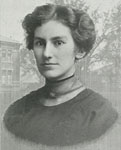

Lena Aldine Sutton came to Purdue from Lafayette, Indiana. Sutton spent some time in Paris and was enrolled in Latin classes at Indiana University before coming back to Lafayette to enroll at Purdue University. While at Purdue, she distinguished herself as a bright student. Having at least some knowledge of French, Sutton became an understudy of Professor Pauline Mariotte-Davies. She also excelled in Economics. Sutton was also involved in the Philalethean Society, in the Purdue Girls' Club, and in the Y.W.C.A. Sutton earned her BS in Science from Purdue University in 1911. She was one of six students in good standing who was chosen to present her thesis abstract at the 1911 commencement ceremony. She was the only woman chosen to do so. After graduating from Purdue, Sutton co-authored a publication titled, "The Efficiency of the Preparation of Ether from Alcohol and Sulfuric Acid" in 1913.
May Thilda Swenson
May 28, 1913 - December 4, 1989


Swenson was born in Logan, Utah on May 28, 1913. She was the eldest of ten children born to Swedish immigrants. Swenson's father worked as a professor of mechanical engineering at Utah State University. As the predominant language of the Swenson household was Swedish, Swenson grew up learning English as a second language.
She attended Utah State University and graduated with a BS in 1934. After graduating, she worked for a year as a journalist in Utah. In 1935, Swenson moved to New York City and worked at various jobs to earn money to support her writing. Swenson's first collection of poems was published in 1954. The collection, titled Another Animal, won her recognition in the literary world. Altogether, more than a dozen of Swenson's works for both adults and young readers were published both during her life and posthumously. Swenson worked as Writer-in-Residence at several universities, including: Purdue University, Bryn Mawr, the University of North Carolina, the University of California at Riverside, and Utah State University. Her work was supported by funding from the Guggenheim, Ford, Rockefeller, and MacArthur Foundations, in addition to a National Foundation for the Arts grant.
Swenson also received the Shelley Memorial Award from the Poetry Society of America, the Bollingen Prize from Yale University, and an Award in Literature from the National Institute of Arts and Letters. In 1967, she received a Distinguished Service Gold Medal from Utah State University, and in was awarded an honorary doctor there in 1987. In addition to the many awards she received, Swenson served as the Chancellor of the Academy of American Poets (1980-1989). Swenson passed away in 1989 in Oceanview, Delaware and was buried in Utah.
She attended Utah State University and graduated with a BS in 1934. After graduating, she worked for a year as a journalist in Utah. In 1935, Swenson moved to New York City and worked at various jobs to earn money to support her writing. Swenson's first collection of poems was published in 1954. The collection, titled Another Animal, won her recognition in the literary world. Altogether, more than a dozen of Swenson's works for both adults and young readers were published both during her life and posthumously. Swenson worked as Writer-in-Residence at several universities, including: Purdue University, Bryn Mawr, the University of North Carolina, the University of California at Riverside, and Utah State University. Her work was supported by funding from the Guggenheim, Ford, Rockefeller, and MacArthur Foundations, in addition to a National Foundation for the Arts grant.
Swenson also received the Shelley Memorial Award from the Poetry Society of America, the Bollingen Prize from Yale University, and an Award in Literature from the National Institute of Arts and Letters. In 1967, she received a Distinguished Service Gold Medal from Utah State University, and in was awarded an honorary doctor there in 1987. In addition to the many awards she received, Swenson served as the Chancellor of the Academy of American Poets (1980-1989). Swenson passed away in 1989 in Oceanview, Delaware and was buried in Utah.
Joyce Carol Thomas
May 25, 1938 - August 13, 2016


Thomas was born on May 25, 1938 in Ponca City, Oklahoma. She was the fifth child of nine in a family of migrant cotton pickers. During her youth, Thomas spent much of her time working in the cotton fields alongside her parents. Because of the migratory nature of her parents' employment, Thomas often missed the beginning of the school year in order to work. Despite this misfortune, however, Thomas became an avid reader.
She recalls her early infatuation with language in an interview, saying, ""My older brothers used to read to me and I'd get very quiet. I would become totally engaged with the words. When the minister preached, I heard poetry. In Sunday school and Bible study, I heard poetry. Even the town drunk spoke in poetry that only I could decipher."" When Thomas was 10, her family moved to Tracy, California and began picking vegetables. As a result, Thomas met a number of Mexican immigrant workers from whom she learned Spanish.
Thomas attended San Francisco City College and the University of San Francisco. She later earned a BA in Spanish at San Jose State College in 1966. In 1967, she earned an MA in Education from Stanford University. After graduation, Thomas became a middle school Spanish teacher in Palo Alto, but eventually accepted a faculty position at San Jose State College in 1969.
When Thomas left San Jose in 1972, she worked at a number of different universities, including Purdue University, Contra Costa College, the University of Tennessee, and California State University. While at Purdue, Thomas taught classes in English such as the Literature of Black America, and Creative Writing.
In addition to her work as an educator, she also became a published author during the 1970s. Several volumes of her poetry were published beginning in 1973, and four of her dramatic works were produced in San Francisco and Berkeley during the late 1970s. In 1982, Thomas published her first major work of fiction, Marked by Fire, a book that won the National Book Award and the American Book Award. Since her successful initial effort, Thomas has written and edited numerous other books and collections. Joyce Carol Thomas died in 2016 in California.
She recalls her early infatuation with language in an interview, saying, ""My older brothers used to read to me and I'd get very quiet. I would become totally engaged with the words. When the minister preached, I heard poetry. In Sunday school and Bible study, I heard poetry. Even the town drunk spoke in poetry that only I could decipher."" When Thomas was 10, her family moved to Tracy, California and began picking vegetables. As a result, Thomas met a number of Mexican immigrant workers from whom she learned Spanish.
Thomas attended San Francisco City College and the University of San Francisco. She later earned a BA in Spanish at San Jose State College in 1966. In 1967, she earned an MA in Education from Stanford University. After graduation, Thomas became a middle school Spanish teacher in Palo Alto, but eventually accepted a faculty position at San Jose State College in 1969.
When Thomas left San Jose in 1972, she worked at a number of different universities, including Purdue University, Contra Costa College, the University of Tennessee, and California State University. While at Purdue, Thomas taught classes in English such as the Literature of Black America, and Creative Writing.
In addition to her work as an educator, she also became a published author during the 1970s. Several volumes of her poetry were published beginning in 1973, and four of her dramatic works were produced in San Francisco and Berkeley during the late 1970s. In 1982, Thomas published her first major work of fiction, Marked by Fire, a book that won the National Book Award and the American Book Award. Since her successful initial effort, Thomas has written and edited numerous other books and collections. Joyce Carol Thomas died in 2016 in California.
Orpha Mae Huffman Thomas
1905 or 1906 - 1954


Thomas was the first woman to earn a PhD in Engineering from Purdue University. She graduated in 1946 with a PhD in Industrial Engineering. Her thesis was titled, "A Scientific Basis for the Design of Institutional Kitchens." Aside from being the first woman to earn a PhD in Purdue's School of Engineering, Thomas was also the third person to receive a PhD in Industrial Engineering. With Purdue's own Lillian Gilbreth and Eleanor Clyme, Thomas would go on to publish numerous books on management, including Management in the Home: Happier Living Through Saving Time and Energy and Scientific Management in the Home: The Empress's New Clothes. Thomas eventually became a professor at Columbia University's Teacher's College. She espoused the view that "every household should be organized on an assembly line plan."
Renee Thomas
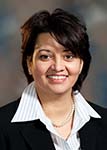

Renee Thomas was born and raised in Cape May, New Jersey. She earned her bachelor's degree from the College of New Jersey, majoring in Political Science and African Studies. After graduation, Thomas worked as Assistant Director for the Office of Affirmative Action at Ohio University, where she also earned her master's degree. In 1990, she came to Purdue’s Black Cultural Center (BCC) and in 1996 became the director. In 1999, Thomas led fundraising efforts and oversaw the design and construction of the new facility for the BCC.
Building on the work of former BCC director, Tony Zamora, Thomas continued the academic mentorship of African-American students at Purdue and the support of the BCC’s performing arts groups, the Black Voices of Inspiration, the Jahari Dance Troupe, and the Haraka Writers. Thomas engaged significant political and cultural leaders to speak and teach at the BCC. She also established several research programs with visits to historical and cultural sites important to African-American history and culture in the US. Thomas also founded the Ford Learning Research Center in the Purdue BCC library.
In addition to her work at the BCC, Thomas has served on the board of directors for Leadership Lafayette and the YWCA, the Eli Lilly community advisory panel, Tippecanoe Arts Federation's director's roundtable and the Hanna Community Center's advisory council. Thomas has received numerous awards for her work, including the YWCA Salute to Women Award, the 2007 Purdue Martin Luther King Jr. Dreamer Award, Trenton State College Distinguished Alumni Award, Purdue Black Graduate Association Staff Leadership Award, and the Tippecanoe County Minority Health Coalition Award for Community Service.
Building on the work of former BCC director, Tony Zamora, Thomas continued the academic mentorship of African-American students at Purdue and the support of the BCC’s performing arts groups, the Black Voices of Inspiration, the Jahari Dance Troupe, and the Haraka Writers. Thomas engaged significant political and cultural leaders to speak and teach at the BCC. She also established several research programs with visits to historical and cultural sites important to African-American history and culture in the US. Thomas also founded the Ford Learning Research Center in the Purdue BCC library.
In addition to her work at the BCC, Thomas has served on the board of directors for Leadership Lafayette and the YWCA, the Eli Lilly community advisory panel, Tippecanoe Arts Federation's director's roundtable and the Hanna Community Center's advisory council. Thomas has received numerous awards for her work, including the YWCA Salute to Women Award, the 2007 Purdue Martin Luther King Jr. Dreamer Award, Trenton State College Distinguished Alumni Award, Purdue Black Graduate Association Staff Leadership Award, and the Tippecanoe County Minority Health Coalition Award for Community Service.
Ramoth Huff Trask
May 31, 1896 - December 1973
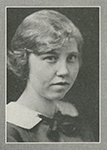

Ramoth Huff graduated from Purdue University in 1920 with a Bachelor of Science in Pharmacy. She was a member of the Alpha Chi Omega, Alpha Beta Chapter sorority and was sorority sisters with Elizabeth Speirs, with whom she became life-long friends. Huff married fellow alumni, Verne Trask.
After graduation, Trask worked as a chemist and laboratory technician in Washington, DC, Pitssburgh, PA, and Indianapolis, IN, where her and Verne remained until their deaths. Trask also earned her student's pilot license in 1928 and was permitted to pilot solo practice flights.
Ramoth Trask died on December 18, 1973, preceded in death by her husband. Ramoth and Verne Trask established The Trask Venture Fund at Purdue in 1974 through an estate gift.
After graduation, Trask worked as a chemist and laboratory technician in Washington, DC, Pitssburgh, PA, and Indianapolis, IN, where her and Verne remained until their deaths. Trask also earned her student's pilot license in 1928 and was permitted to pilot solo practice flights.
Ramoth Trask died on December 18, 1973, preceded in death by her husband. Ramoth and Verne Trask established The Trask Venture Fund at Purdue in 1974 through an estate gift.
Ruth Grubb Vaught
1911 - October 18, 1986
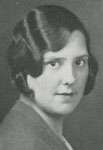

Ruth (Grubb) Vaught was a home economics student in the late 1920s and early 1930s. She graduated with her B.S. in 1932. While at Purdue, she was a member of Beta Phi Alpha, the WAA, the YWCA, and the Purdue Religious Council. She married Leslie L. Vaught in 1932, shortly before graduating from Purdue, and settled in West Lafayette.
Janice Voss
October 8, 1956 - February 6, 2012
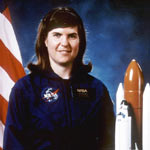

Dr. Janice Voss was born on October 8, 1956 to James and Louise Voss in South Bend, Indiana. Voss attended Minnechaug Regional High School in Wilbraham, Massachusetts and graduated from Purdue University with a Bachelor of Science in Engineering Science in 1975. She then earned a Master of Science in Electrical Engineering, and a Doctorate in Aeronautics/Astronautics from the Massachusetts Institute of Technology in 1977 and 1987, respectively. Having worked on computer simulations and as a crew trainer at the NASA Johnson Space Center during her graduate studies, Voss took a position at the Orbital Sciences Corporation upon completing her doctorate, where she was involved with mission integration and flight operations. In January 1990, Voss was selected by NASA to become an astronaut, and qualified as a mission specialist in July 1991. She flew on five space flights from 1993 until 2000, including the STS-57, STS-63, STS-83, STS-94 and STS-99, having logged a total of 49 days and 18.8 million miles in space. From 2004 to 2007, Voss was the Science Director for the Kepler spacecraft at the NASA Ames Research Center. Most recently, she served as Payloads Lead of the Astronaut Office Station Branch. Janice Voss died of breast cancer in February 2012.
Loretta M. Wallace
July 26, 1889 - August 1978
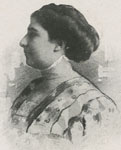

Loretta Mae Wallace, a native of Lafayette, Indiana, attended Purdue University and graduated in 1910 with a B.S. in Science. As a student, she was active in the Philalethean Society, Exponent Staff, Debris Staff, Girls' Glee Club, and Purdue Girls' Club. After graduating from Purdue, she earned an M.A. from Columbia University and Master's Diploma in Nutrition at Teachers College, both in 1911, followed by a Diploma in Domestic Art from Pittsburgh YWCA in 1913. She then returned to Purdue in 1914 as a faculty member in Home Economics.
In 1916, she married fellow class of 1910 graduate Raleigh Stachys Shade and moved with him to Tulsa, Oklahoma, where she assisted him in operating oil and natural gas companies. They had two children, Mary Louise and Raleigh Wallace Shade.
In 1916, she married fellow class of 1910 graduate Raleigh Stachys Shade and moved with him to Tulsa, Oklahoma, where she assisted him in operating oil and natural gas companies. They had two children, Mary Louise and Raleigh Wallace Shade.
Rhoygnette Webb
March 17, 1892 - February 11, 1920


Rhoygnette Webb is the first known African American woman student to attend Purdue University. Webb was born March 17, 1892 in Peru, Indiana. She attended Purdue as early as 1909 and was a member and served as secretary for the W.E.B. DuBois Club, an African American student organization at Purdue. Webb belonged to the 1911 School of Pharmacy class, but left before graduation.
Webb attended the Provident Hospital's Nursing School after leaving Purdue and graduated in 1914. After graduation, Webb worked in Chicago and was later hired as head nurse at Dr. Butler and Dr. Garner's Sanitarium in Evanston, Illinois. In 1916, Webb was appointed matron for girls at the Lincoln Institute in Jefferson City, Missouri, an historically Black land-grant university. Just a few months after her appointment, Webb was among a handful of nurses slated to follow the Eight Regiment from Illinois, an all-Black militia, to the US-Mexico border during World War I, though it is unclear if they were actually called upon. Webb resigned from Lincoln Institute at the end of 1916 and returned to Chicago to continue working as a nurse.
Rhoygnette Webb died on February 11, 1922 of tuberculosis and was buried in Peru, Indiana.
Webb attended the Provident Hospital's Nursing School after leaving Purdue and graduated in 1914. After graduation, Webb worked in Chicago and was later hired as head nurse at Dr. Butler and Dr. Garner's Sanitarium in Evanston, Illinois. In 1916, Webb was appointed matron for girls at the Lincoln Institute in Jefferson City, Missouri, an historically Black land-grant university. Just a few months after her appointment, Webb was among a handful of nurses slated to follow the Eight Regiment from Illinois, an all-Black militia, to the US-Mexico border during World War I, though it is unclear if they were actually called upon. Webb resigned from Lincoln Institute at the end of 1916 and returned to Chicago to continue working as a nurse.
Rhoygnette Webb died on February 11, 1922 of tuberculosis and was buried in Peru, Indiana.
Mary Ellen Weber
August 24, 1962 -
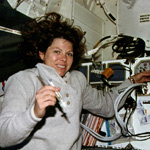

Mary Ellen Weber (b. 1962) grew up in Ohio and graduated from Bedford High School in 1980. Weber earned a Bachelor of Science degree in Chemical Engineering from Purdue University in 1984, and was also a member of Phi Mu while enrolled there. She then went on to earn a Ph.D. in Physical Chemistry from the University of California in 1988. Later, she earned an MBA from Southern Methodist University (2002).
After completing her PhD and working for Texas Instruments, where she created a revolutionary reactor for manufacturing computer chips, Weber was selected by NASA in 1992 as a member of the fourteenth group of astronauts. Weber held a variety of different positions over the next 10 years, logging 450 hours in outer space. She is best known for her appearance on the space shuttle Discovery in 1995. She also flew on the Atlantis in 2000. After leaving NASA, Weber became the Vice President at the University of Texas Southwestern Medical Center in Dallas, Texas. In 2014, she joined STELLAR Strategies, LLC where she provides consulting services for business strategy. She is also an active speaker on topics of performance, risk, and success, as well as a speaking consultant and coach.
After completing her PhD and working for Texas Instruments, where she created a revolutionary reactor for manufacturing computer chips, Weber was selected by NASA in 1992 as a member of the fourteenth group of astronauts. Weber held a variety of different positions over the next 10 years, logging 450 hours in outer space. She is best known for her appearance on the space shuttle Discovery in 1995. She also flew on the Atlantis in 2000. After leaving NASA, Weber became the Vice President at the University of Texas Southwestern Medical Center in Dallas, Texas. In 2014, she joined STELLAR Strategies, LLC where she provides consulting services for business strategy. She is also an active speaker on topics of performance, risk, and success, as well as a speaking consultant and coach.
Bernice Roberts Moreland Wells
December 31, 1940 - January 23, 1990
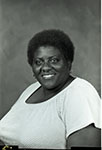

Bernice Roberts Moreland Wells was born in Arkansas. Marianna, Arkansas, where she grew up, was still segregated at that time, and she recounted her experiences attending the segregated Robert Moton High School where she graduated 3rd in her class in 1958. In her autobiography, Wells discussed how her experiences in the segregated south and as a migrant farm worker ultimately shaped her perspectives, her drive, and her commitment to amplifying the voices of Black students.
Wells followed her older sister north to Champaign-Urbana, Illinois, where she intended to work until she was old enough to enroll in the army so that she could get money to go to college. While there, she met her first husband with whom she had her son Michael in 1962. They separated when Michael was still an infant, which inspired Wells to enroll at the Champaign School of Practical Nursing to earn her Licensure as a Practical Nurse to better support herself and her son. She graduated and earned her certification in 1966. Wells worked for some time as a nurse's aid at Burnham City Hospital before enrolling at the school. After completing her certification, Wells worked at Carle Hospital until 1969.
In 1969, Wells applied to and was accepted to the University of Illinois, where she intended to purdue a degree in social work. While enrolled at the university, she received a number of scholarships, including the first AAUW Ida King Stevens award. Wells reminisced that although her sister completed one year of college, Bernice was the first to earn a college degree in her family. She received her BA in social welfare from the University of Illinois in 1973.
After receiving her degree, Wells worked at Parkland College as an Outreach Specialist before moving on to Western Illinois University. At Western Illionis, she was tasked with running a new program that would help "minority" students adjust to college. Wells reflected that the program seemed to have been designed to keep Black students segregated from the rest of the student body. While at Western Illinois, she also earned an M.S. (1976).
After finishing her two year contract and her Master's, Wells accepted a postion in the Purdue Division of Finanacial Aid in 1976. She hoped that it would provide a more fulfilling experience for her as well as provide opportunities for her son. At Purdue, Wells was a fierce advocate for students of color, but clear that her position was created to support all students at Purdue. She also advocated for the equitable treatment of staff and faculty of color at the University. Wells met her second husband, Elvin Wells, while at Purdue and they married in 1980. Wells remained in her role at Purdue until 1988 when she was diagnosed with terminal ALS. Over the course of her career, Wells remained committed to researching the specific needs of first generation Black college students to determine how the university could better serve them and ensure their success. Bernice Wells died in 1990 at the age of 49.
Wells followed her older sister north to Champaign-Urbana, Illinois, where she intended to work until she was old enough to enroll in the army so that she could get money to go to college. While there, she met her first husband with whom she had her son Michael in 1962. They separated when Michael was still an infant, which inspired Wells to enroll at the Champaign School of Practical Nursing to earn her Licensure as a Practical Nurse to better support herself and her son. She graduated and earned her certification in 1966. Wells worked for some time as a nurse's aid at Burnham City Hospital before enrolling at the school. After completing her certification, Wells worked at Carle Hospital until 1969.
In 1969, Wells applied to and was accepted to the University of Illinois, where she intended to purdue a degree in social work. While enrolled at the university, she received a number of scholarships, including the first AAUW Ida King Stevens award. Wells reminisced that although her sister completed one year of college, Bernice was the first to earn a college degree in her family. She received her BA in social welfare from the University of Illinois in 1973.
After receiving her degree, Wells worked at Parkland College as an Outreach Specialist before moving on to Western Illinois University. At Western Illionis, she was tasked with running a new program that would help "minority" students adjust to college. Wells reflected that the program seemed to have been designed to keep Black students segregated from the rest of the student body. While at Western Illinois, she also earned an M.S. (1976).
After finishing her two year contract and her Master's, Wells accepted a postion in the Purdue Division of Finanacial Aid in 1976. She hoped that it would provide a more fulfilling experience for her as well as provide opportunities for her son. At Purdue, Wells was a fierce advocate for students of color, but clear that her position was created to support all students at Purdue. She also advocated for the equitable treatment of staff and faculty of color at the University. Wells met her second husband, Elvin Wells, while at Purdue and they married in 1980. Wells remained in her role at Purdue until 1988 when she was diagnosed with terminal ALS. Over the course of her career, Wells remained committed to researching the specific needs of first generation Black college students to determine how the university could better serve them and ensure their success. Bernice Wells died in 1990 at the age of 49.
Kate E. Wentz
April 8, 1886 - August 6, 1938
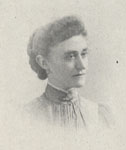

E. Kate Wentz was born in Indianapolis April 6, 1866. She attended the public schools in Lafayette and graduated from Lafayette High School. Wentz earned a Bachelor of Science degree from Purdue University in 1887 and the Master of Science in 1890. While working on her Masters at Purdue and for a few years after finishing her degree, Wentz served as an instructor in mathematics (1888-1893). At Purdue, Wentz was a friend and colleague of George Ade. Wentz earned an additional Masters of Science from Cornell University (1894).
When the Emmerich Manual Training High School opened in 1895 in Indianapolis, Wentz was hired to teach mathematics. When the mathematics department was fuly organized in 1904, she was named its head and held that position until her retirement in 1931.
These quotes were noted, upon her death, ""Miss Wentz was an outstanding teacher, with an unusual ability to inspire boys,"" said E. H. Kemper McComb, principal of Manual. Edward A. Gardner, an organizer of the Roines Club, while a pupil under Miss Wentz, described her as ""without a doubt one of the most beloved and remarkable teachers in the city.""
Apart from her teaching activities, Wentz was also a member of numerous teachers' and science societies and associations. She also served as the president and vice-president of the Purdue Alumni Association in Indianapolis for several years. Wentz passed away in Indianapolis in 1938 at the age of 72.
When the Emmerich Manual Training High School opened in 1895 in Indianapolis, Wentz was hired to teach mathematics. When the mathematics department was fuly organized in 1904, she was named its head and held that position until her retirement in 1931.
These quotes were noted, upon her death, ""Miss Wentz was an outstanding teacher, with an unusual ability to inspire boys,"" said E. H. Kemper McComb, principal of Manual. Edward A. Gardner, an organizer of the Roines Club, while a pupil under Miss Wentz, described her as ""without a doubt one of the most beloved and remarkable teachers in the city.""
Apart from her teaching activities, Wentz was also a member of numerous teachers' and science societies and associations. She also served as the president and vice-president of the Purdue Alumni Association in Indianapolis for several years. Wentz passed away in Indianapolis in 1938 at the age of 72.
Stephanie White
June 20, 1977 -
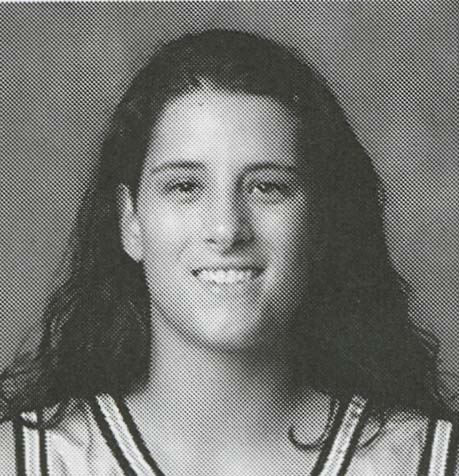

Stephanie White attended Purdue University and graduated with a BA in Communications in 1999. In that same year, she and her co-captain Ukari Figgs, led the Boilermakers to their first NCAA championship. During her senior year, White led her teammates in points earned, three-point field goal percentage, and assists per game. The team had a nearly perfect season, ending the year with a record of 34 wins and one loss. Due to her outstanding sportsmanship, White was also recognized nationally as the winner of the Wade Trophy, which was awarded to the national college player of the year. Before enrolling at Purdue, White was named Indiana Miss Basketball, Gatorade National Player of the Year, and the USA Today National Player of the Year in 1995.
White joined the WNBA in 1999 as a professional basketball player until her retirement in 2004. White-McCarty joined the Chiago Sky as an assistant coach in 2007, where she stayed for four years before joining the Indiana Fever as an assistant coach. She was named their head coach in 2014. Currently, White is the head coach of the Vanderbilt Commodores women's basketball team. She also works as the Color Analyst and In-Studio Analyst for the Big Ten Network. White is one of only two women named on a list of the 50 greatest basketball players in Indiana history.
White joined the WNBA in 1999 as a professional basketball player until her retirement in 2004. White-McCarty joined the Chiago Sky as an assistant coach in 2007, where she stayed for four years before joining the Indiana Fever as an assistant coach. She was named their head coach in 2014. Currently, White is the head coach of the Vanderbilt Commodores women's basketball team. She also works as the Color Analyst and In-Studio Analyst for the Big Ten Network. White is one of only two women named on a list of the 50 greatest basketball players in Indiana history.
Winifred Parker White


Winifred Parker White came to Purdue from Gary, Indiana. White's parents, Frederick and Frieda (Campbell) Parker, were adovcates for the benefits of a college education and strongly encouraged Winifred and her siblings to continue their educations beyond high school.
Winifred and her older sister, Frieda, enrolled at Purdue University in the fall of 1946. However, at this time, all African American students lived in the segregated areas of Lafayette because they were not allowed to live on campus or anywhere within West Lafayette city limits. Winifred and her sister, together with their parents, demanded that the University allow them to live on campus as was the policy for most incoming women students. Although their request was intially denied, the family continued to appeal the decision and enlisted the support of the Black community around the state. Eventually the decision was overturned by Governor Ralph Gates, who directed the university to integrate its student housing. After the decision was reversed, Freida and Winifred became the first Black students to live on campus (or in town) at Purdue University.
White at Purdue, White resided at Bunker Hill and served as secretart on the governing board for the Women's Residence Halls. White earned her Bachelor of Science from Purdue University in 1950.
Winifred and her older sister, Frieda, enrolled at Purdue University in the fall of 1946. However, at this time, all African American students lived in the segregated areas of Lafayette because they were not allowed to live on campus or anywhere within West Lafayette city limits. Winifred and her sister, together with their parents, demanded that the University allow them to live on campus as was the policy for most incoming women students. Although their request was intially denied, the family continued to appeal the decision and enlisted the support of the Black community around the state. Eventually the decision was overturned by Governor Ralph Gates, who directed the university to integrate its student housing. After the decision was reversed, Freida and Winifred became the first Black students to live on campus (or in town) at Purdue University.
White at Purdue, White resided at Bunker Hill and served as secretart on the governing board for the Women's Residence Halls. White earned her Bachelor of Science from Purdue University in 1950.
Helen Bass Williams
March 29, 1916 - December 13, 1991


Helen Bass Williams was an educator, public health worker, and civil rights leader in the South during the Civil Rights movement. She worked and protested alongside well-known activists such as Septima Clark, Rosa Parks, Modjeska Simkins, and Martin Luther King Jr. In 1968, Williams came to Purdue to serve as the first African American faculty member where she worked as an assistant professor in French and a counselor for minority students in the School of Humanities, Social Science, and Education (HSSE).
Born on March 29, 1916 in Dewmaine, Illinois, Williams was the only daughter of Lillian (Spears) and Homer Kelley. Williams had connections to community activism and politics through her family. Her father was an elected official in the United Mine Workers of America, her great-grandfather on her father's side was a sub-conductor on the Underground Railroad in Illinois, and her mother was active in her community and in politics. After her father's death in 1922, Williams moved between Dewmaine, Illinois; Milwaukee, Wisconsin; Cleveland, Ohio; Knoxville, Tennessee; and Chicago, Illinois, staying with her mother or with relatives.
Williams was educated as both a teacher and healthcare worker. She earned a teaching certificate from Southern Illinois Normal at Carbondale in 1937 and a Bachelor of Arts from Southern Illinois University, majoring in French and Elementary, in 1942. Williams also earned two masters degrees, one in Public Health from North Carolina College at Durham in 1950 and the other in French from Southern Illinois University in 1964.
While living in Southern Illinois, Williams served as the principal of Dewmaine Elementary School (1937-1940) and later taught at Mount Carbon Grade School (1940-1941). During this period, she married her first husband, Dr. Jewell Lee Bass, a local physician. They were married from 1934 until 1950 when he passed away.
Williams moved to Columbia, South Carolina in 1950 after earning her Master's in Public Health. Here, she worked at the South Carolina Tuberculosis Association (1950-1956) before joining the faculty at Benedict College (1956-1962), a historically Black college. Williams taught Introduction to Education, Biology, and French. During her tenure at Benedict College, Williams became involved with the Highlander Folk School, a social justice education center. At Highlander, she worked as a recruiter and served as a board member alongside activists such as Septima Clark, Rosa Parks, and Esau Jenkins. Williams would transport students from Benedict College to Highlander so they could participate in trainings, such as workshops on voter registration and grassroots political processes.
In 1964, Williams moved to Mississippi where she worked as a teacher, health director, and civil rights leader. Williams taught French at Tougaloo College, one of Mississippi's Black colleges, from 1964-1967. This position allowed her to connect with other activists through the college and continue her movement work. While at Tougaloo, Williams contributed to early mobilizations efforts for Head Start Programs in Mississippi by writing grants and educating teachers. She also served as health director for the Child Development Group of Mississippi, one of the first Head Start programs in Mississippi, where she addressed the inadequacies and racism in Mississippi's health care system. She gained employment as a consultant for the federal government's Office of Economic Opportunity (OEO), where she worked to mediate between two of the Head Start programs in Mississippi who were competing for the same funding. In 1967, Williams left Tougaloo College to become the director of the Mississippi Action for Progress, another Head Start program. Though she was there for less than a year, Williams worked to rewrite the bylaws to give Head Start parents more control over local programs. While in Mississippi, Williams also participated in freedom rides to allow Black Mississippi residents to vote, ""Freedom Radio"" which attempted to bridge the gap between Black and white communities, and opened her house to Black students and activists. She also participated in protests and stood alongside Martin Luther King Jr.
Professor Mary Enders Fyfe recruited Helen Bass Williams to Purdue University. Fyfe was a professor at Purdue University who met Williams in Mississippi in 1965 through their work together at Tougaloo College. In 1968, Williams became the first African American faculty member at Purdue University where she worked as an assistant professor in French and a counselor for minority students in the School of Humanities, Social Science, and Education (HSSE). While at Purdue, Williams recruited Black students from schools throughout Indiana, wrote programs and proposals, encouraged the addition of Black faculty, planned bridging programs, and worked with students to encourage them to evaluate and vocalize their needs. She helped create the Africana Studies program (now the African American Studies program), Black Cultural Center, The Learning Center (now the Academic Success Center), and served on the first executive board of the Black Faculty and Staff Council (now Black Caucus of Faculty and Staff) in 1975 and as a faculty advisor for Harambee, a Black student organization on campus. Williams also opened her house to students in need by providing lodging and meals.
In 1978, Williams retired from Purdue and returned to Southern Illinois to care for her mother who was ill. Here, she continued her work mentoring students and activists and working with an assortment of grassroots community groups. She also wrote for a community newsletter, No. 9, where she focused on Black history and current political issues for Black families.
Throughout her life, Williams earned numerous awards for her work as a civil rights leader and educator, including many from Purdue University. Williams died on December 13, 1991 in the former mining camp of Colp, Illinois at 75 years old. In 1993, the Black Cultural Center established the Helen Bass Williams scholarship award as a tribute to her life and work.
Born on March 29, 1916 in Dewmaine, Illinois, Williams was the only daughter of Lillian (Spears) and Homer Kelley. Williams had connections to community activism and politics through her family. Her father was an elected official in the United Mine Workers of America, her great-grandfather on her father's side was a sub-conductor on the Underground Railroad in Illinois, and her mother was active in her community and in politics. After her father's death in 1922, Williams moved between Dewmaine, Illinois; Milwaukee, Wisconsin; Cleveland, Ohio; Knoxville, Tennessee; and Chicago, Illinois, staying with her mother or with relatives.
Williams was educated as both a teacher and healthcare worker. She earned a teaching certificate from Southern Illinois Normal at Carbondale in 1937 and a Bachelor of Arts from Southern Illinois University, majoring in French and Elementary, in 1942. Williams also earned two masters degrees, one in Public Health from North Carolina College at Durham in 1950 and the other in French from Southern Illinois University in 1964.
While living in Southern Illinois, Williams served as the principal of Dewmaine Elementary School (1937-1940) and later taught at Mount Carbon Grade School (1940-1941). During this period, she married her first husband, Dr. Jewell Lee Bass, a local physician. They were married from 1934 until 1950 when he passed away.
Williams moved to Columbia, South Carolina in 1950 after earning her Master's in Public Health. Here, she worked at the South Carolina Tuberculosis Association (1950-1956) before joining the faculty at Benedict College (1956-1962), a historically Black college. Williams taught Introduction to Education, Biology, and French. During her tenure at Benedict College, Williams became involved with the Highlander Folk School, a social justice education center. At Highlander, she worked as a recruiter and served as a board member alongside activists such as Septima Clark, Rosa Parks, and Esau Jenkins. Williams would transport students from Benedict College to Highlander so they could participate in trainings, such as workshops on voter registration and grassroots political processes.
In 1964, Williams moved to Mississippi where she worked as a teacher, health director, and civil rights leader. Williams taught French at Tougaloo College, one of Mississippi's Black colleges, from 1964-1967. This position allowed her to connect with other activists through the college and continue her movement work. While at Tougaloo, Williams contributed to early mobilizations efforts for Head Start Programs in Mississippi by writing grants and educating teachers. She also served as health director for the Child Development Group of Mississippi, one of the first Head Start programs in Mississippi, where she addressed the inadequacies and racism in Mississippi's health care system. She gained employment as a consultant for the federal government's Office of Economic Opportunity (OEO), where she worked to mediate between two of the Head Start programs in Mississippi who were competing for the same funding. In 1967, Williams left Tougaloo College to become the director of the Mississippi Action for Progress, another Head Start program. Though she was there for less than a year, Williams worked to rewrite the bylaws to give Head Start parents more control over local programs. While in Mississippi, Williams also participated in freedom rides to allow Black Mississippi residents to vote, ""Freedom Radio"" which attempted to bridge the gap between Black and white communities, and opened her house to Black students and activists. She also participated in protests and stood alongside Martin Luther King Jr.
Professor Mary Enders Fyfe recruited Helen Bass Williams to Purdue University. Fyfe was a professor at Purdue University who met Williams in Mississippi in 1965 through their work together at Tougaloo College. In 1968, Williams became the first African American faculty member at Purdue University where she worked as an assistant professor in French and a counselor for minority students in the School of Humanities, Social Science, and Education (HSSE). While at Purdue, Williams recruited Black students from schools throughout Indiana, wrote programs and proposals, encouraged the addition of Black faculty, planned bridging programs, and worked with students to encourage them to evaluate and vocalize their needs. She helped create the Africana Studies program (now the African American Studies program), Black Cultural Center, The Learning Center (now the Academic Success Center), and served on the first executive board of the Black Faculty and Staff Council (now Black Caucus of Faculty and Staff) in 1975 and as a faculty advisor for Harambee, a Black student organization on campus. Williams also opened her house to students in need by providing lodging and meals.
In 1978, Williams retired from Purdue and returned to Southern Illinois to care for her mother who was ill. Here, she continued her work mentoring students and activists and working with an assortment of grassroots community groups. She also wrote for a community newsletter, No. 9, where she focused on Black history and current political issues for Black families.
Throughout her life, Williams earned numerous awards for her work as a civil rights leader and educator, including many from Purdue University. Williams died on December 13, 1991 in the former mining camp of Colp, Illinois at 75 years old. In 1993, the Black Cultural Center established the Helen Bass Williams scholarship award as a tribute to her life and work.
Virginia Booth Womack
November 29, 1947 -
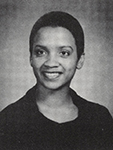

Virginia Lynn Booth Womack (b. 1947) is from Indianapolis, Indiana, and was the first in her family to attend college. She enrolled at Purdue University on a four year scholarship and simultaneously earned a B.S. in Electrical Engineering and a B.A. in Psychology. While enrolled at Purdue for her Bachelors Degrees, Womack was involved with several academically oriented extracurriculars: National Society of Black Engineers, Society of Women Engineers, and Purdue's Minority Engineering Program. She also served as the Chair of the National Society of Black Engineers and advocated for the needs of underrepresented students in engineering and the sciences at a national scale during her two terms.
Before returning to Purdue as the Director of the Minority Engineering Program, Womack gained professional experience in the applied and acedemic spheres. She worked at Proctor and Gamble, Eli Lilly, RCA, General Dynamics, Daimler Chrysler Corporation, and the Bibleway Christian Academy. As the Director of the MEP Program, Womack is working to increase the number of engineering and STEM graduates from underreprented student populations. She also recently served as the Interim Executive Director of the ISBE. Womack's research and service emphasizes inclusive leadership across academia, civic engagement, and the corporate world.
Before returning to Purdue as the Director of the Minority Engineering Program, Womack gained professional experience in the applied and acedemic spheres. She worked at Proctor and Gamble, Eli Lilly, RCA, General Dynamics, Daimler Chrysler Corporation, and the Bibleway Christian Academy. As the Director of the MEP Program, Womack is working to increase the number of engineering and STEM graduates from underreprented student populations. She also recently served as the Interim Executive Director of the ISBE. Womack's research and service emphasizes inclusive leadership across academia, civic engagement, and the corporate world.
Cecilia Zissis
February 23, 1919 - May 4, 2000
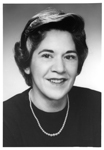

Dr. Cecilia Zissis (1919-2000) served at Purdue for 37 years, including as Assistant and Associate Dean of Women at Purdue from 1950 until 1974. She received her B.S. in English in 1949 and her M.S. in Counseling in 1953, both from Purdue. In 1962, she received her Ph.D. in Counseling and Guidance from the University of Michigan. Zissis succeeded Helen Schleman as director of the Span Plan Program in 1970, which assisted older-than-average and non-traditional students acclimate to the university environment. In 1972, Zissis began teaching "Educational Planning for Women," a class which is offered at Purdue to this day. She was a co-advisor of the Old Masters student organization, and was also active is was active in organizations such as the International Center and the Purdue's Women Caucus, amongst many others. She is was a recipient of the Helen Schleman Gold Medallion Award for her distinguished contributions to Purdue (1974); the Award of Distinction from the Indiana Deans (1986); the Citation of Recognition from the National Association of Women Deans, Administrators and Counselors (1987); an American Association of University of Women (AAUW) National Board Citation; and the YWCA Salute to Women Award (1987).